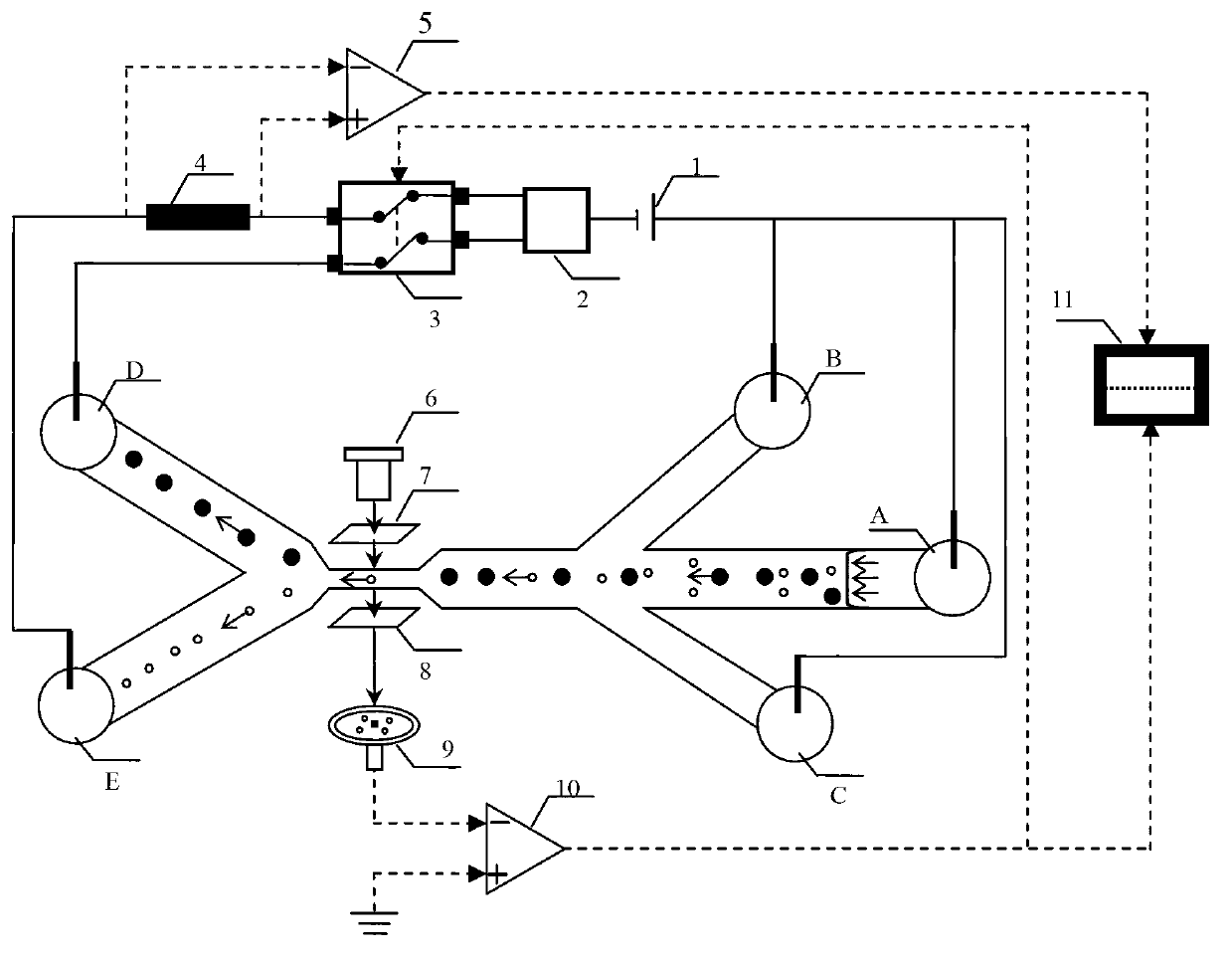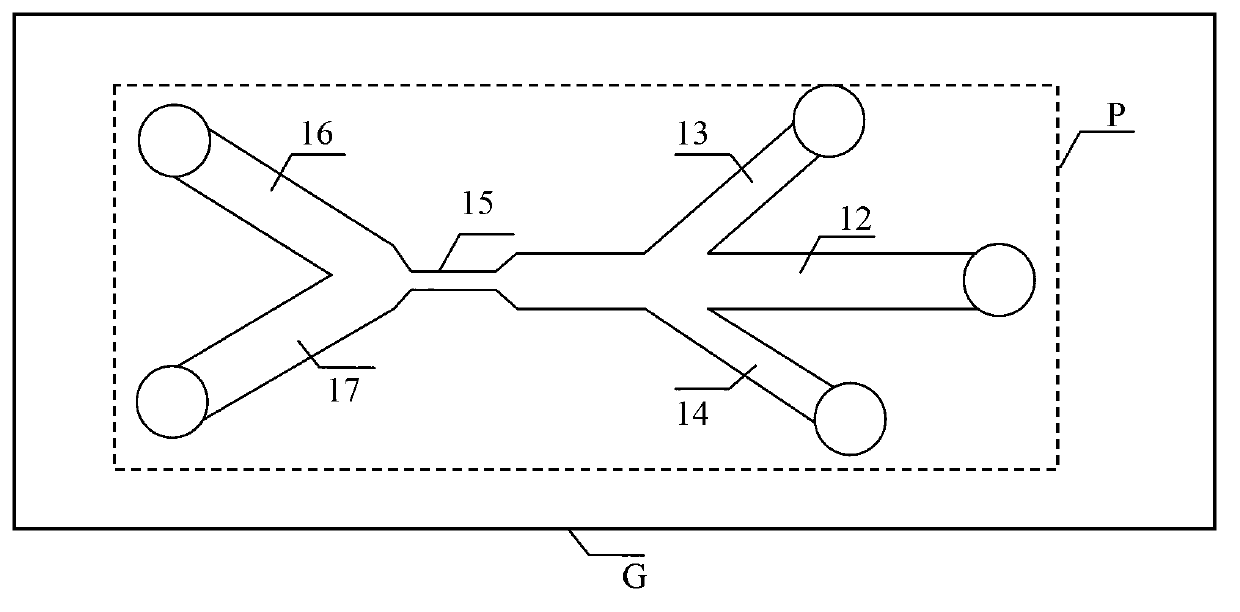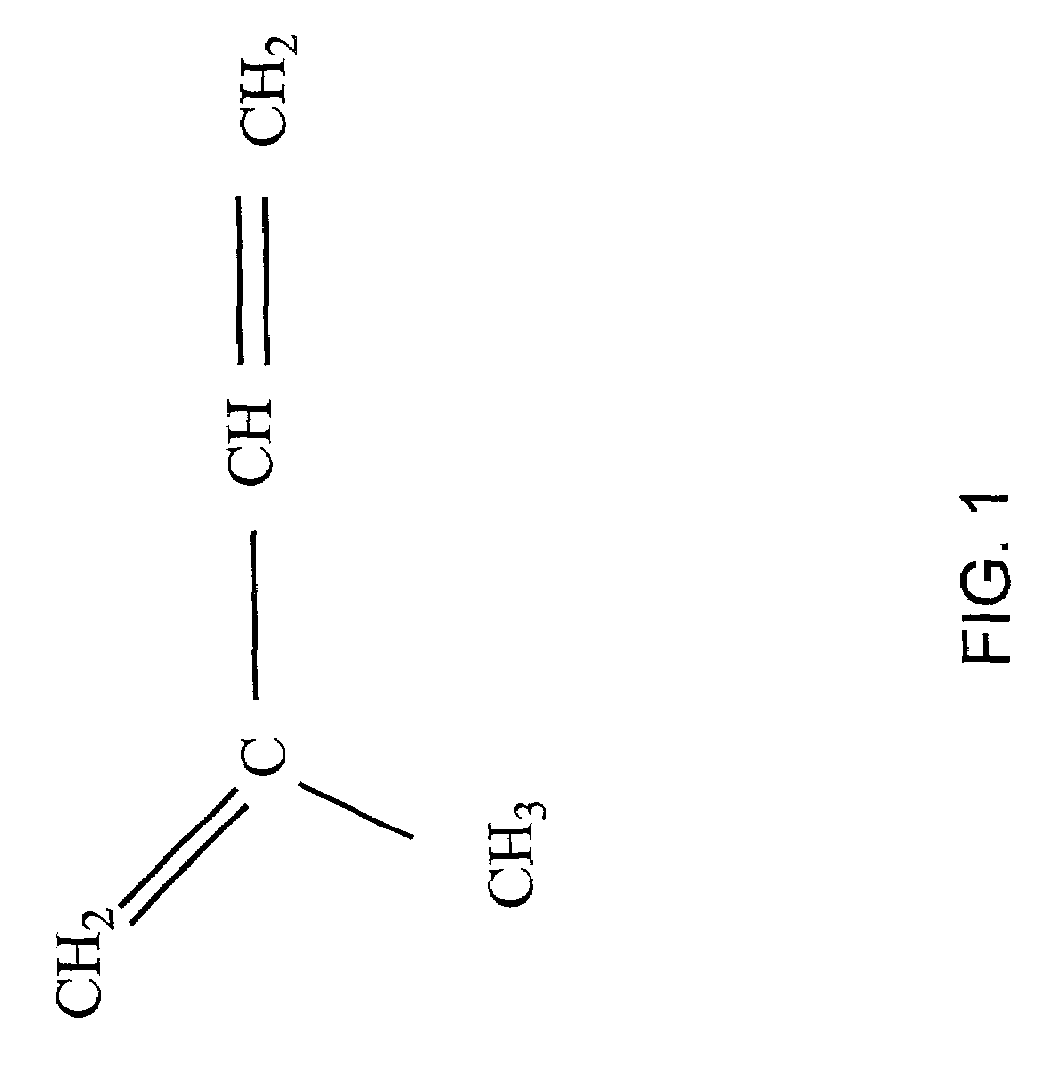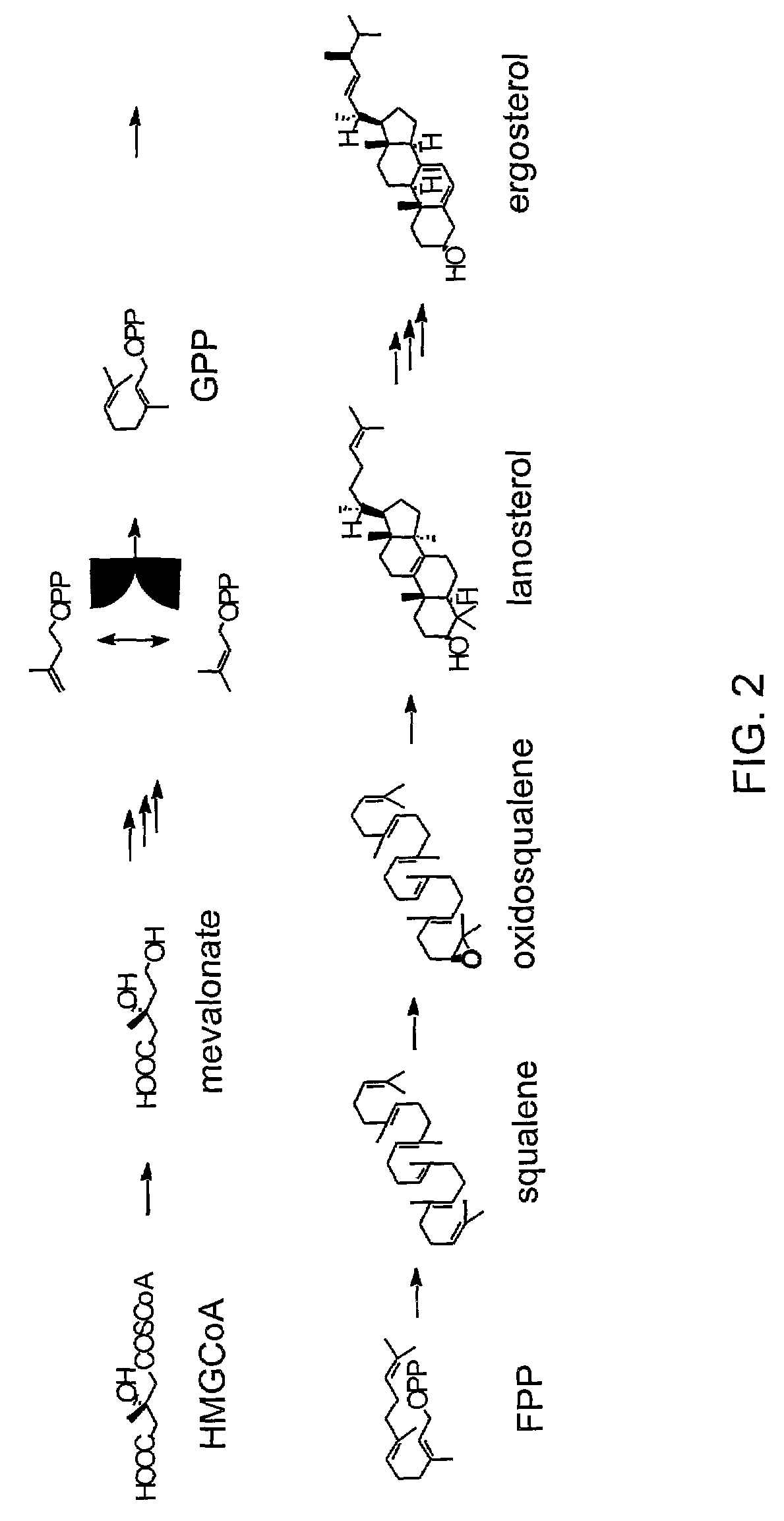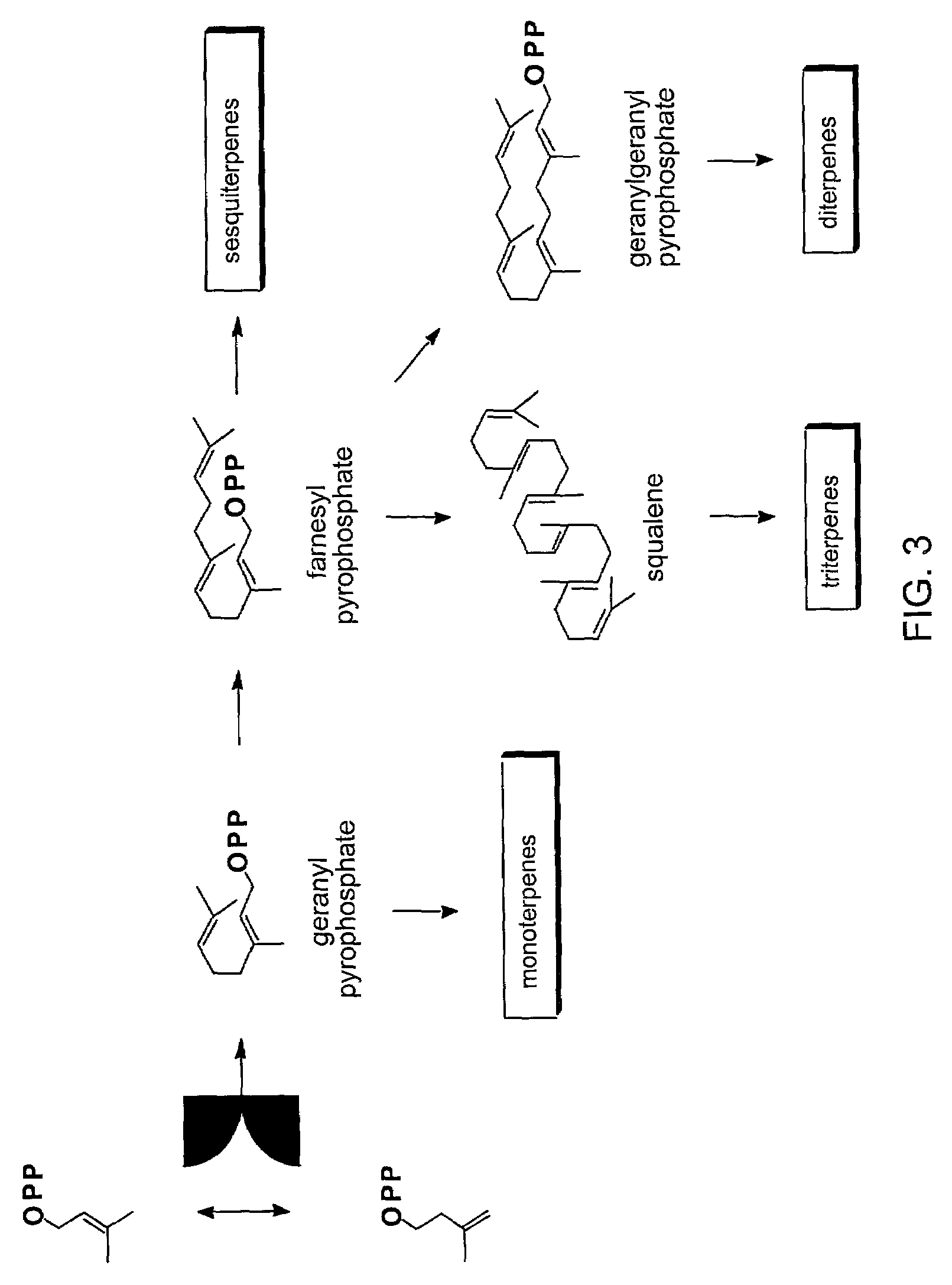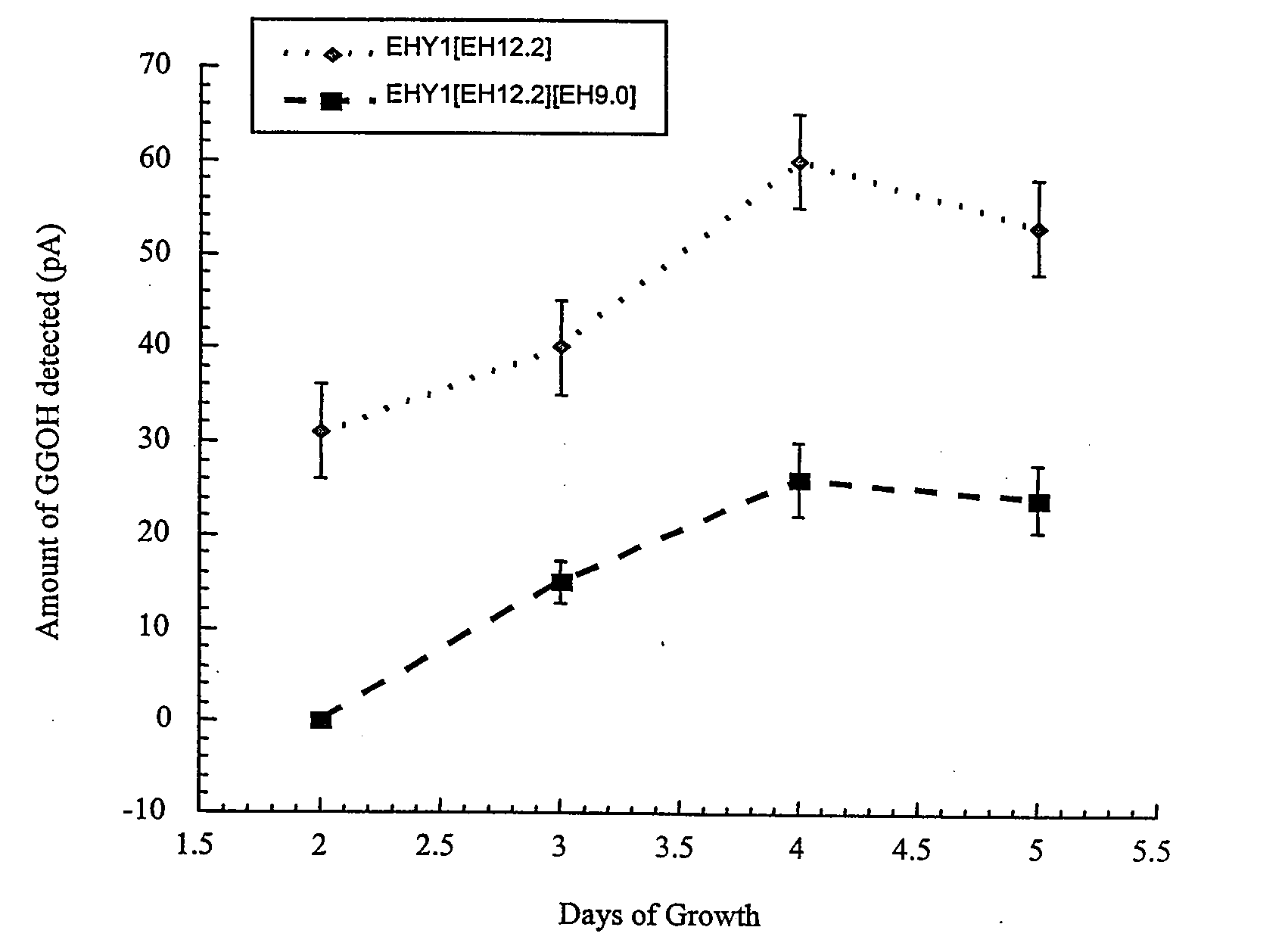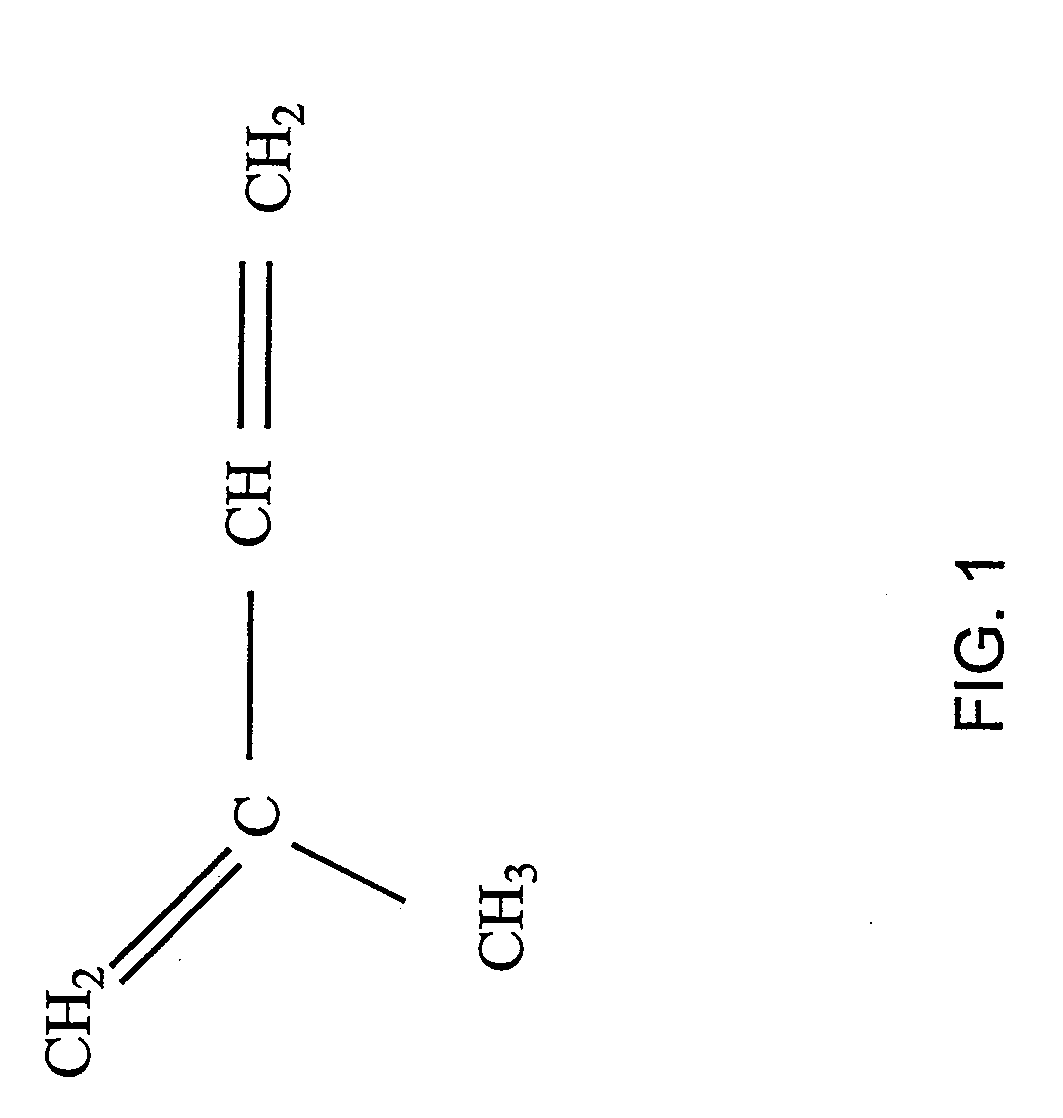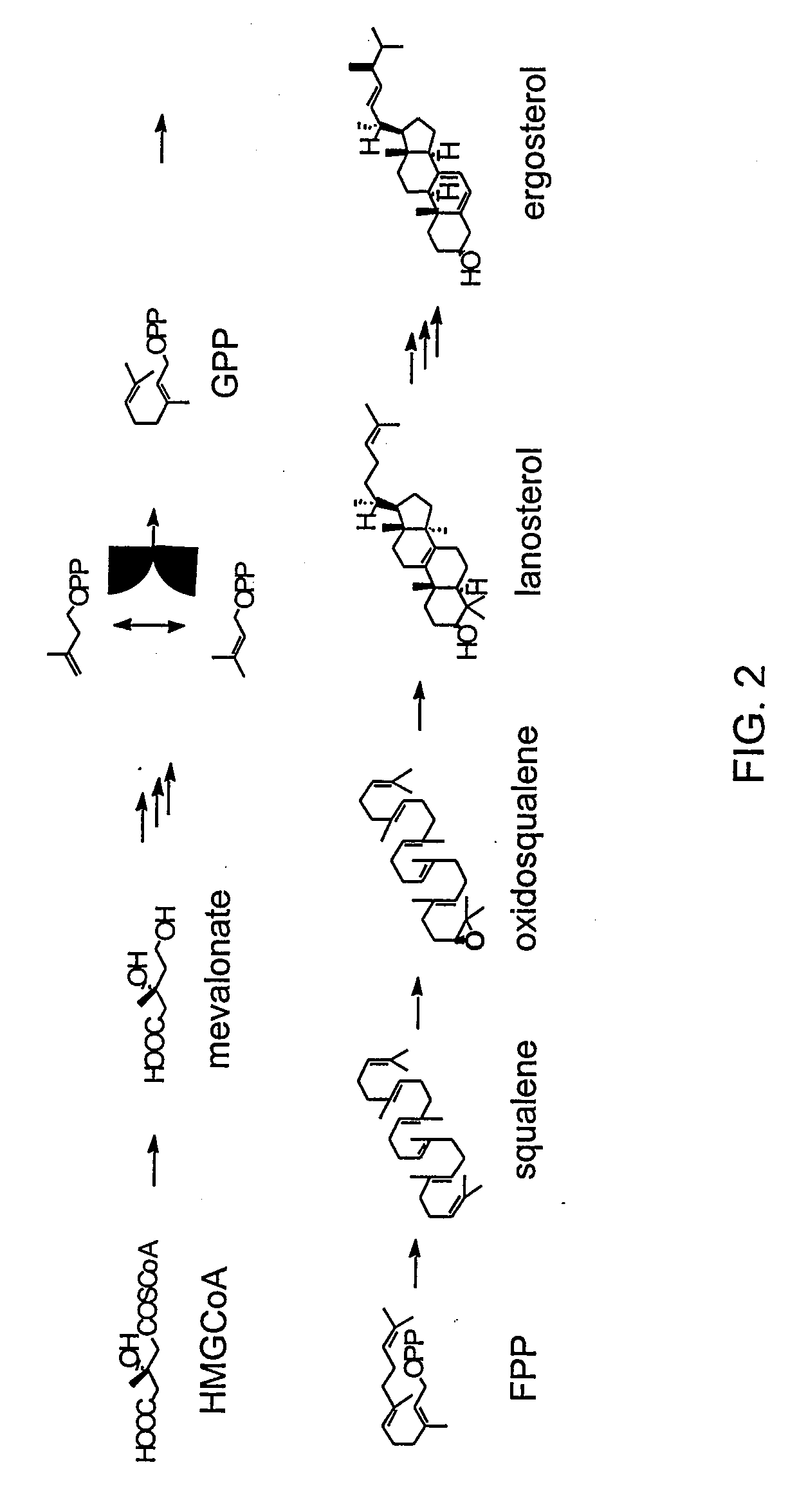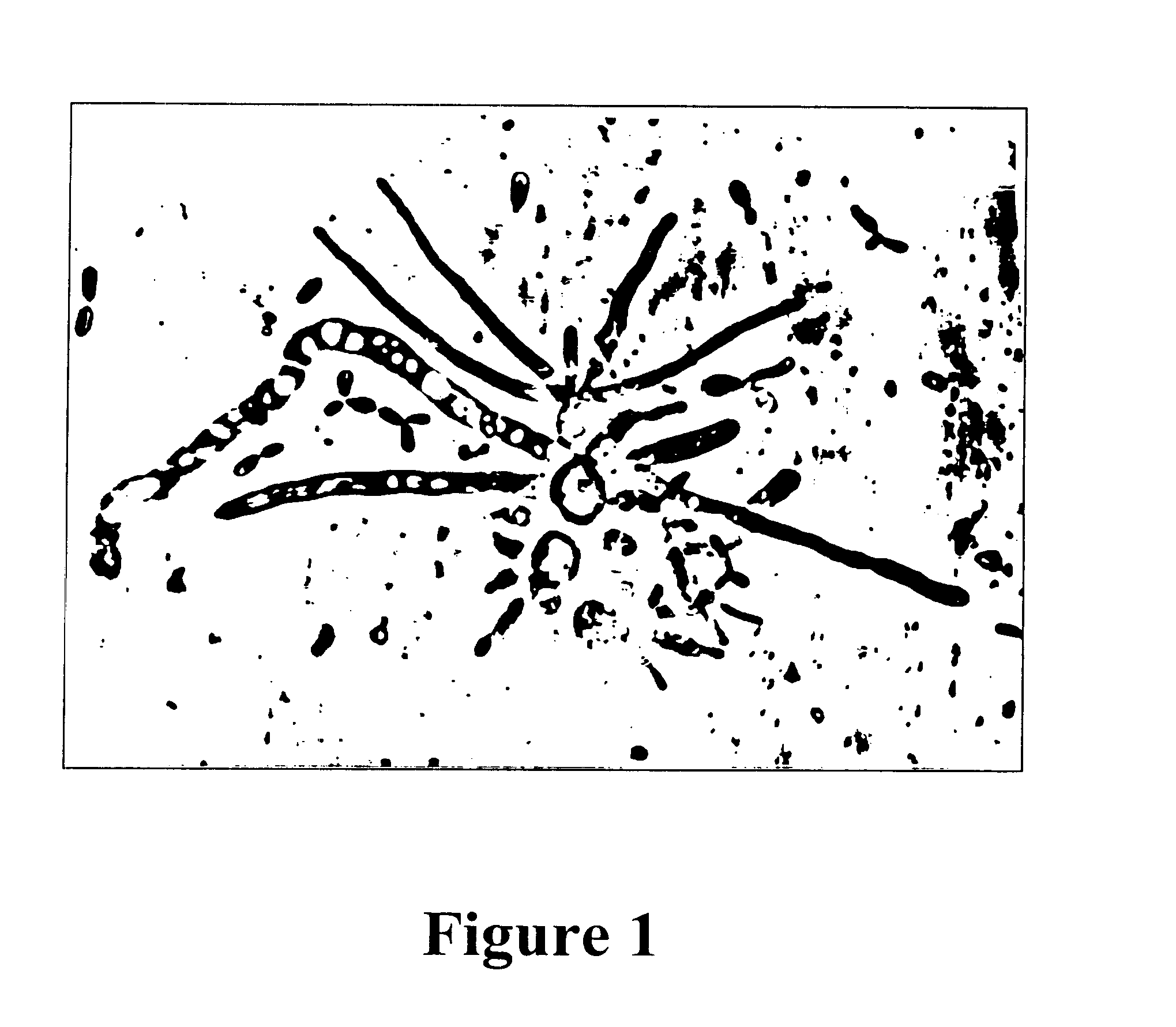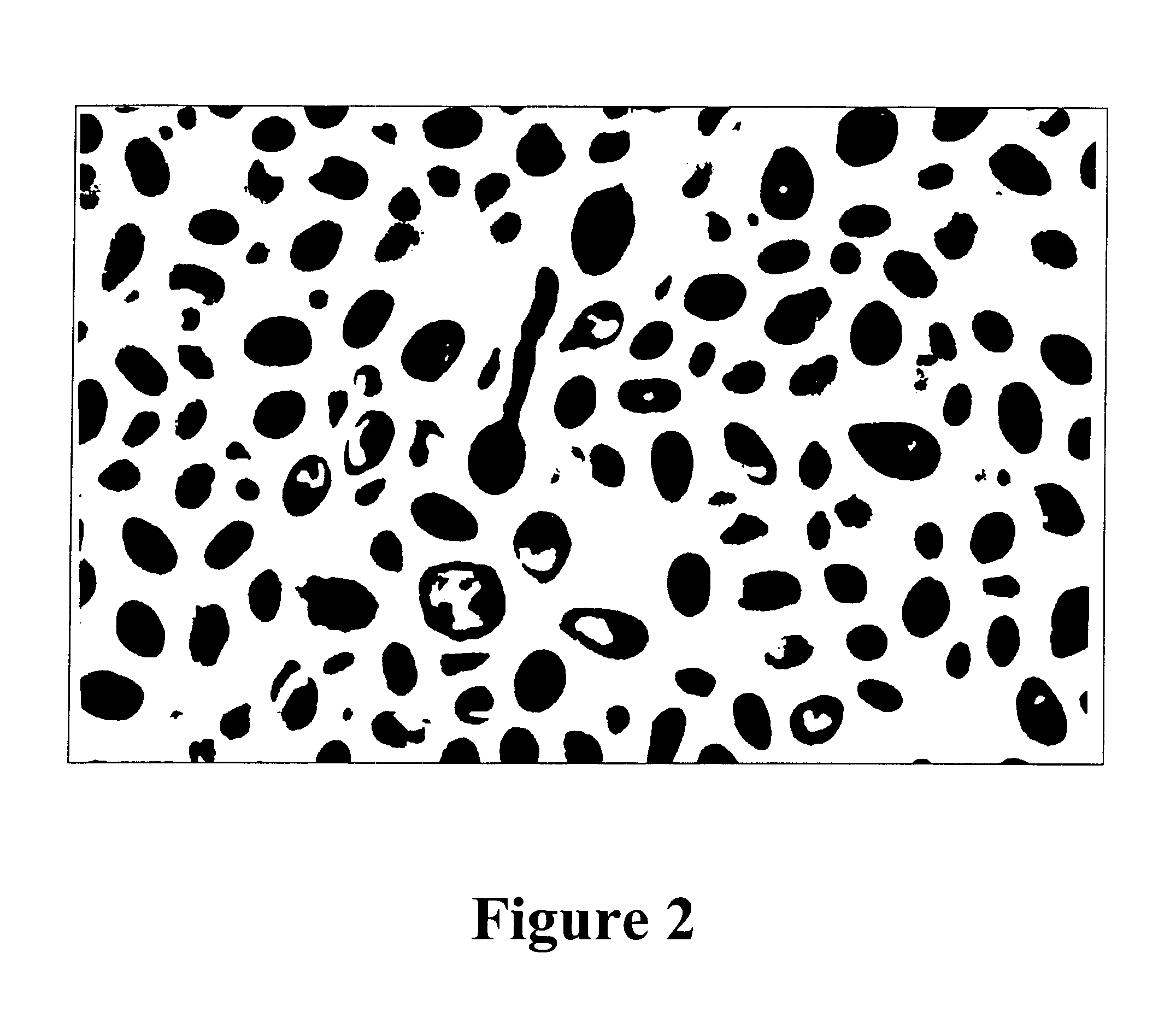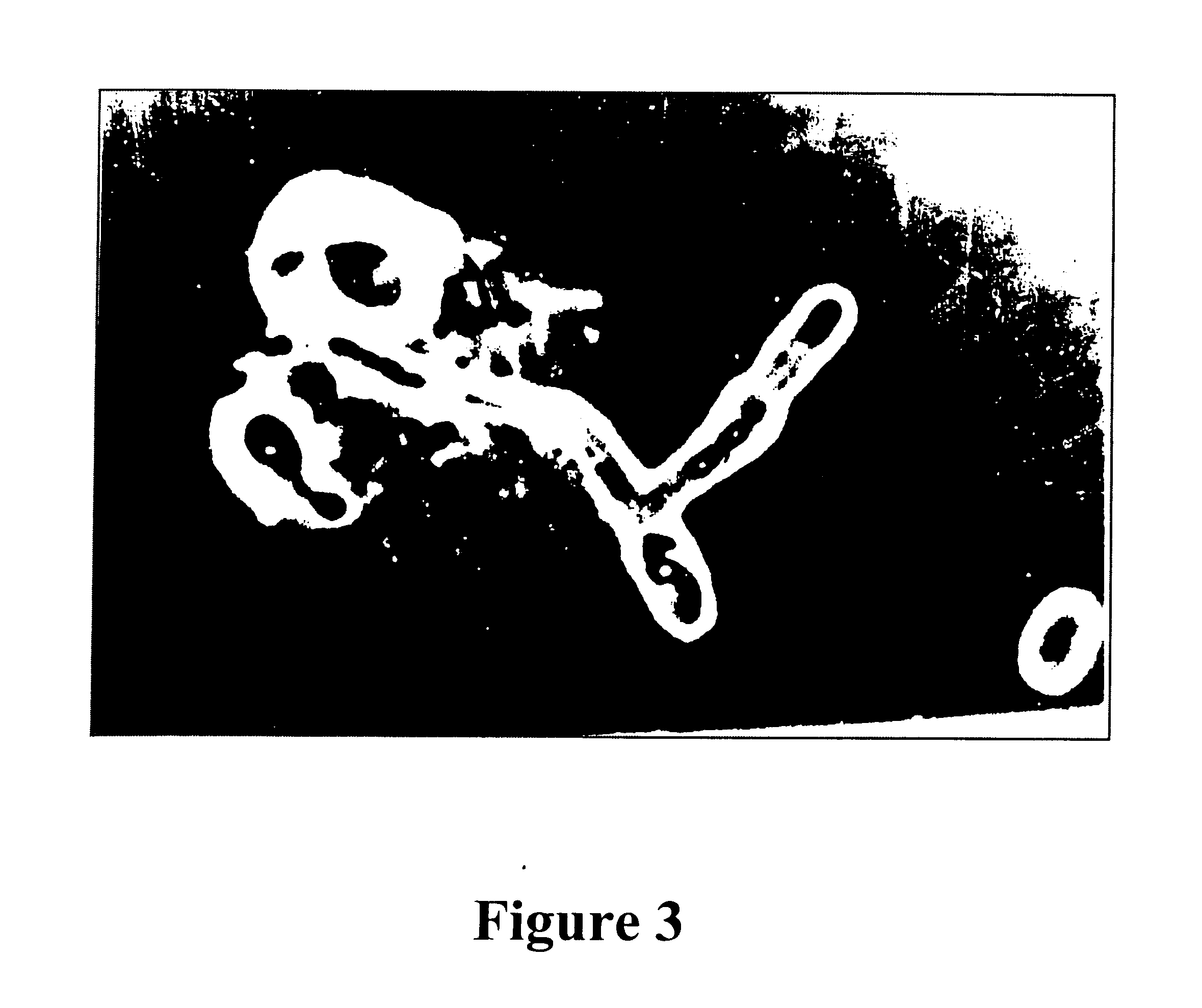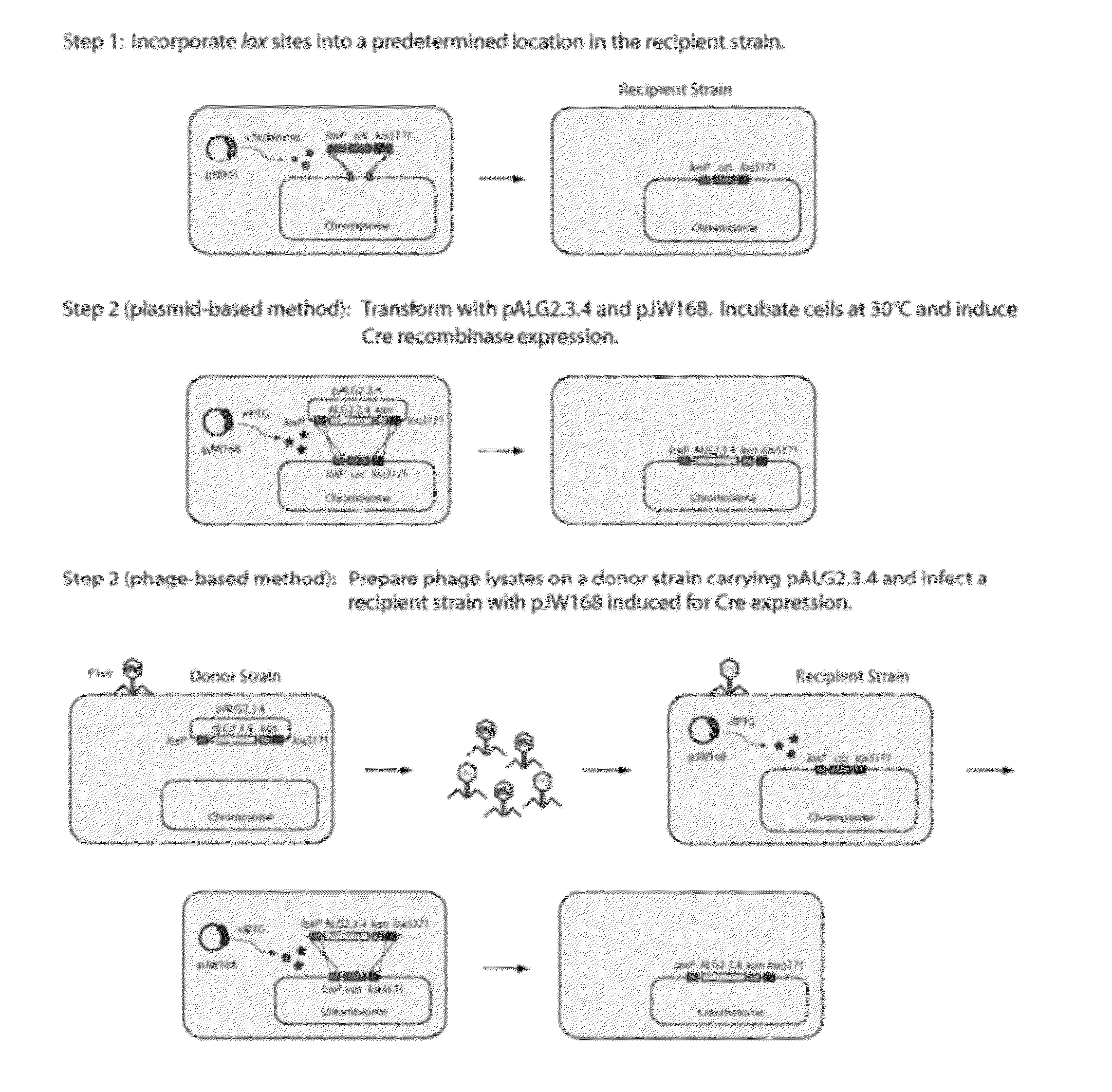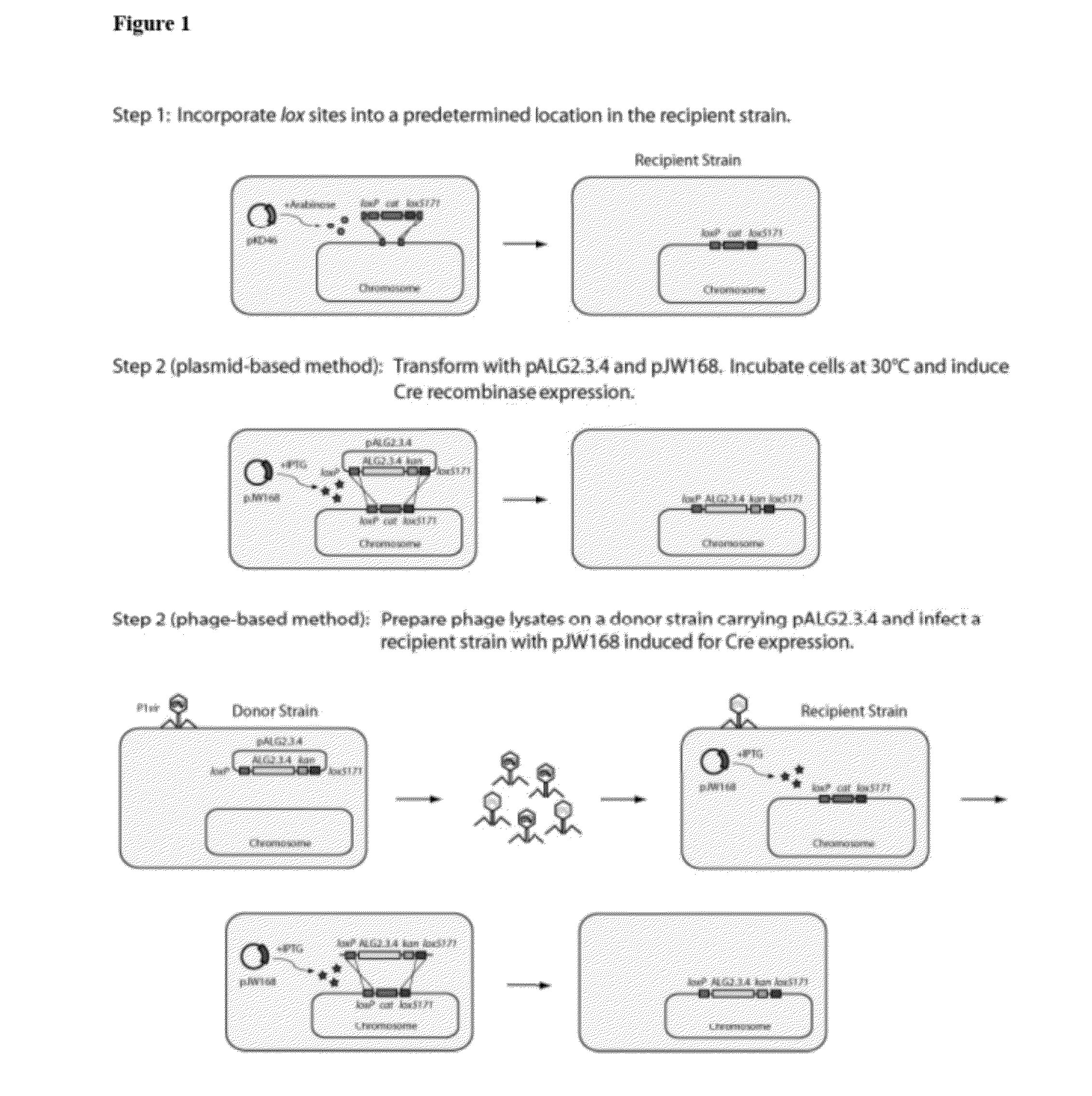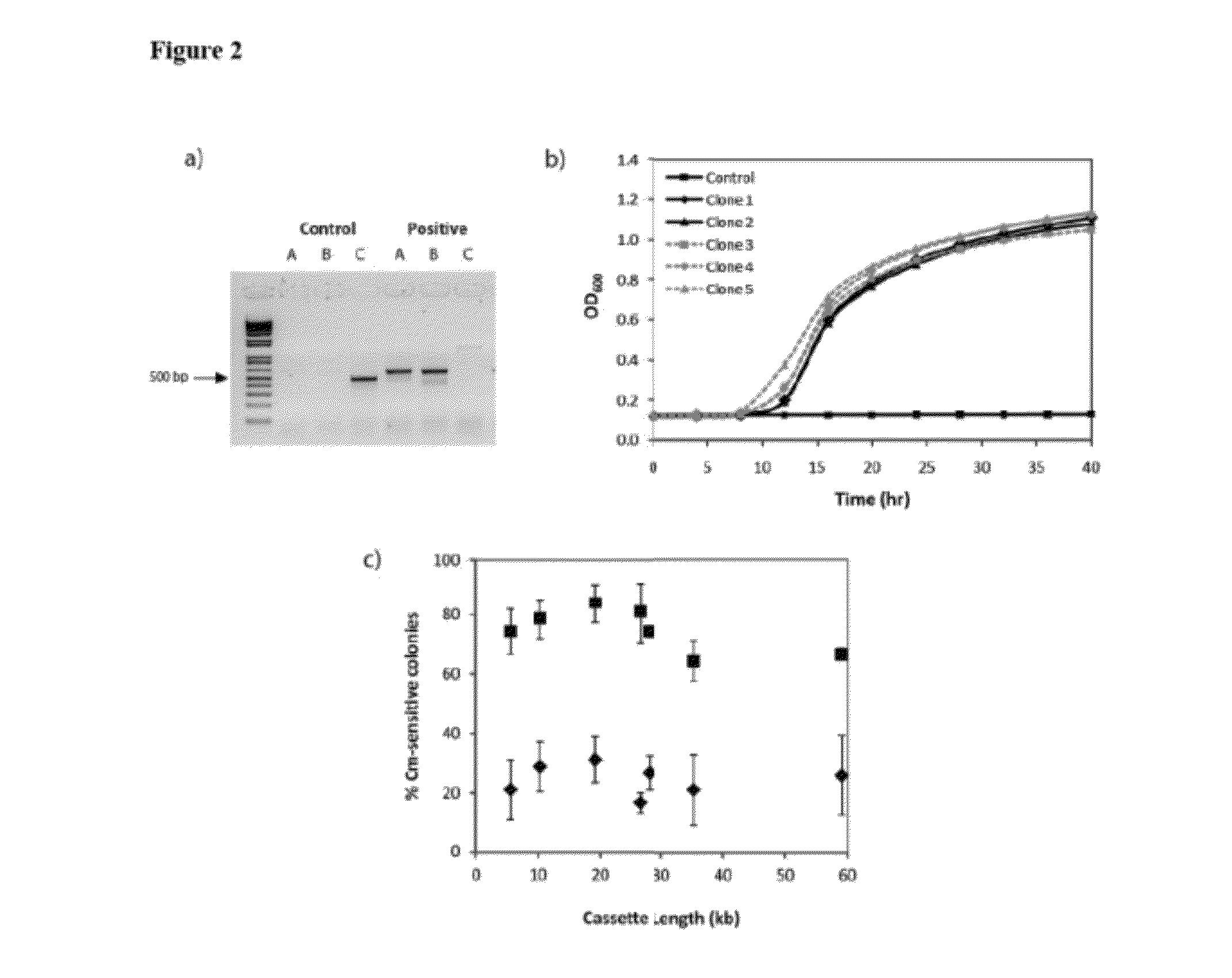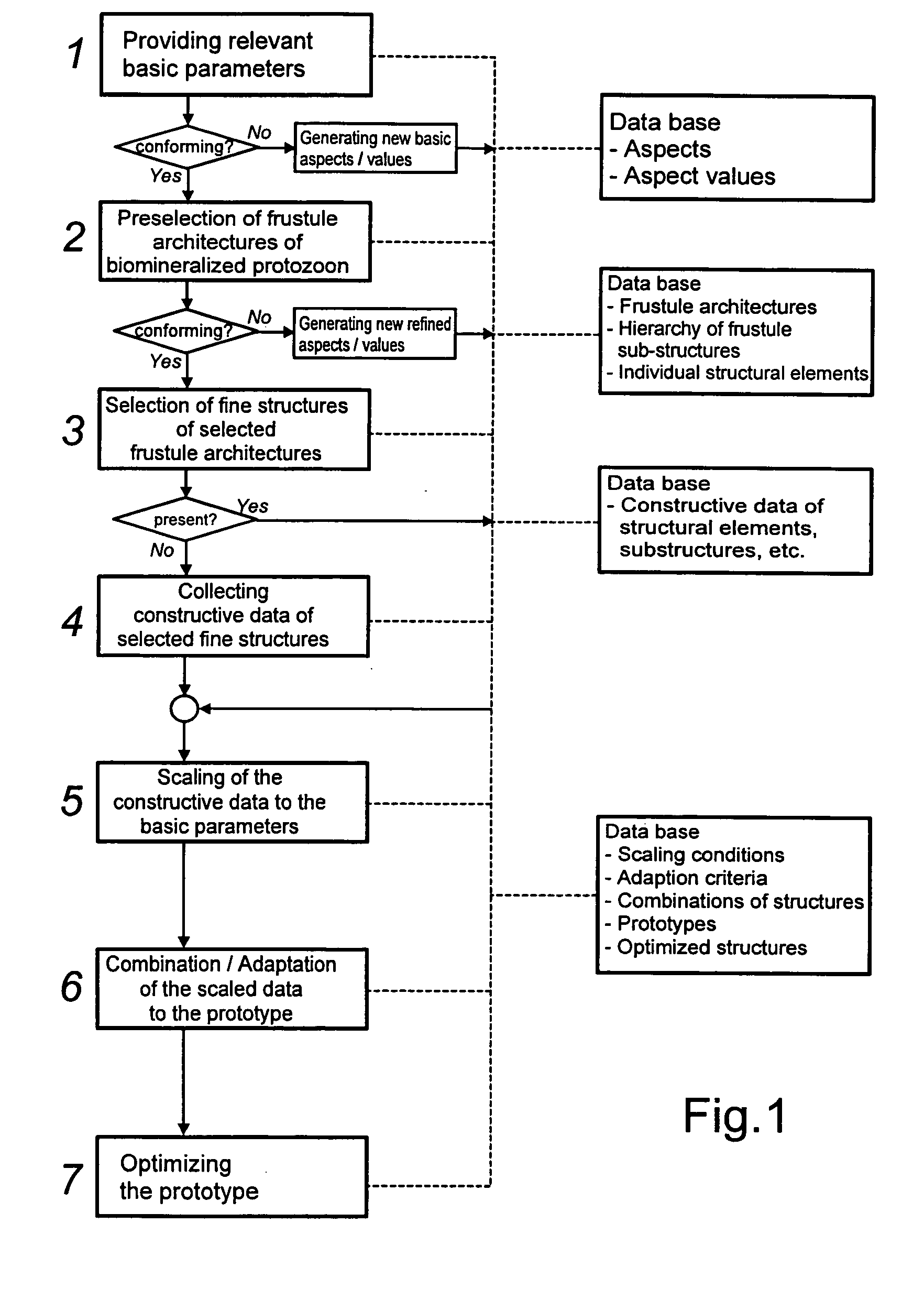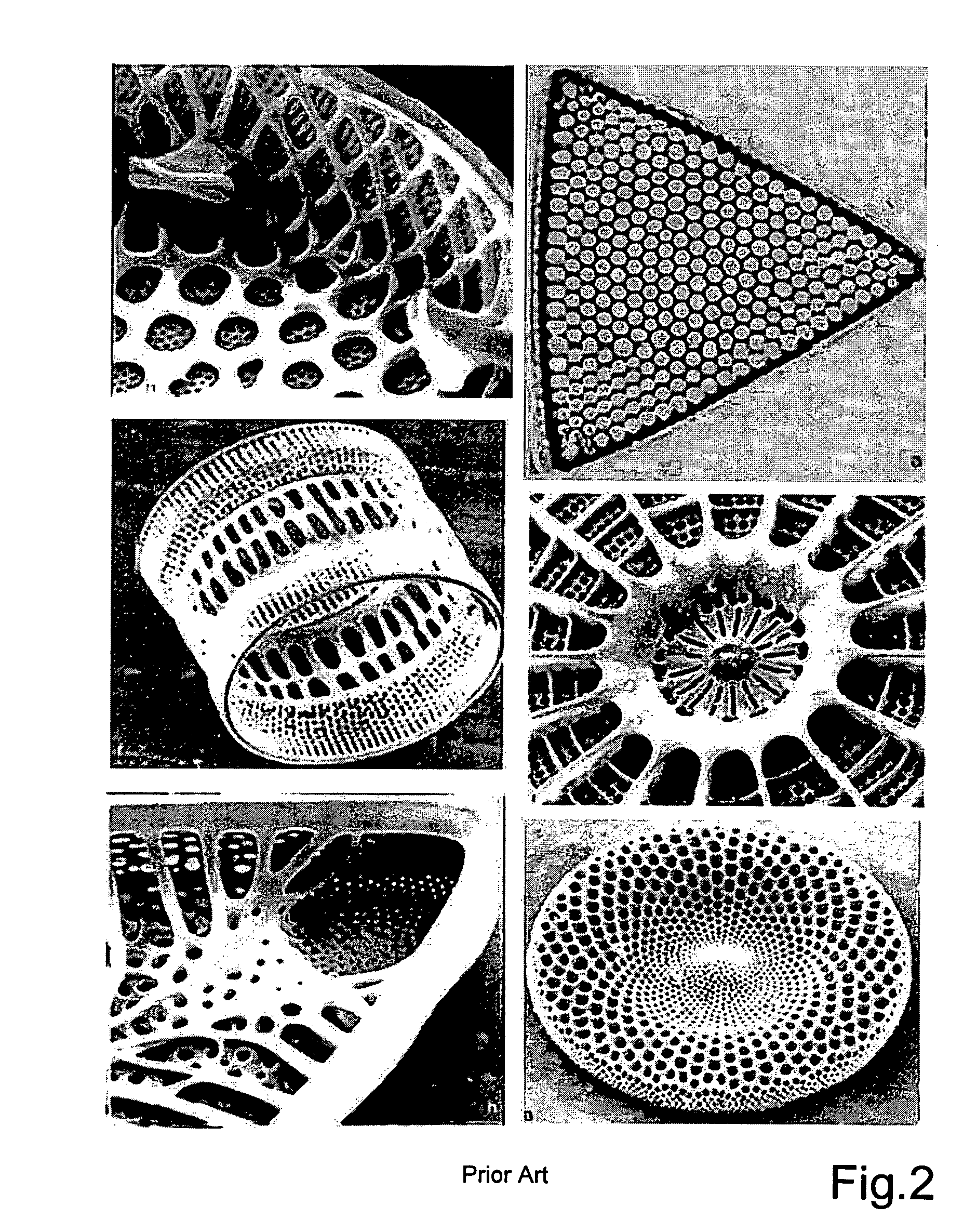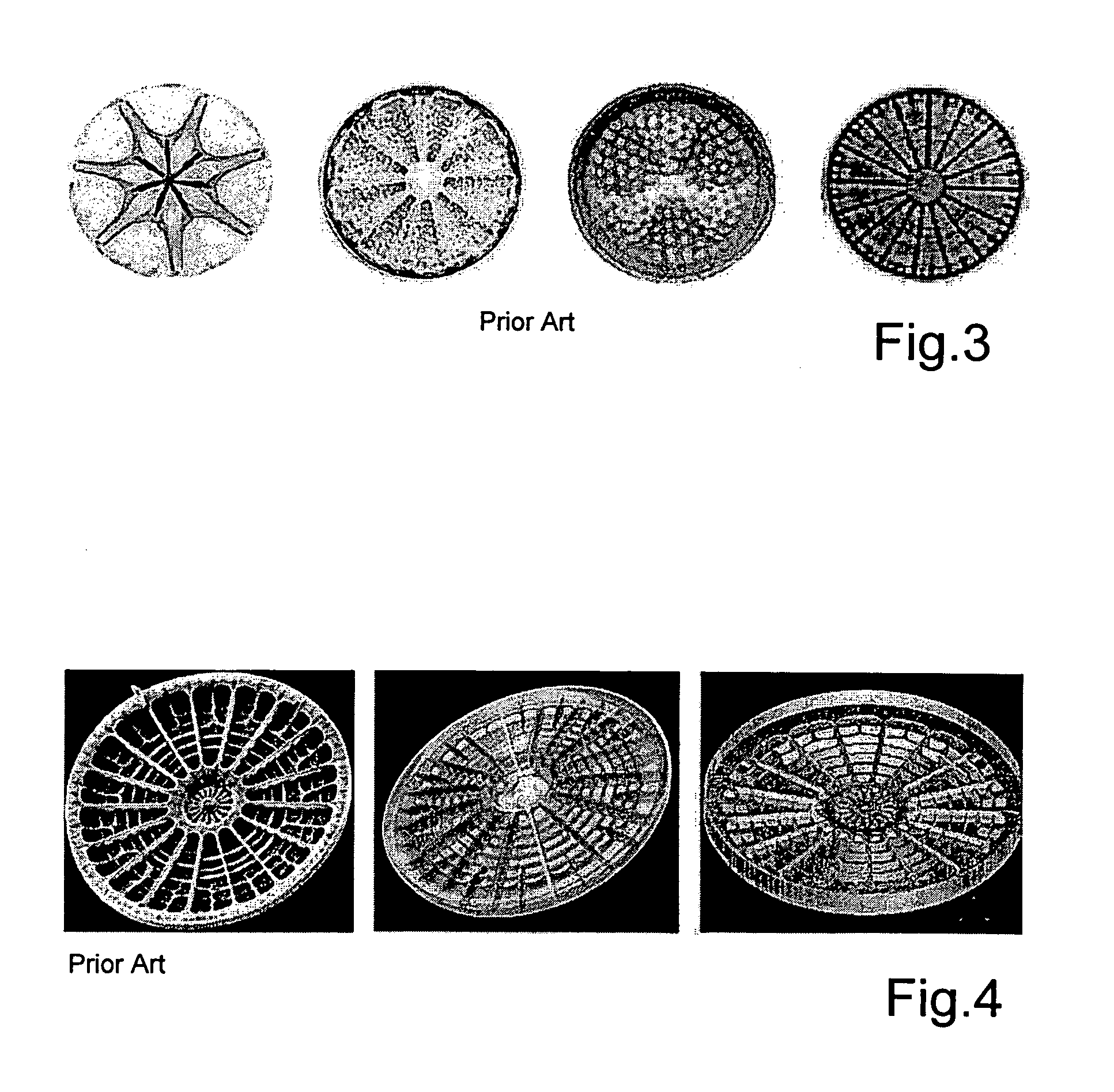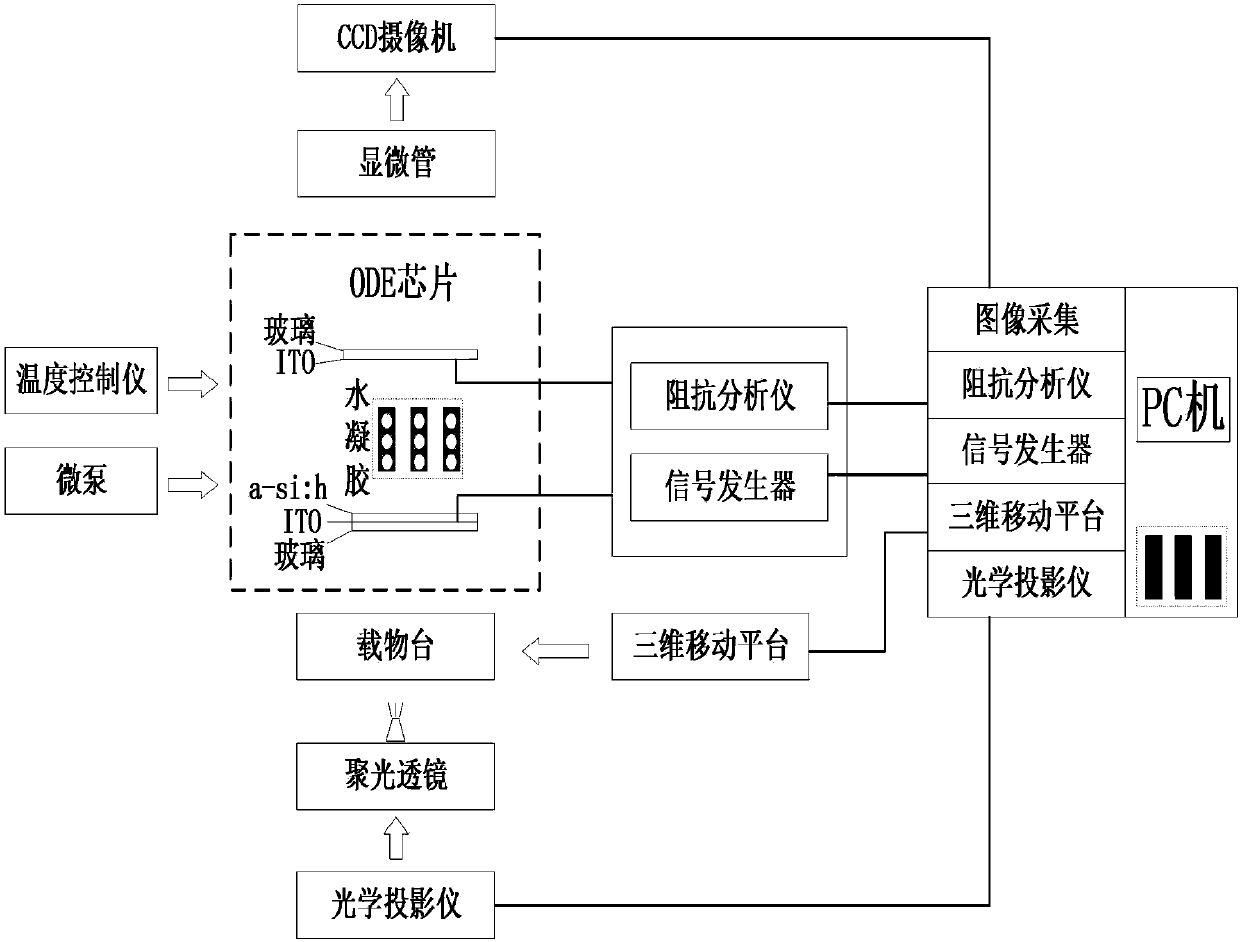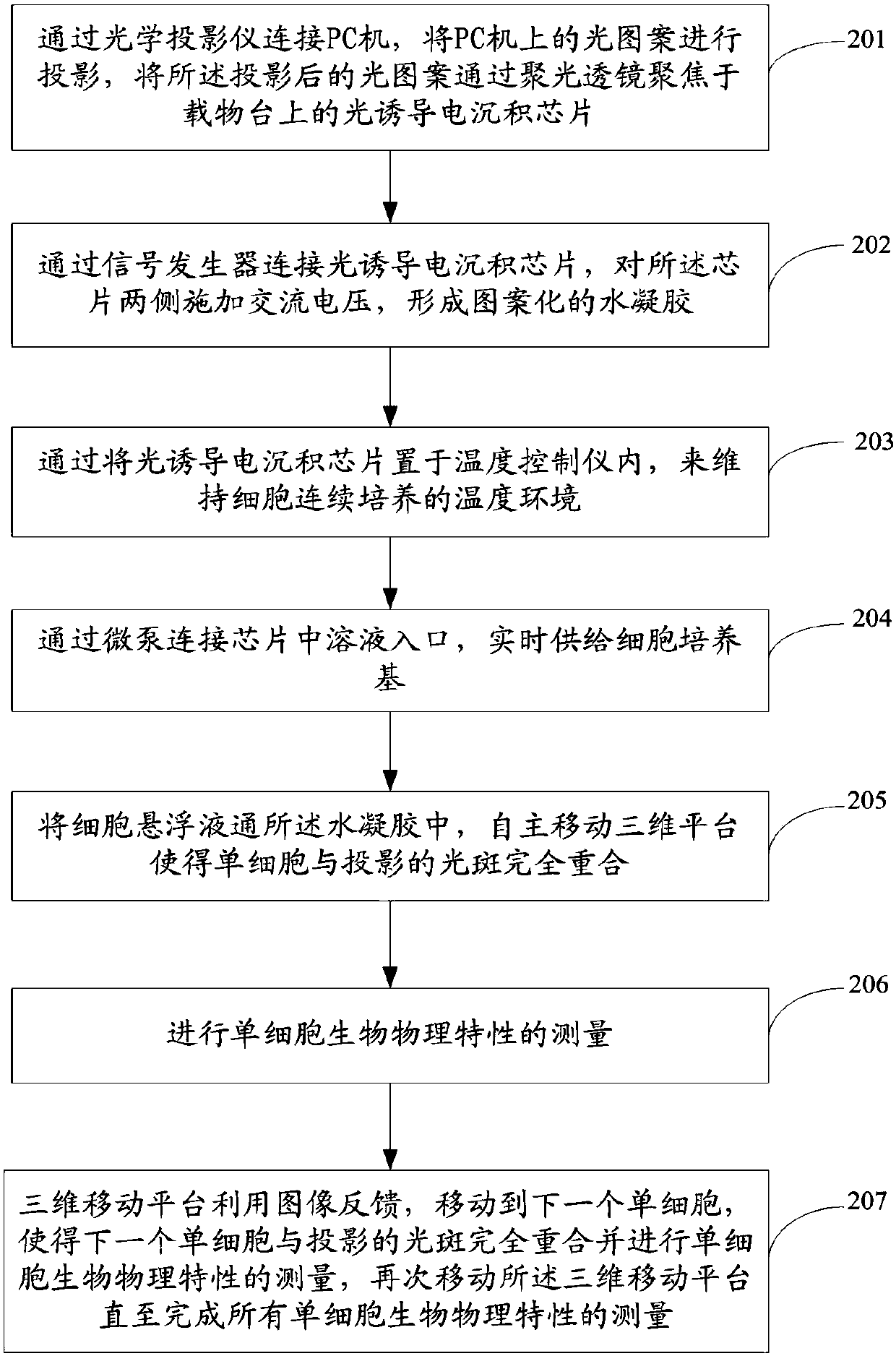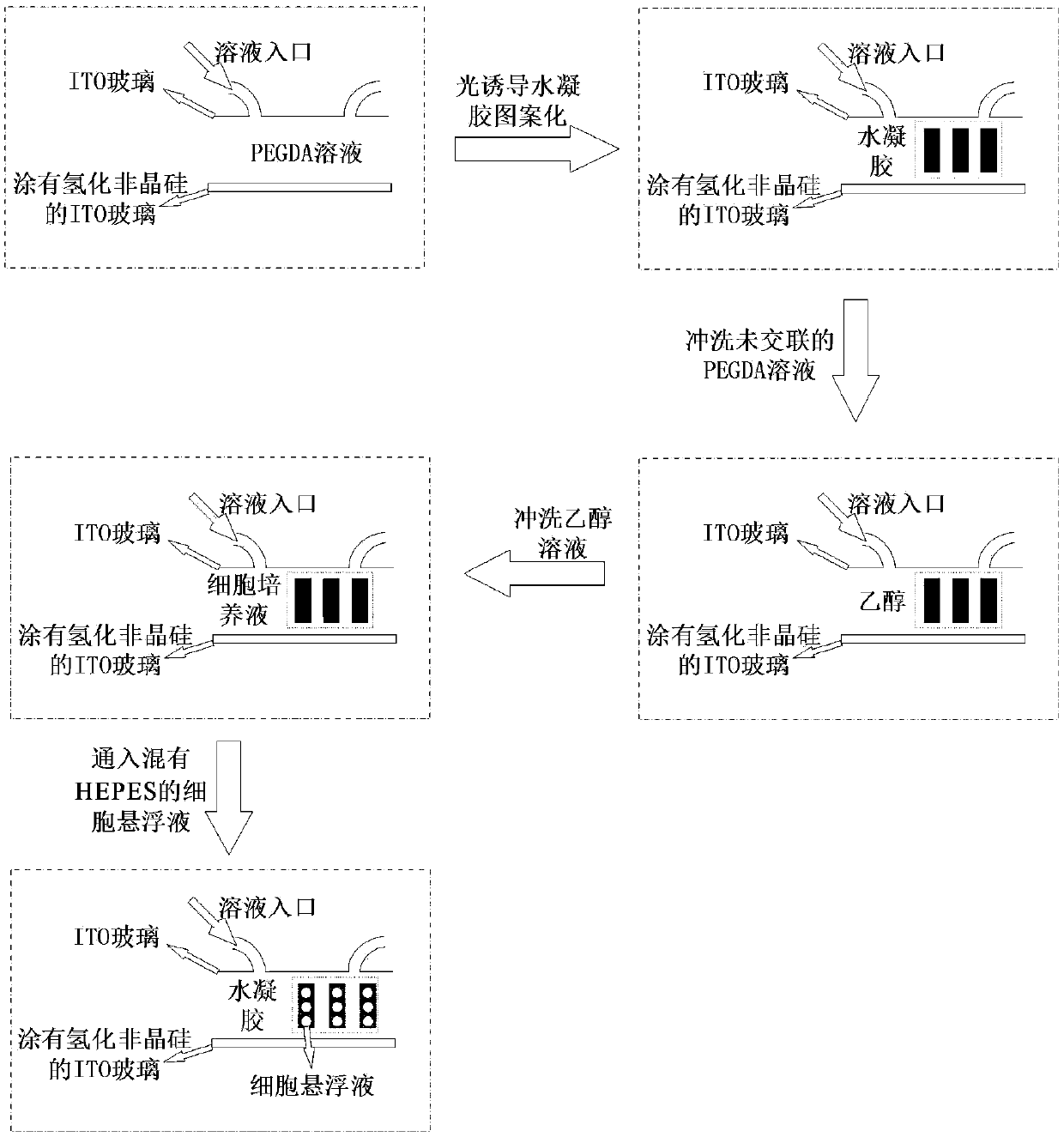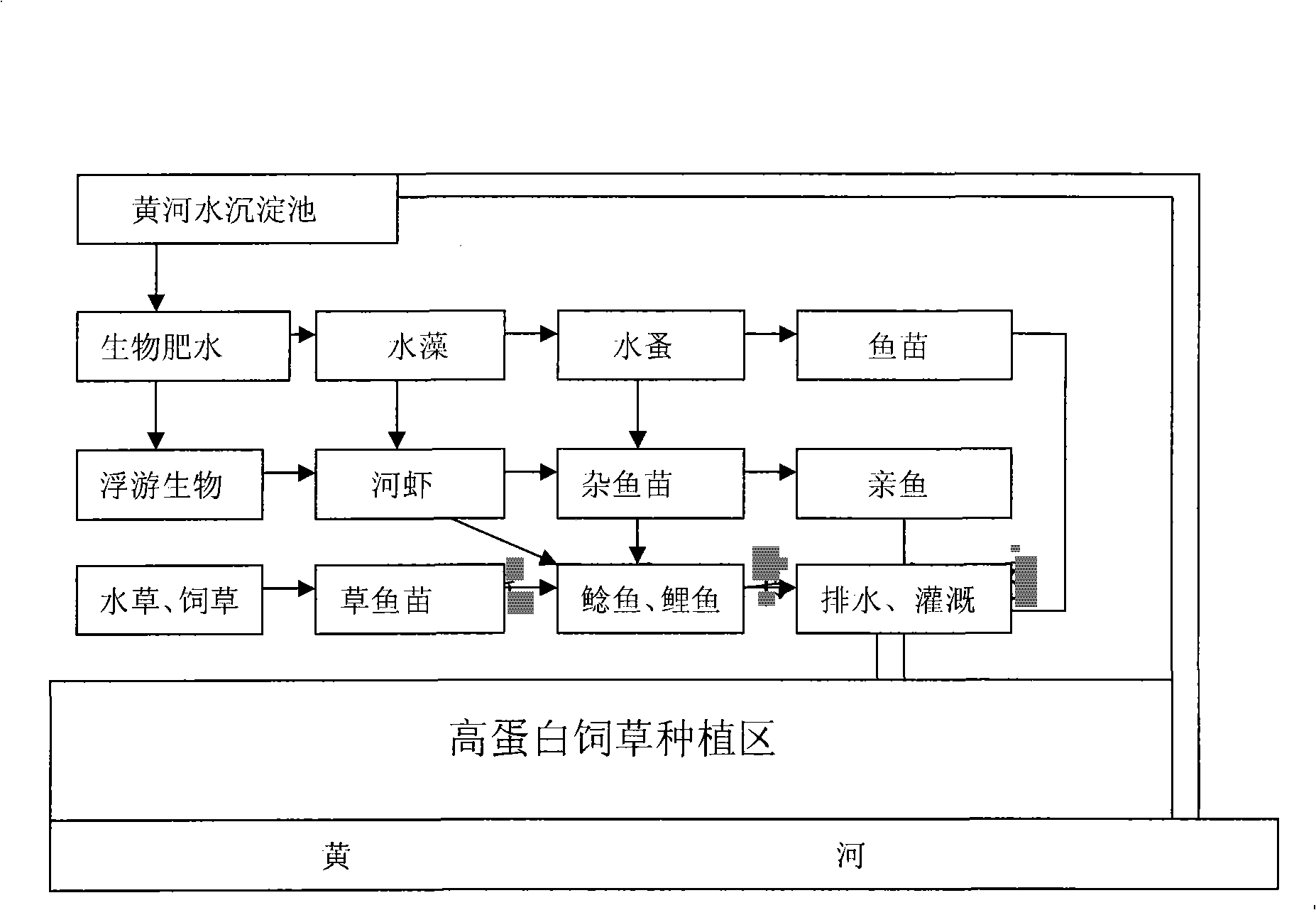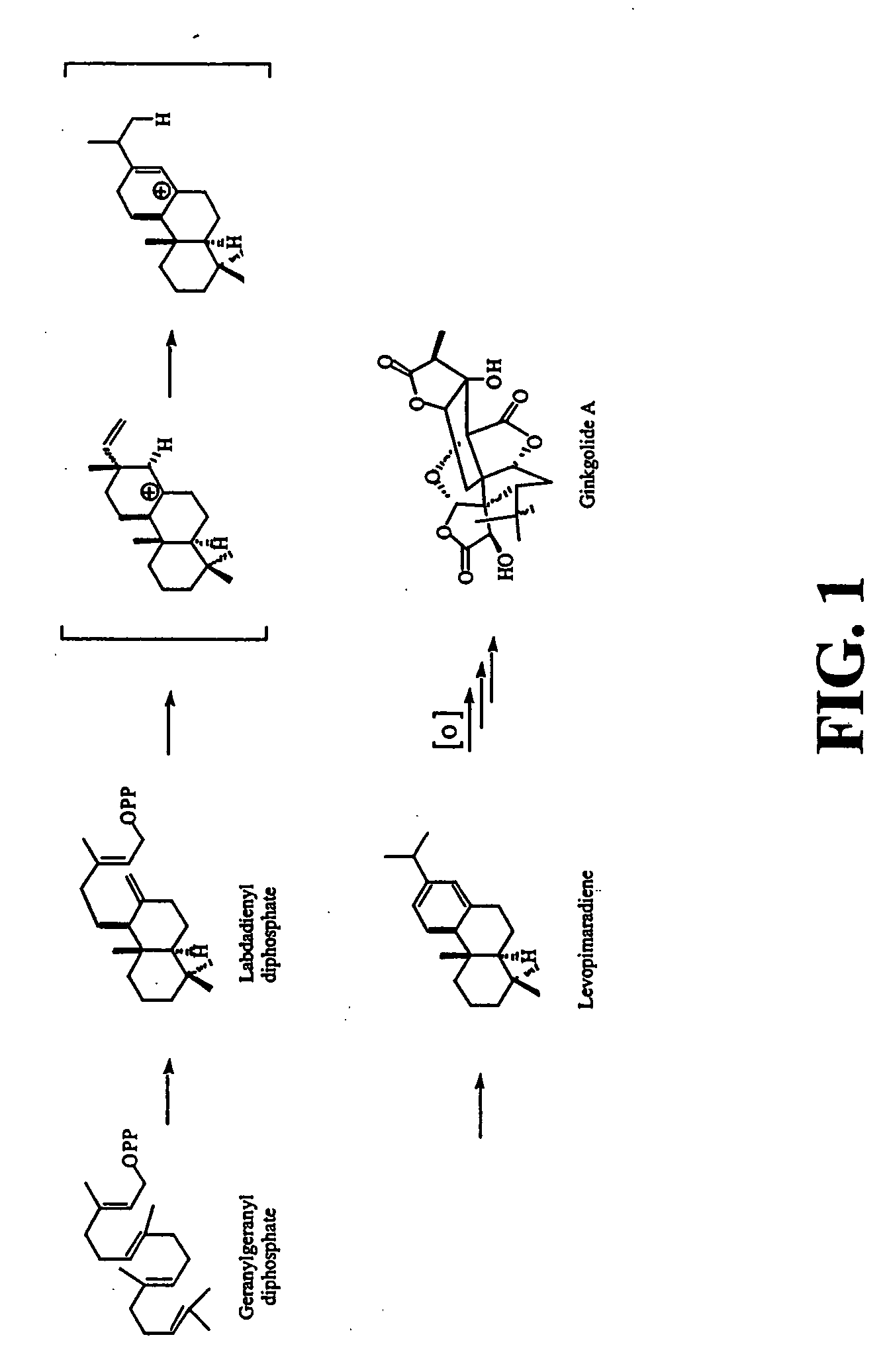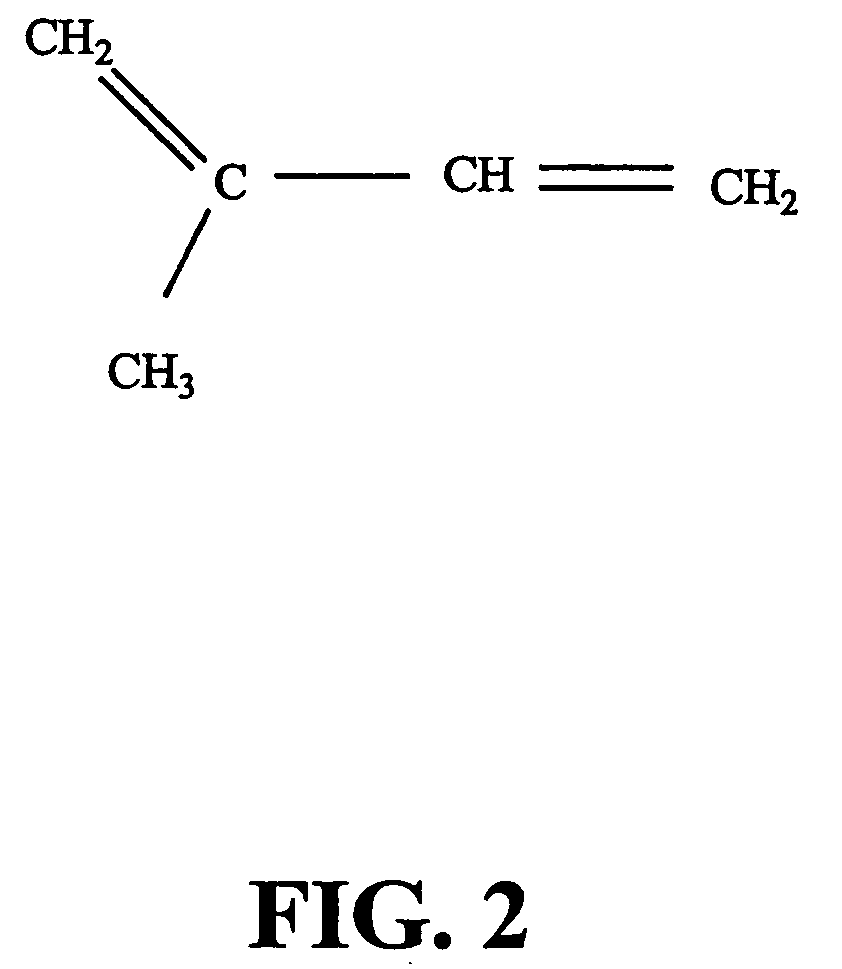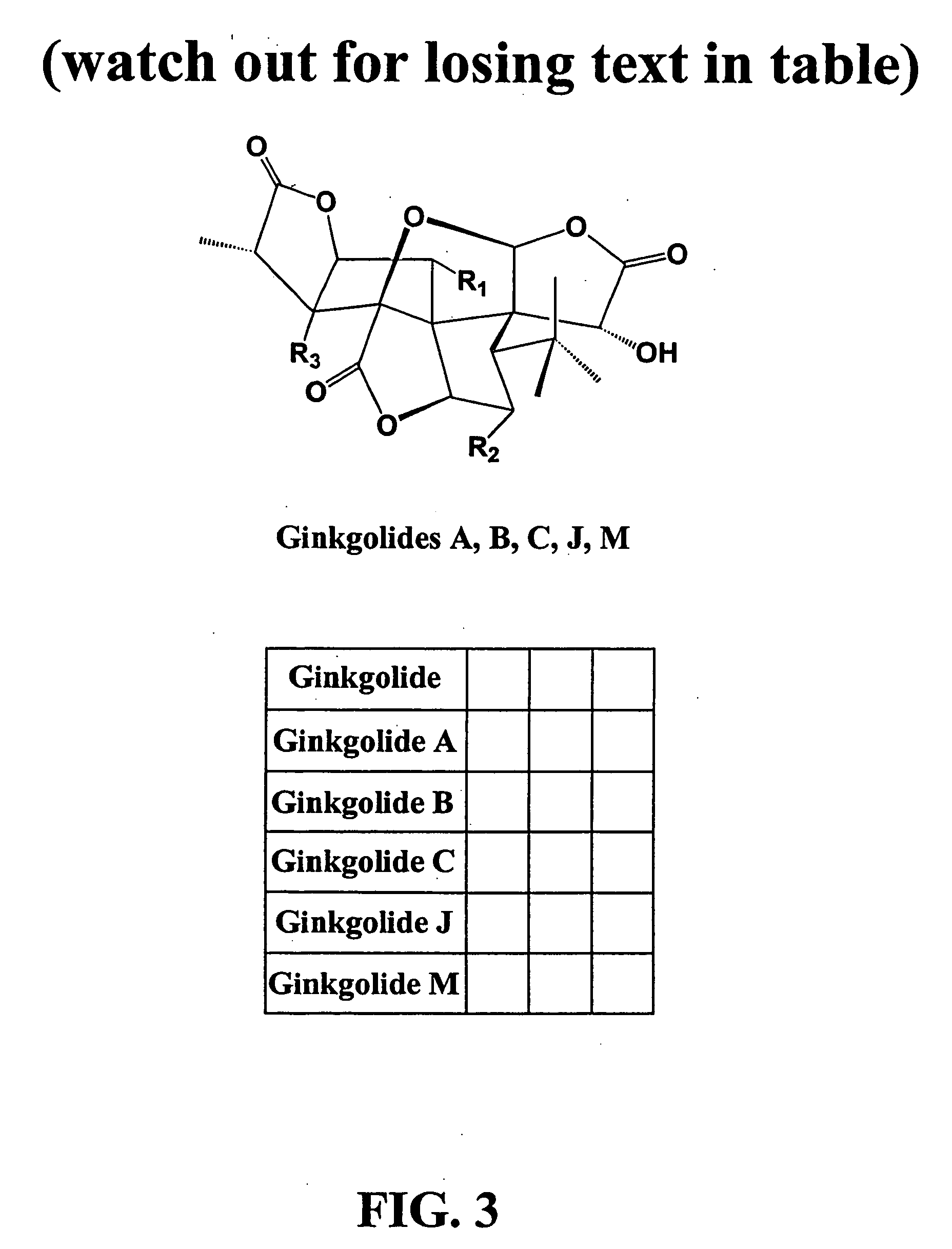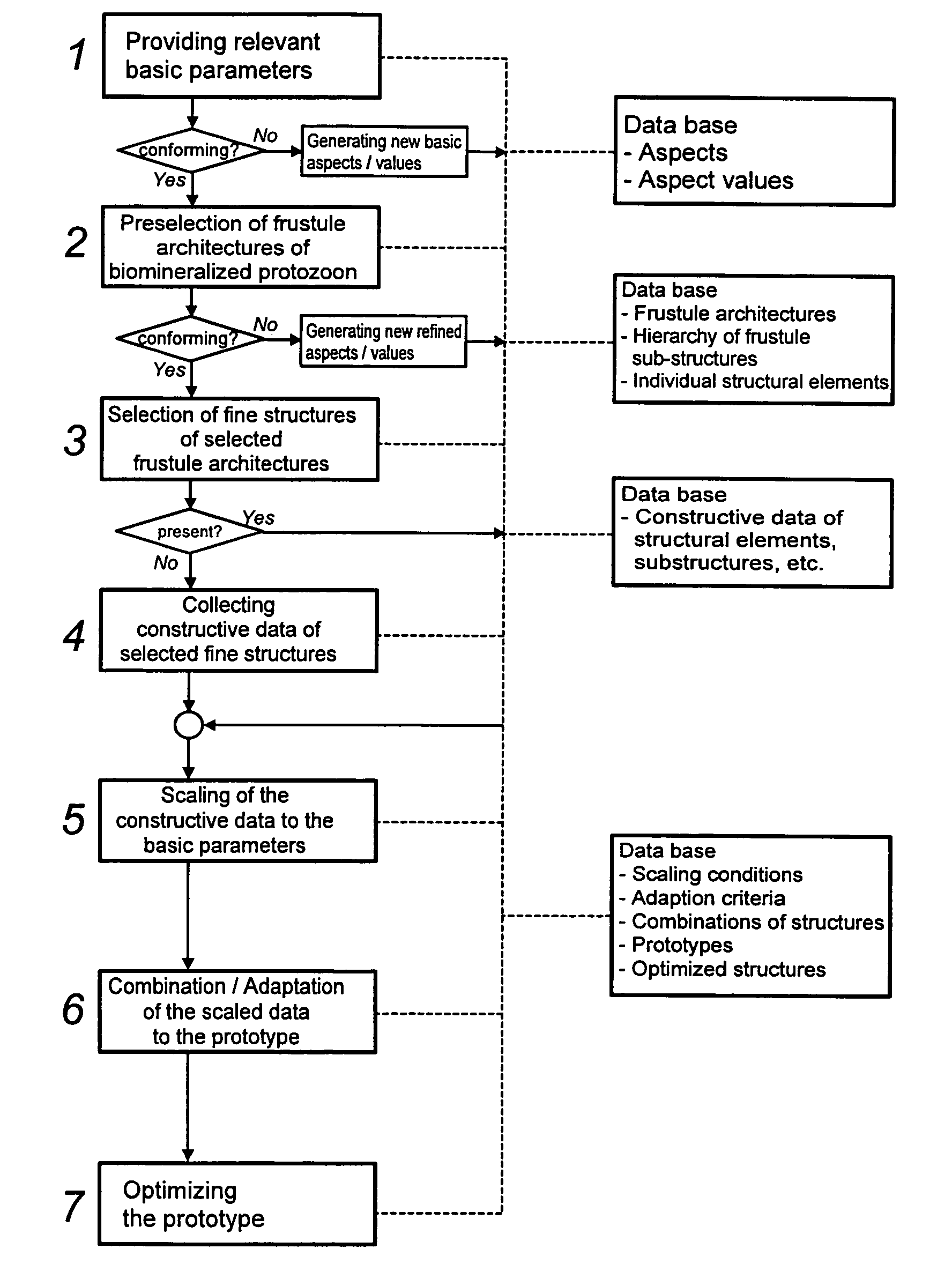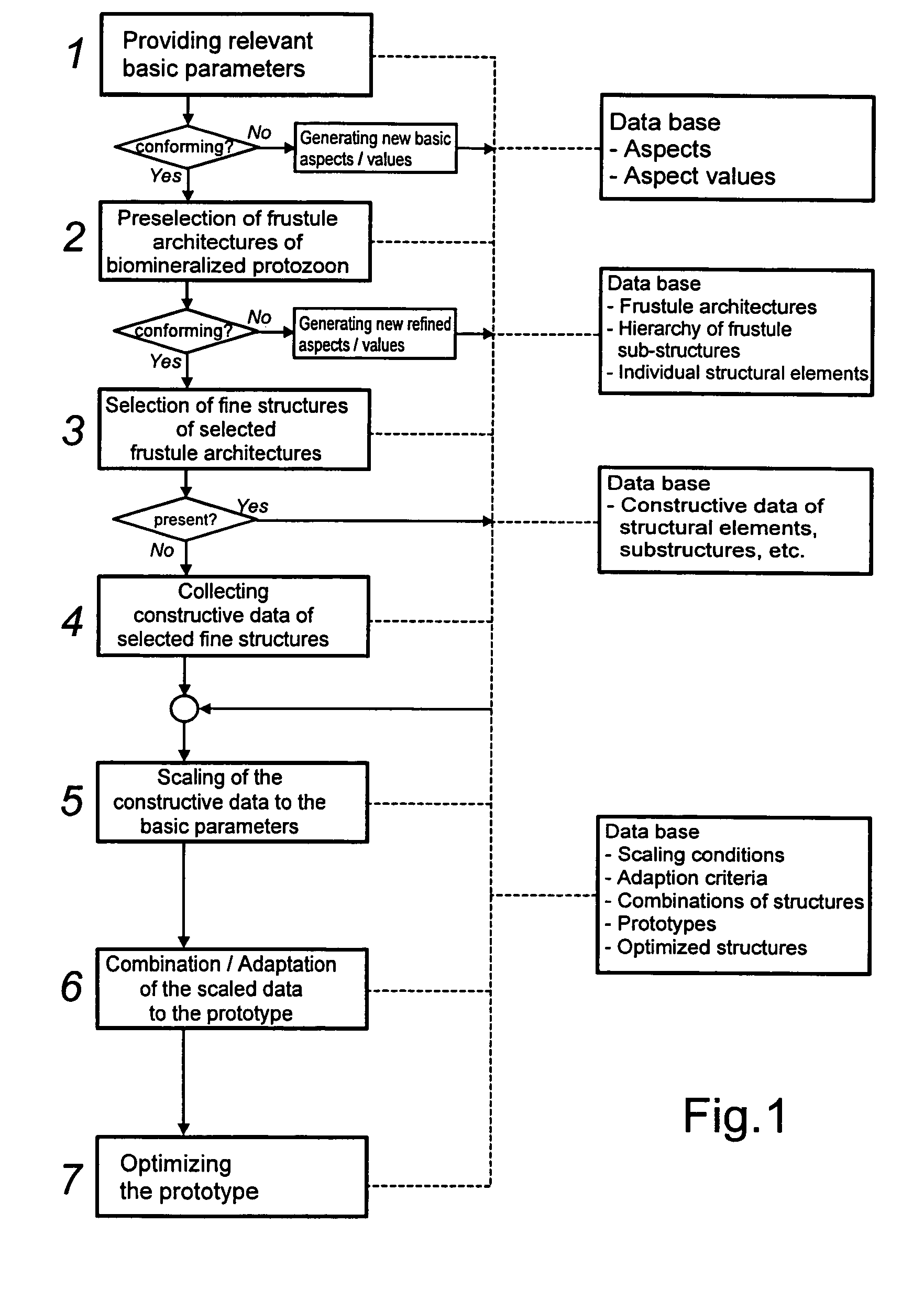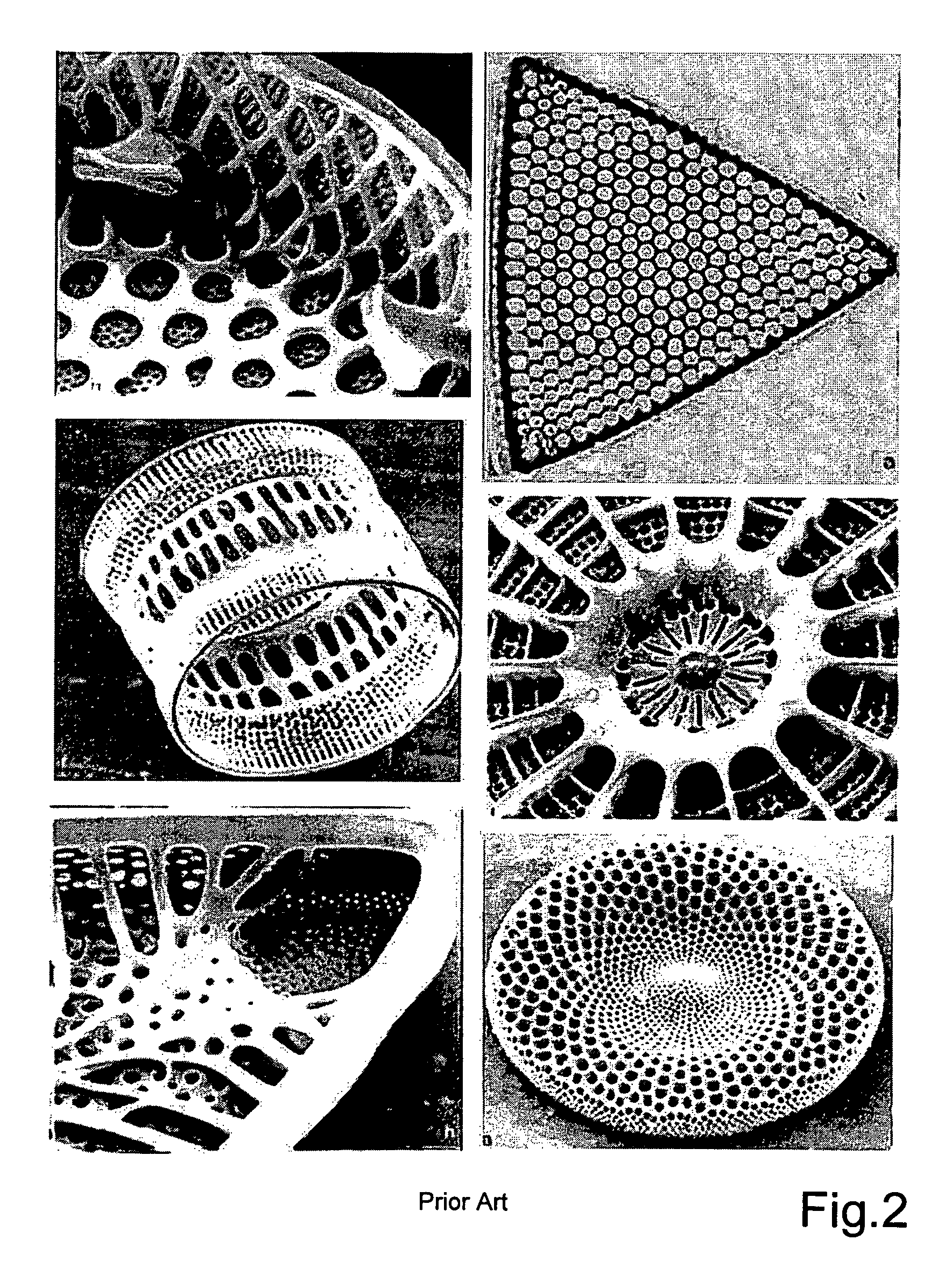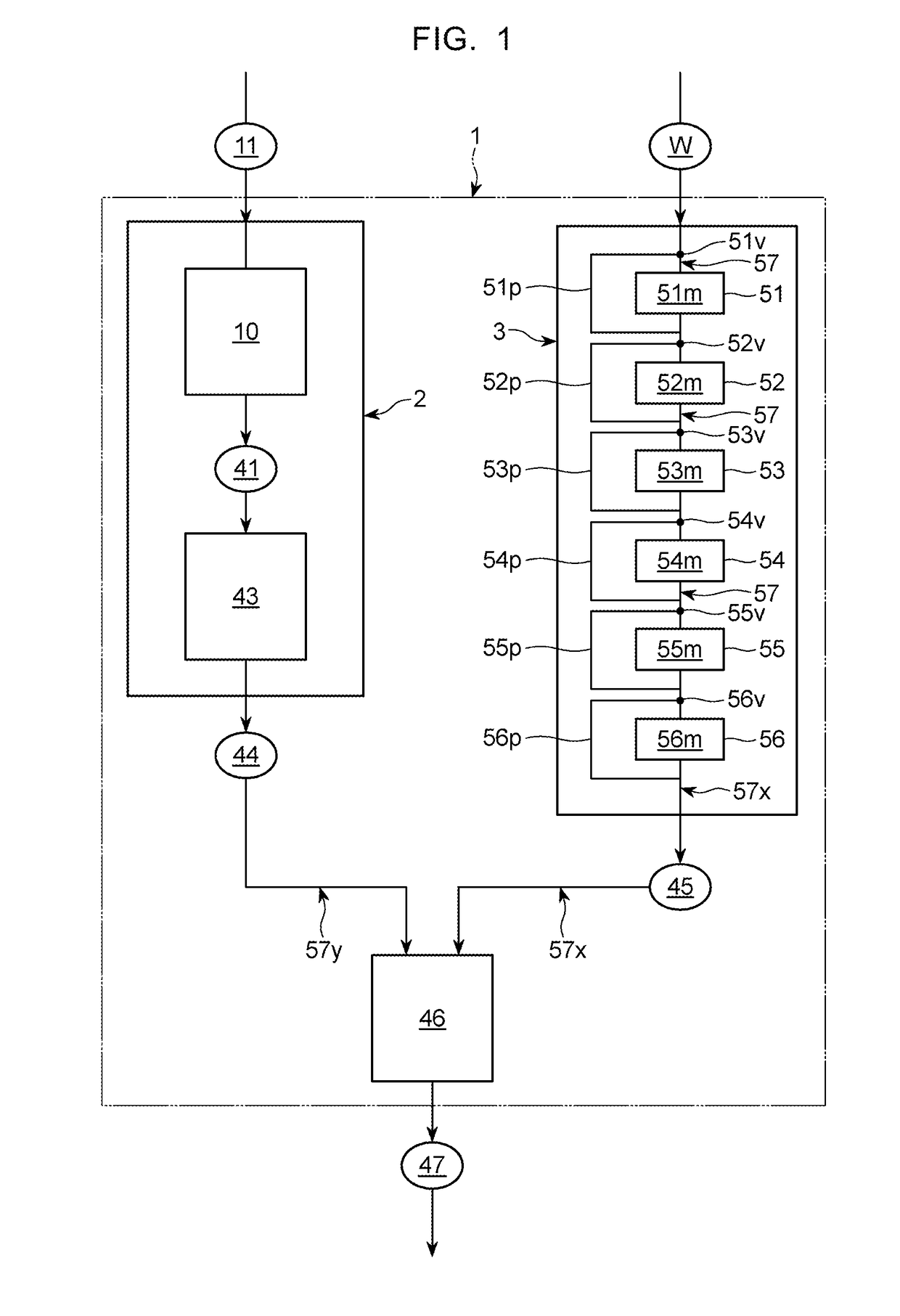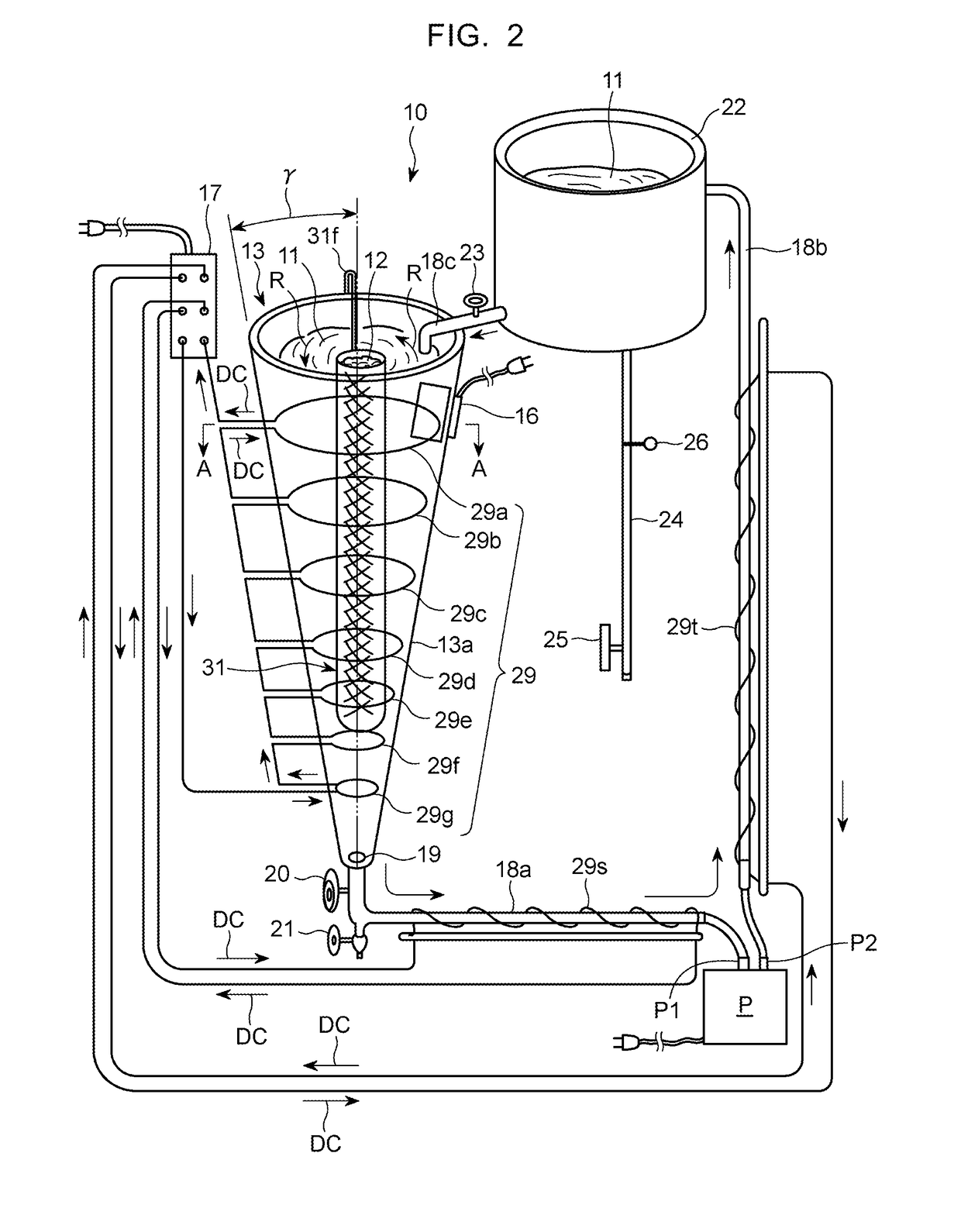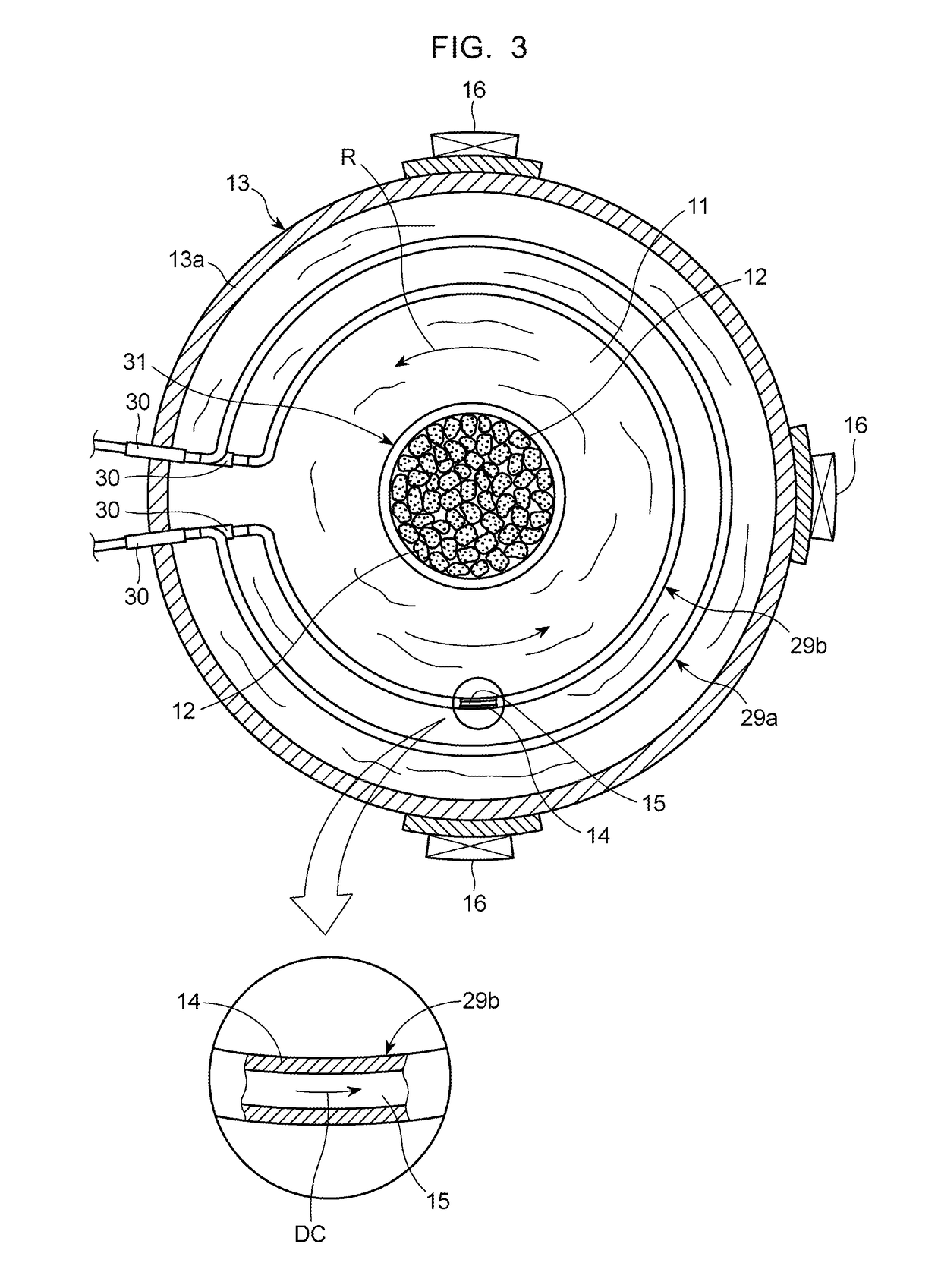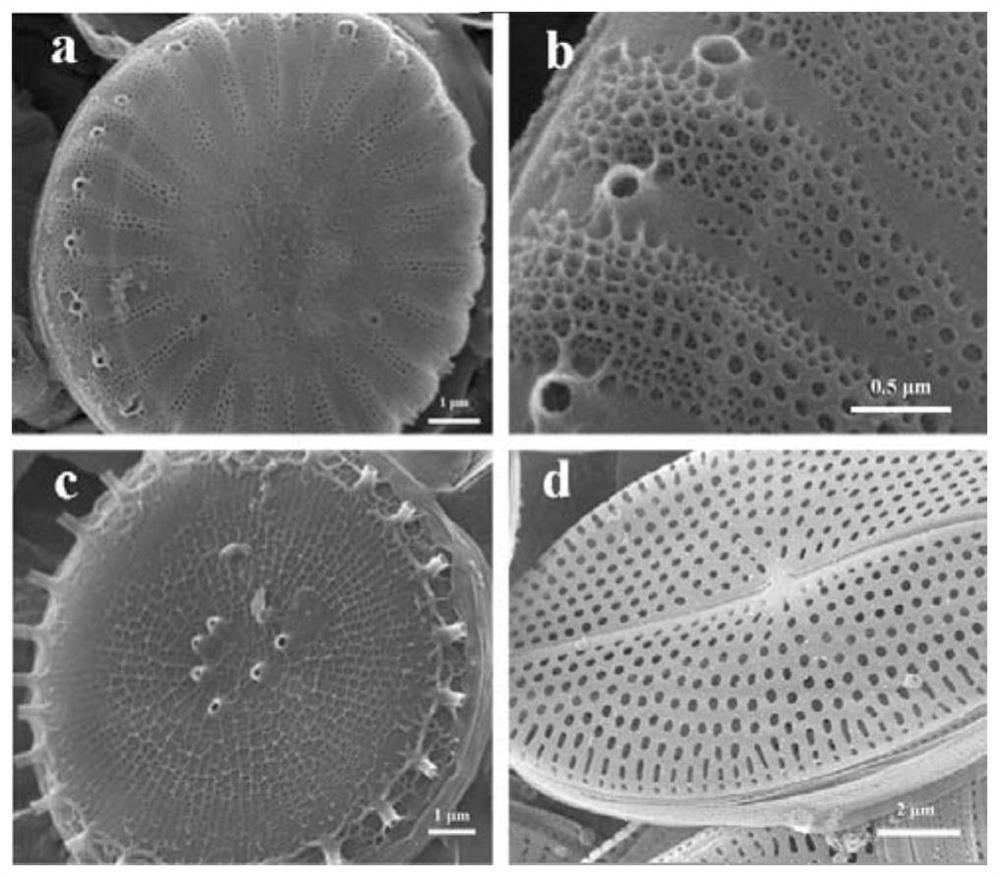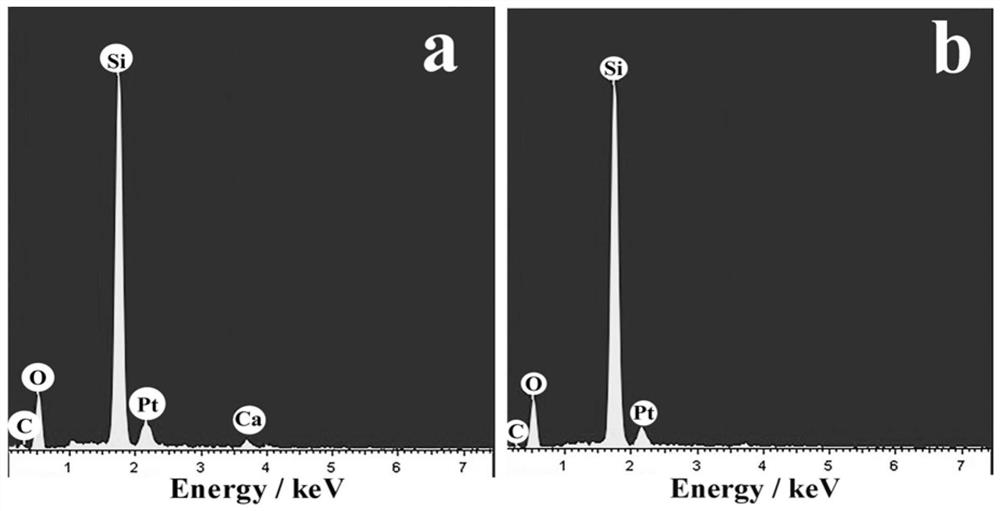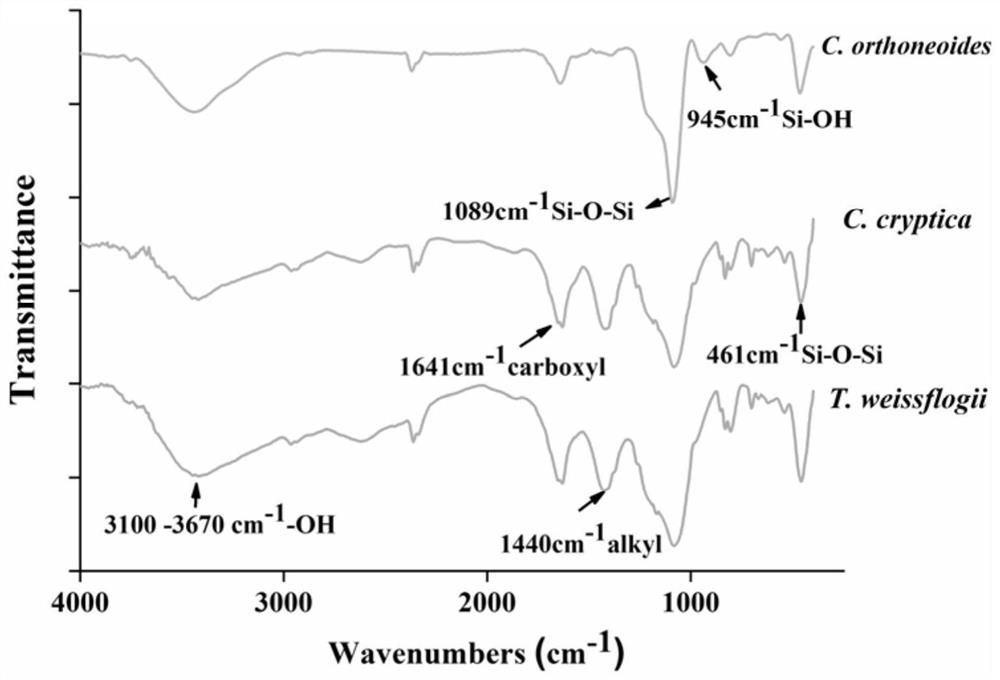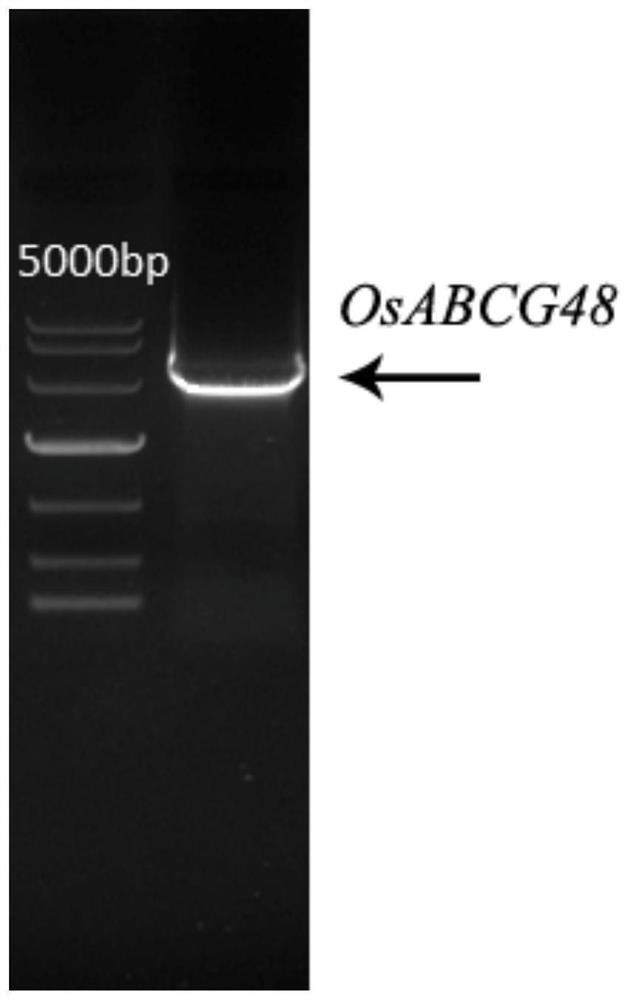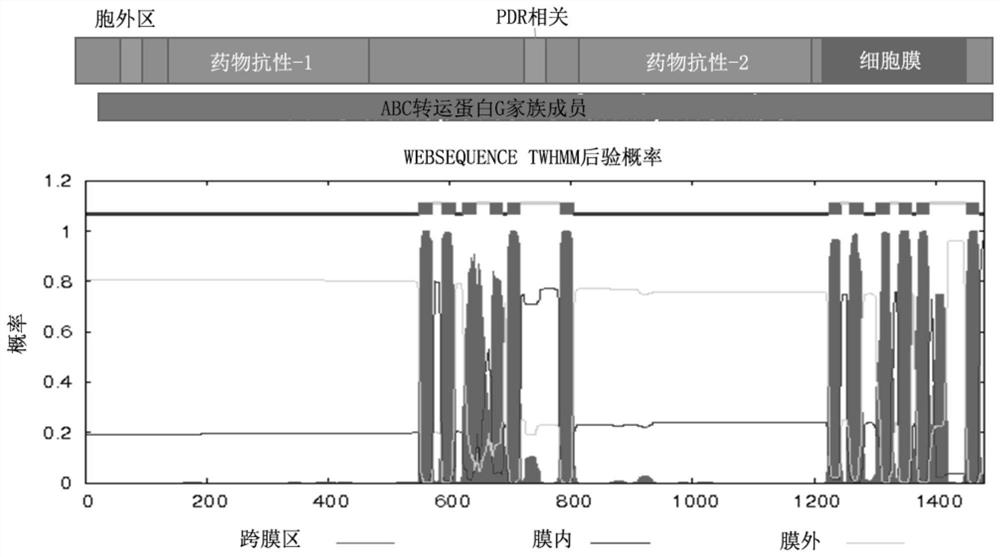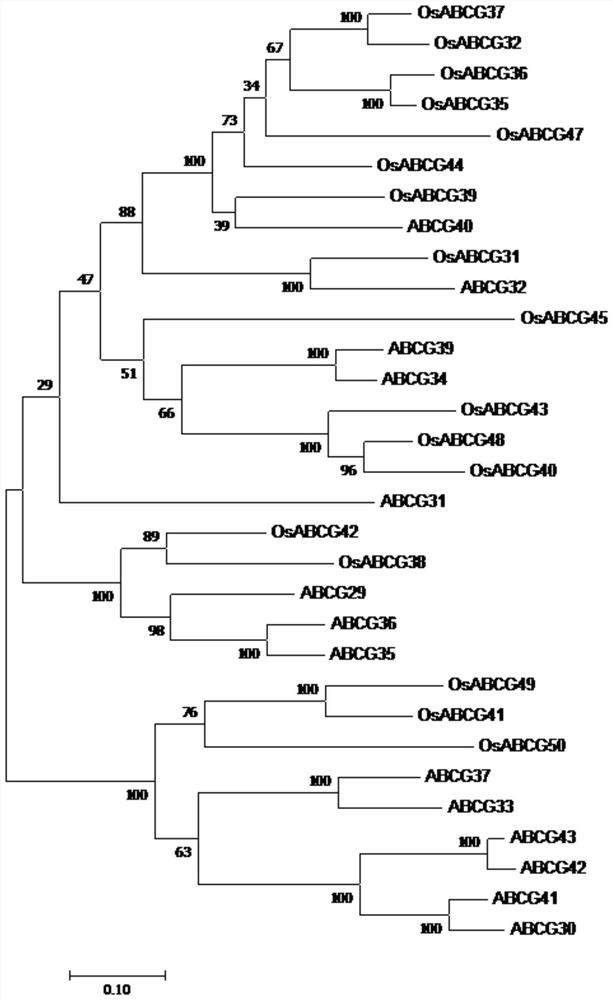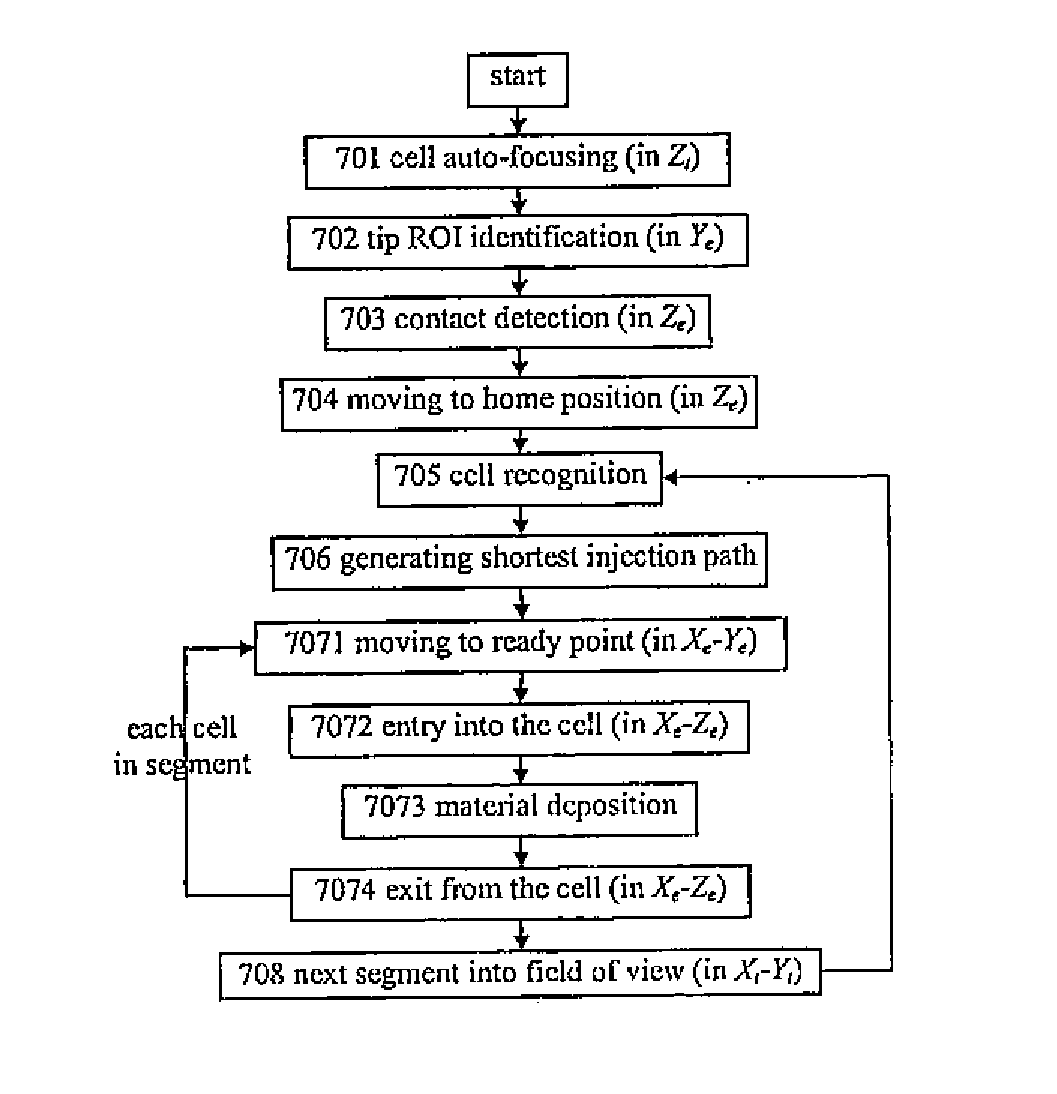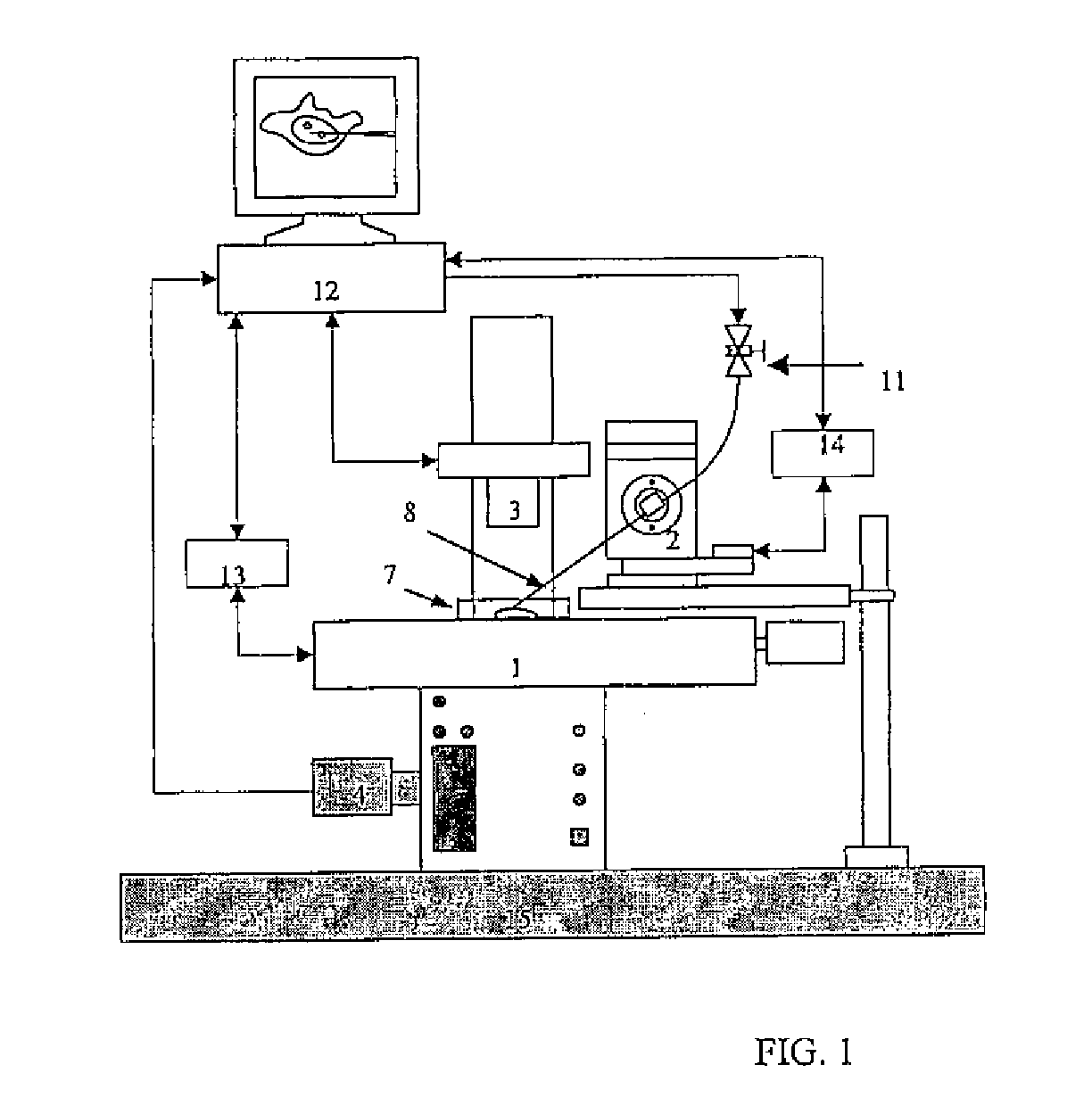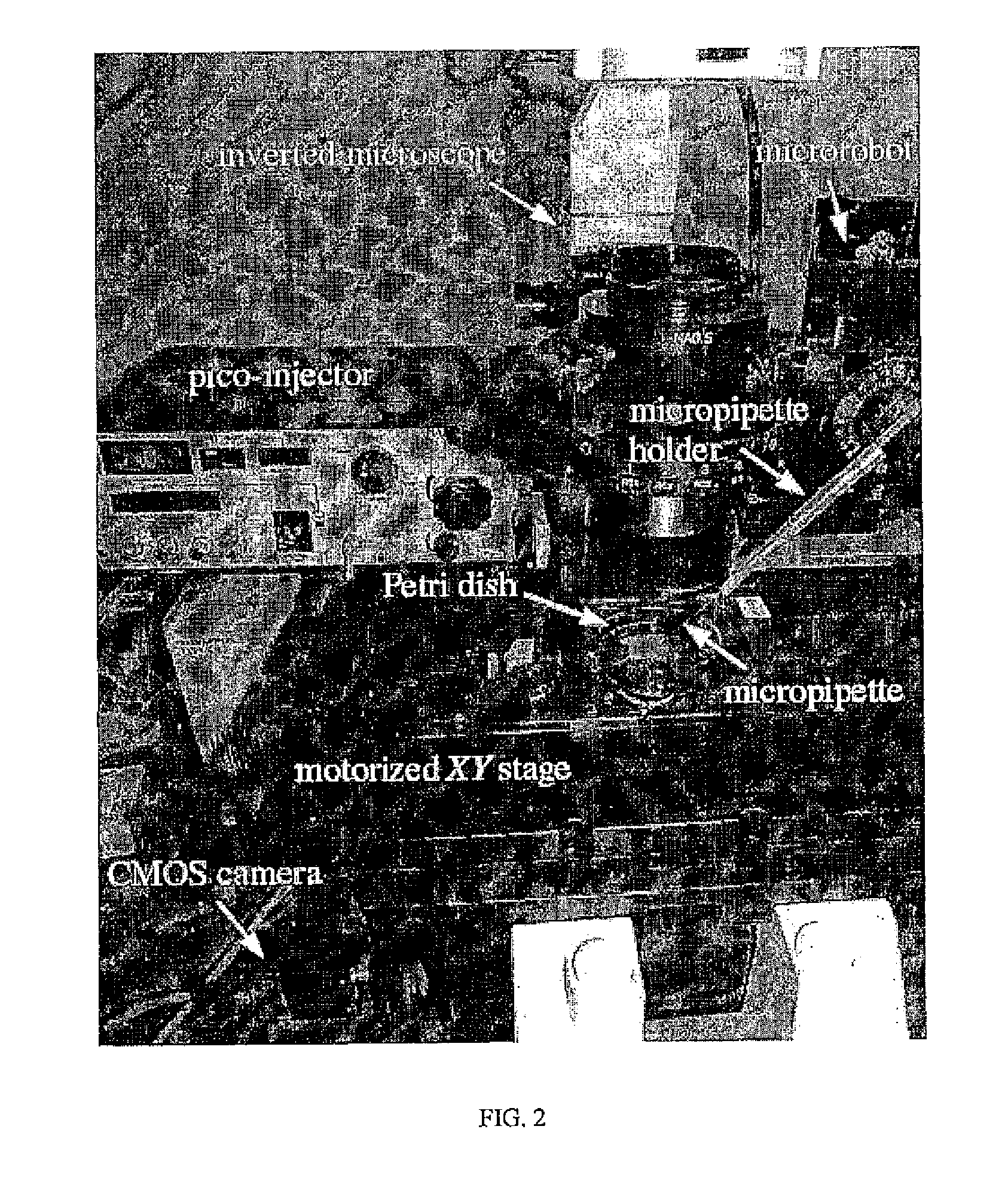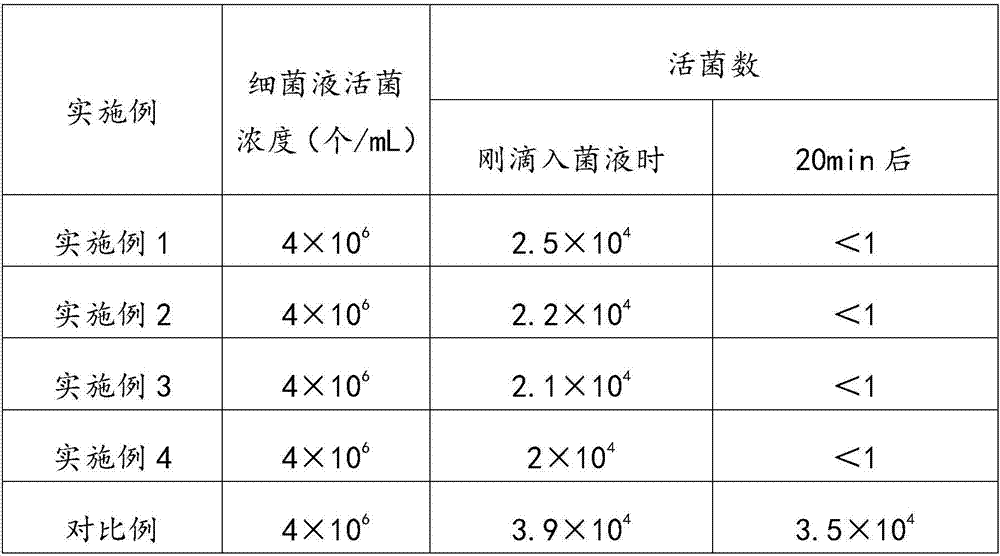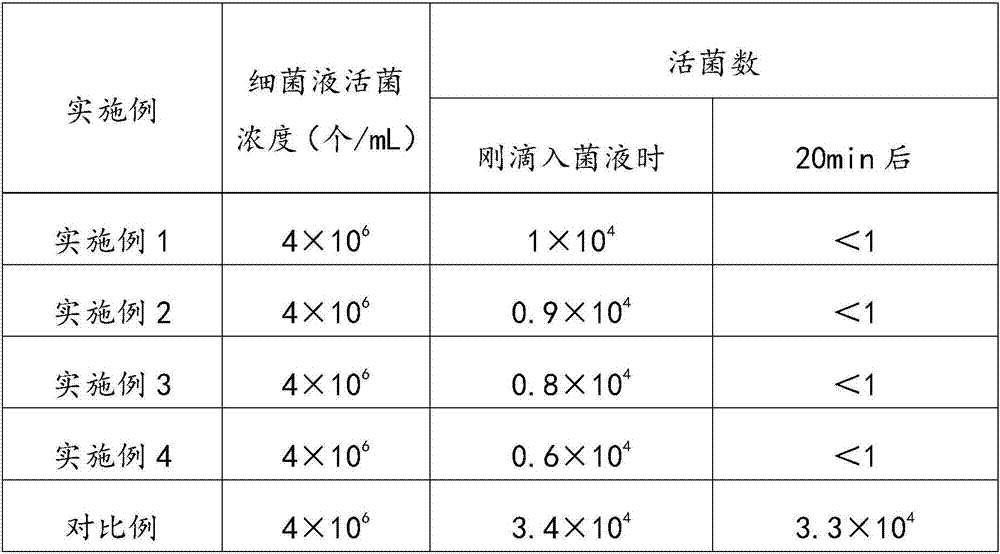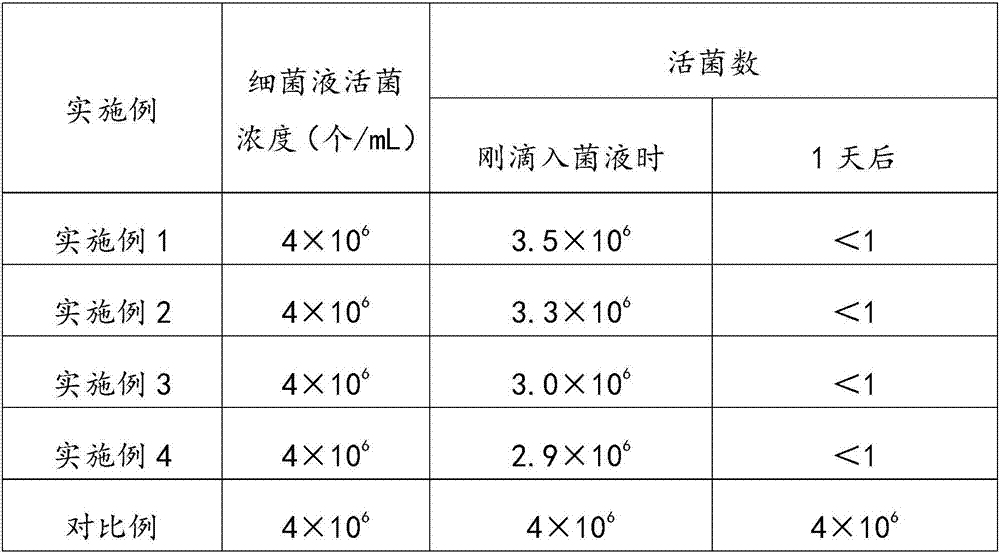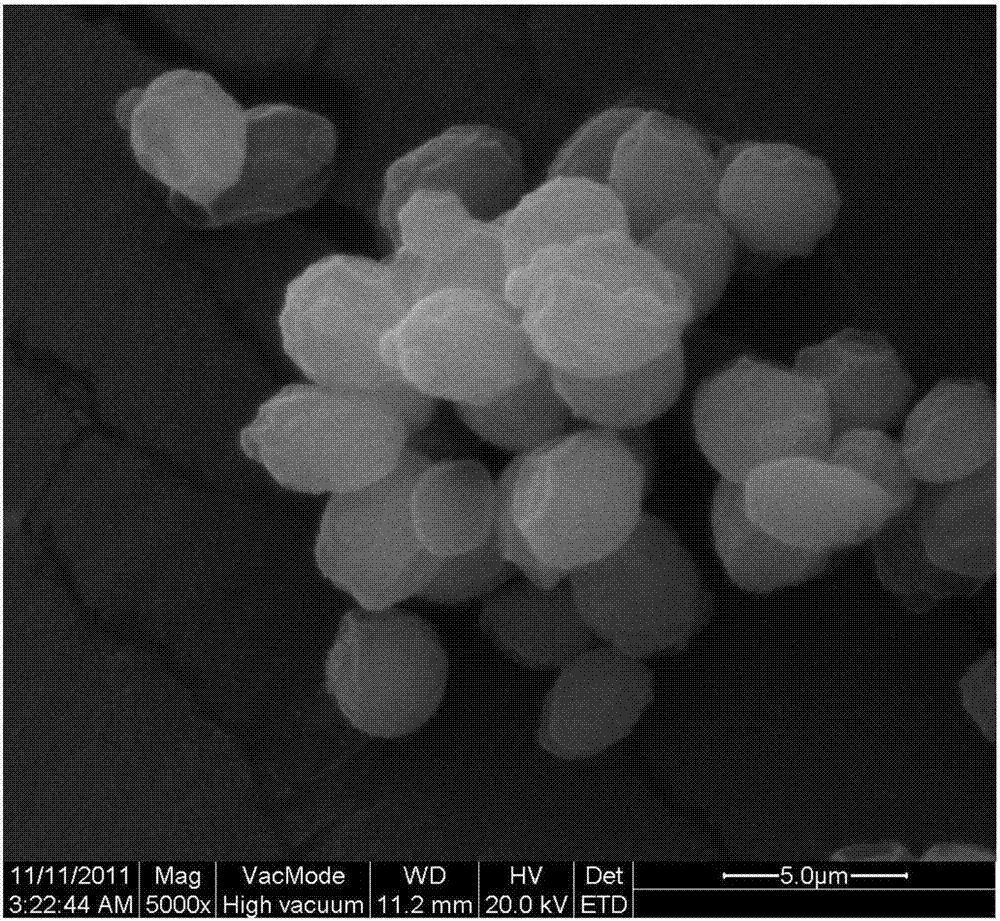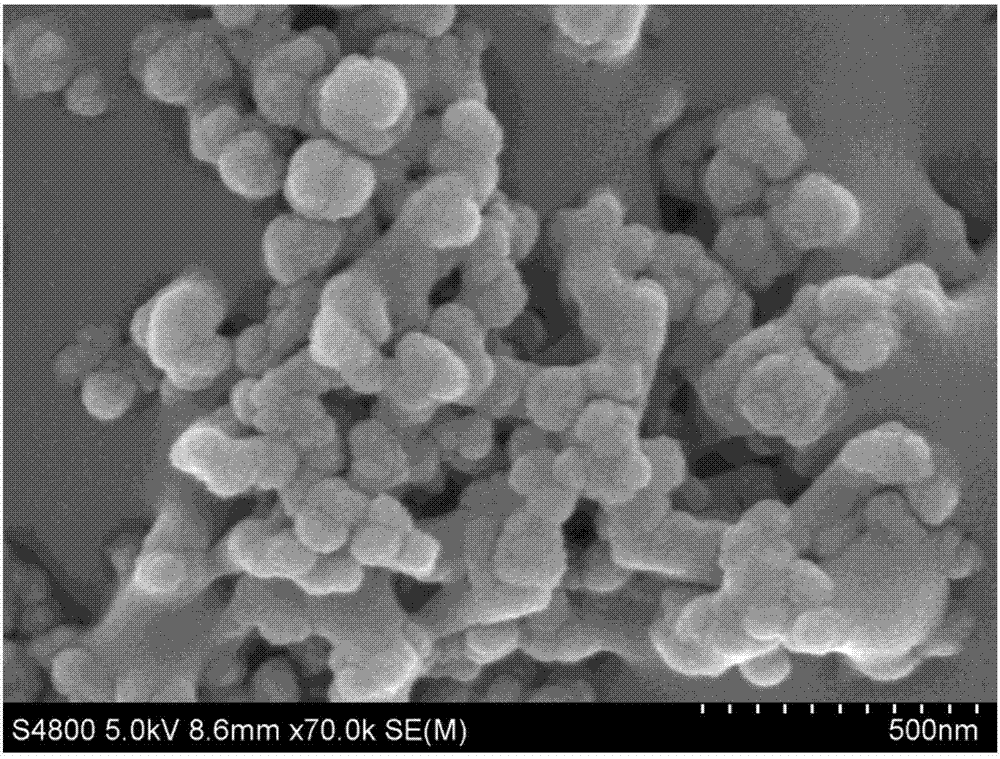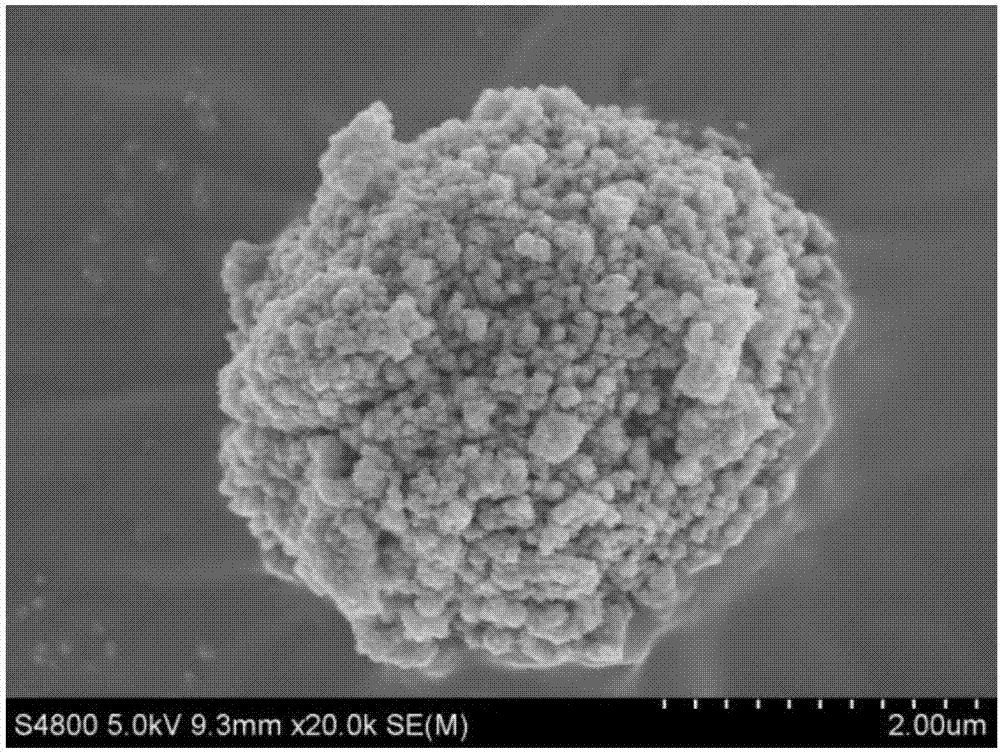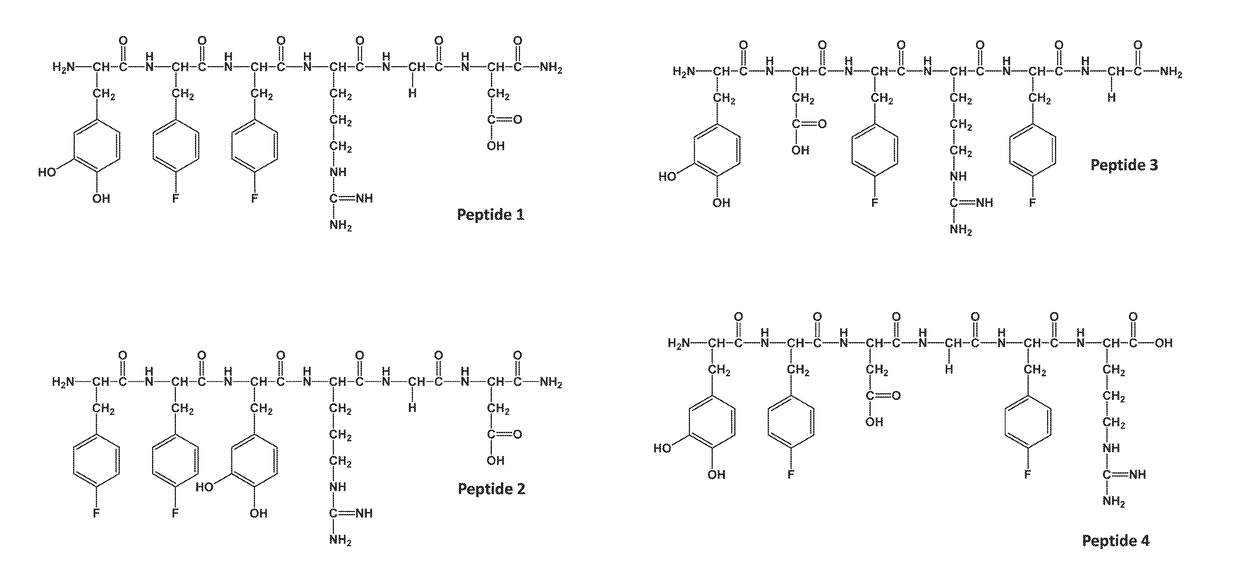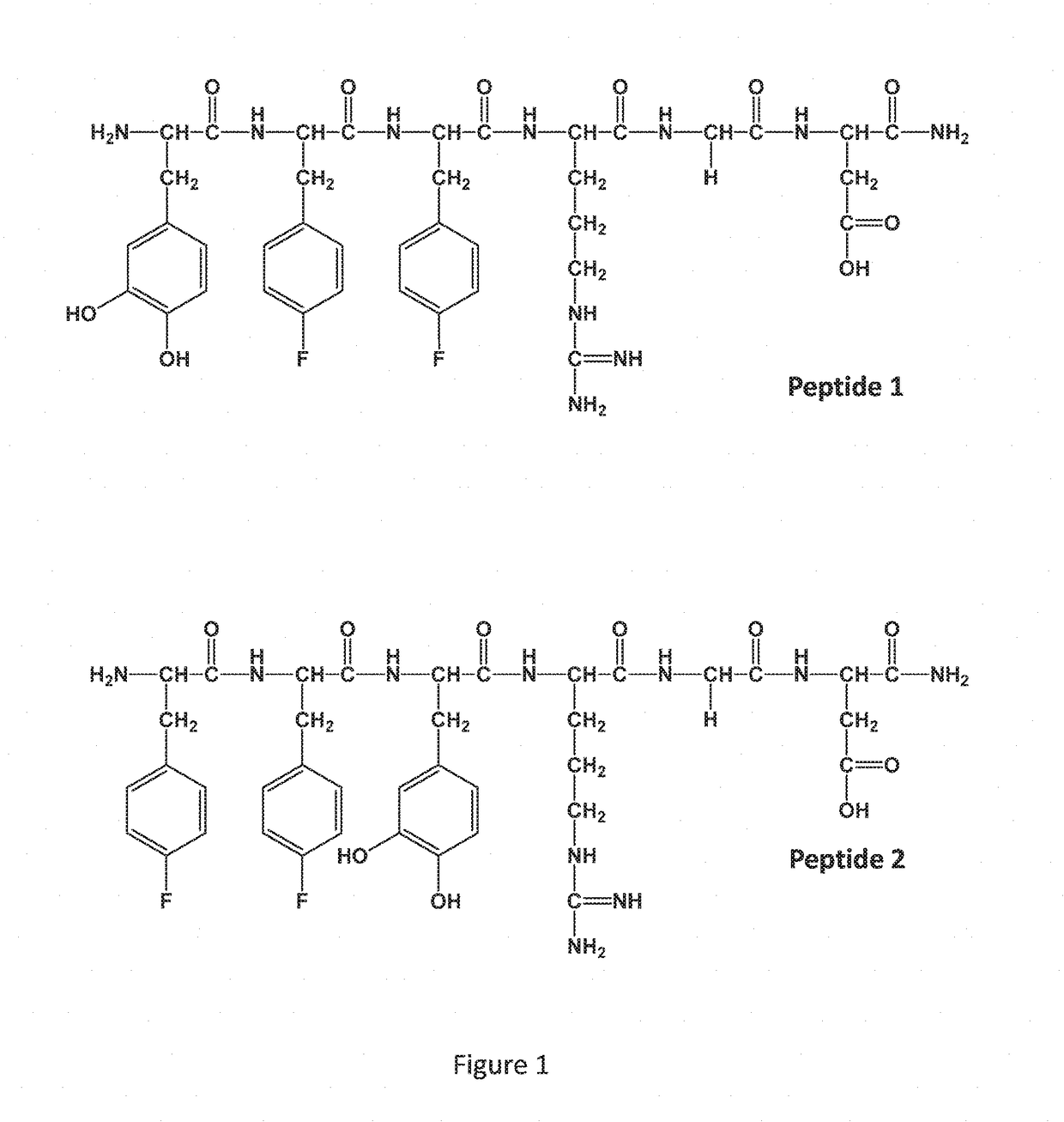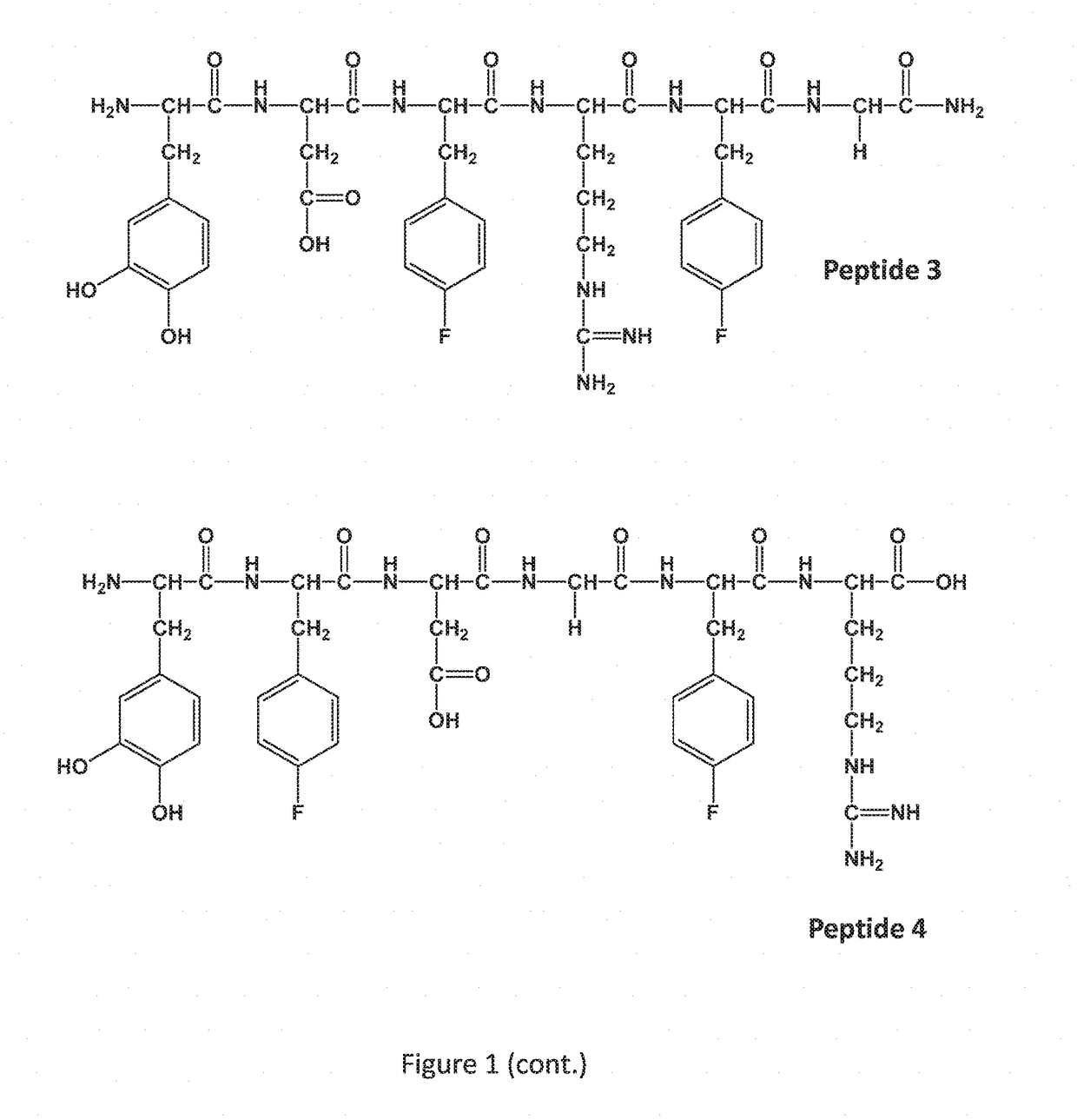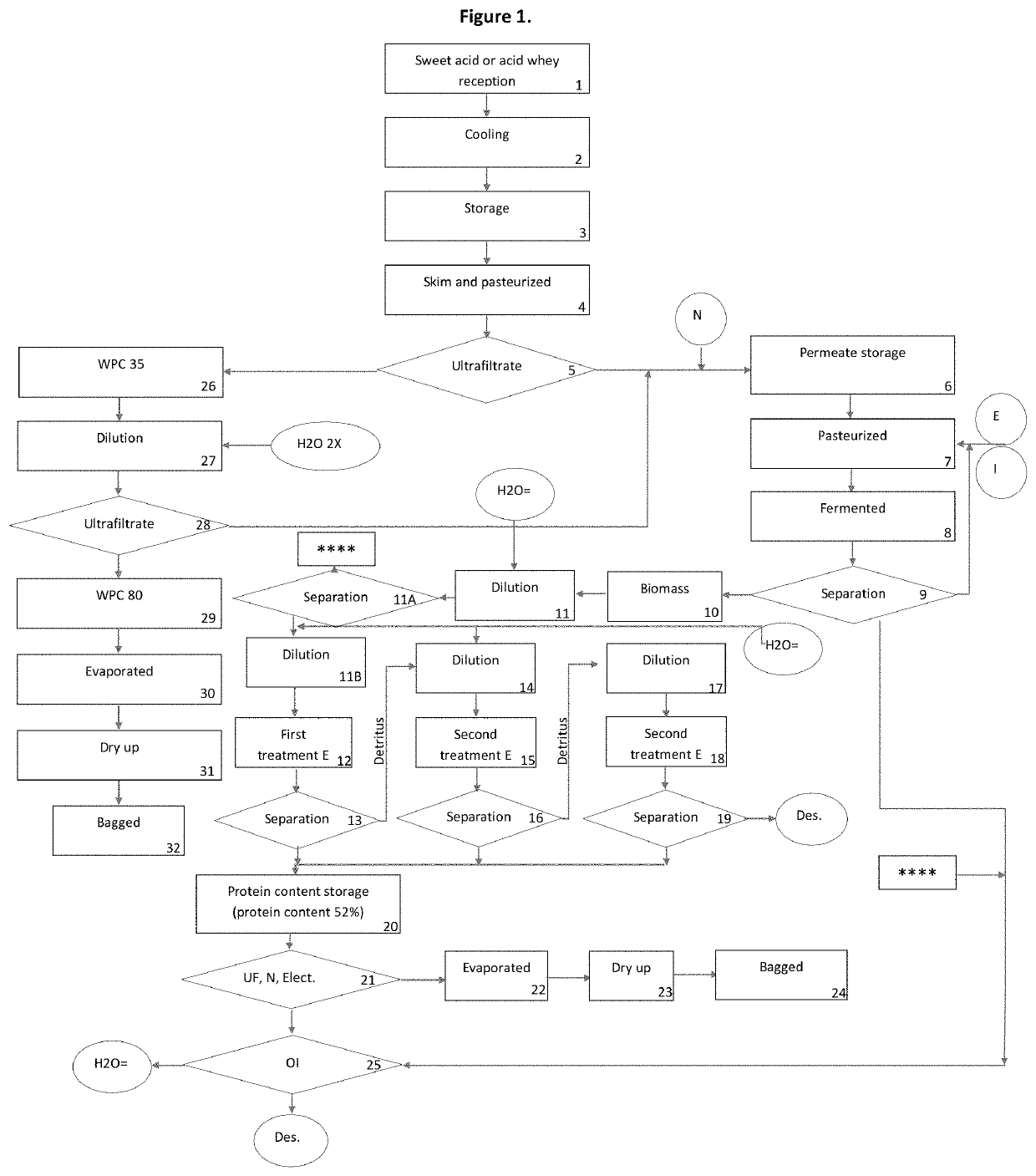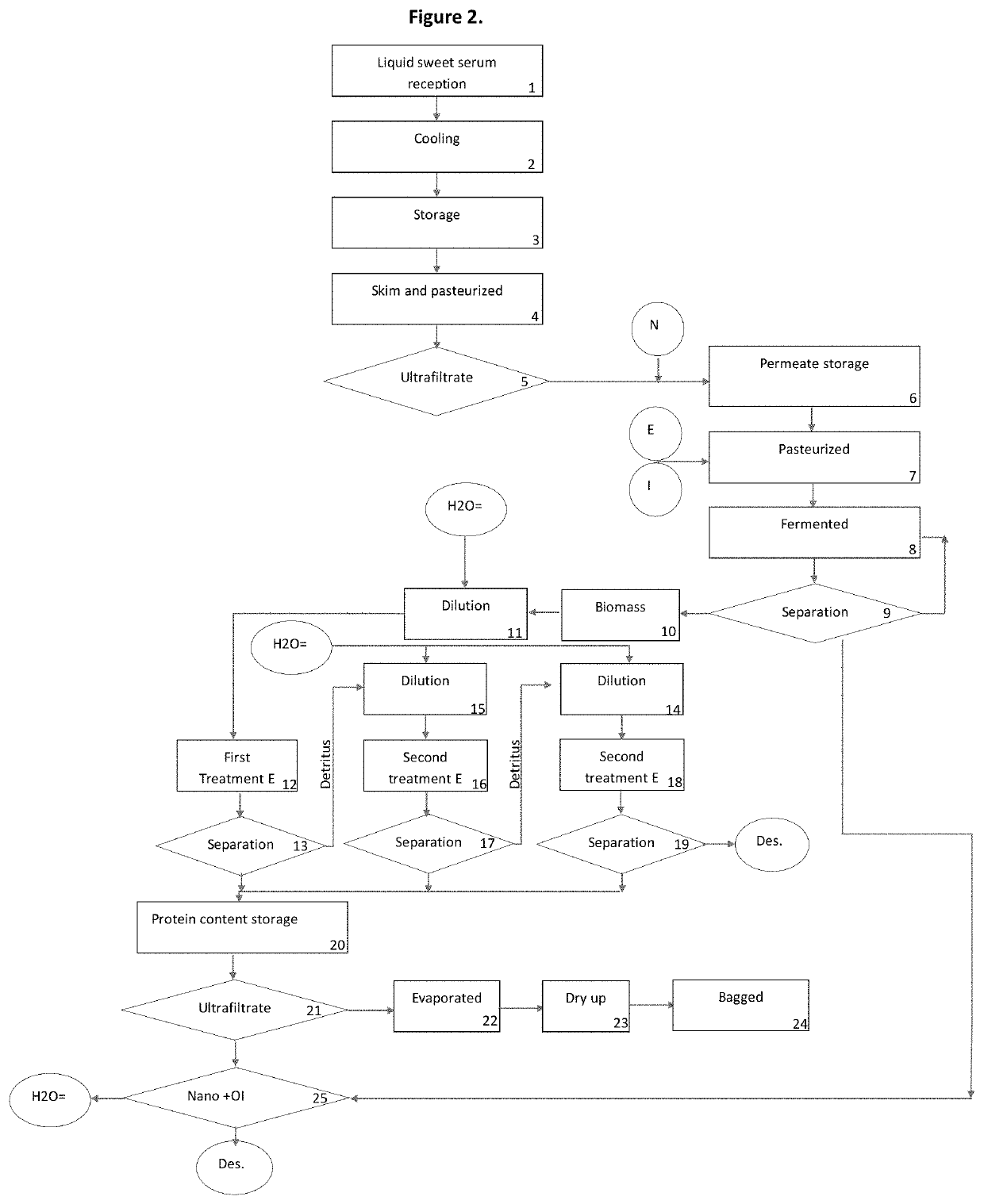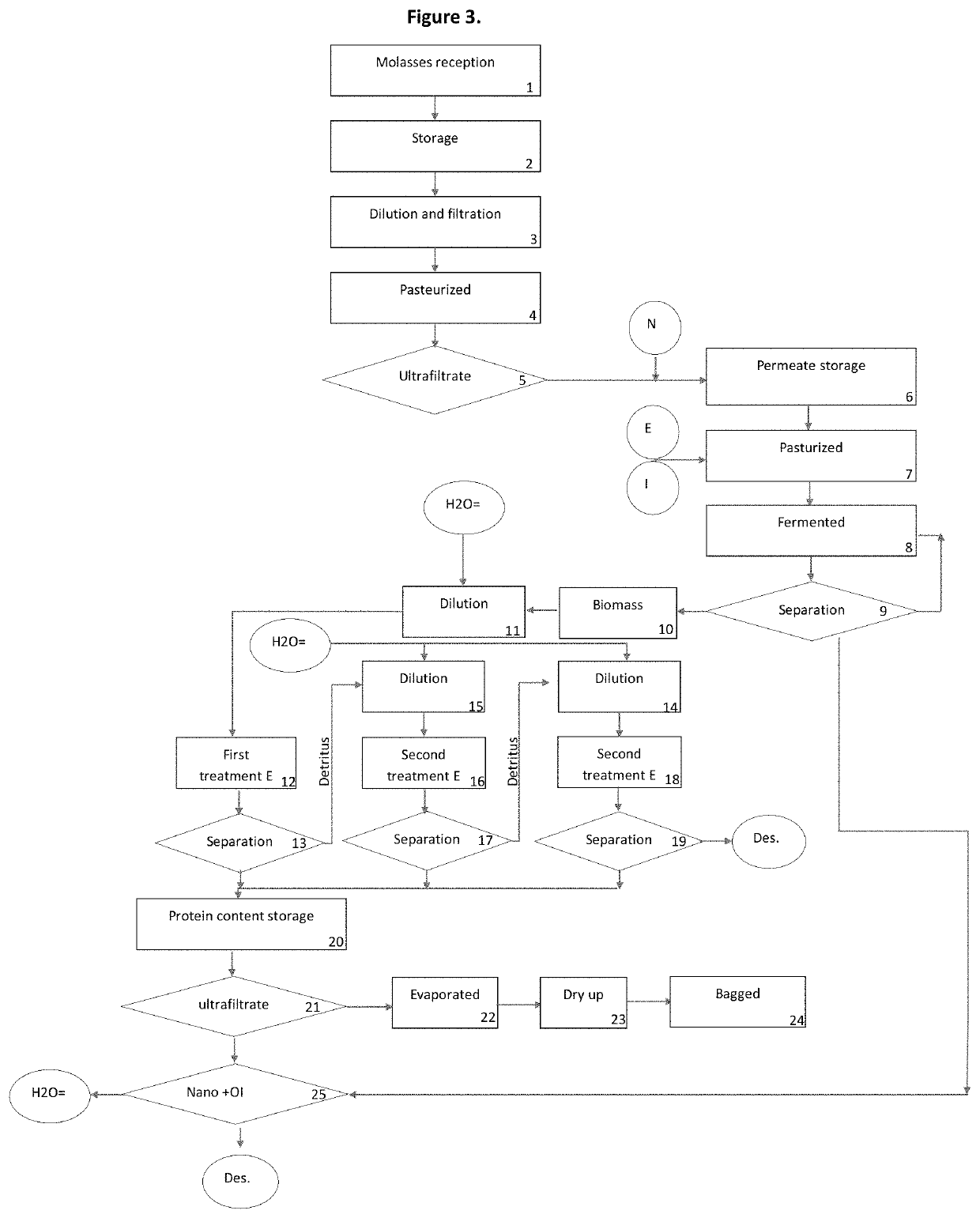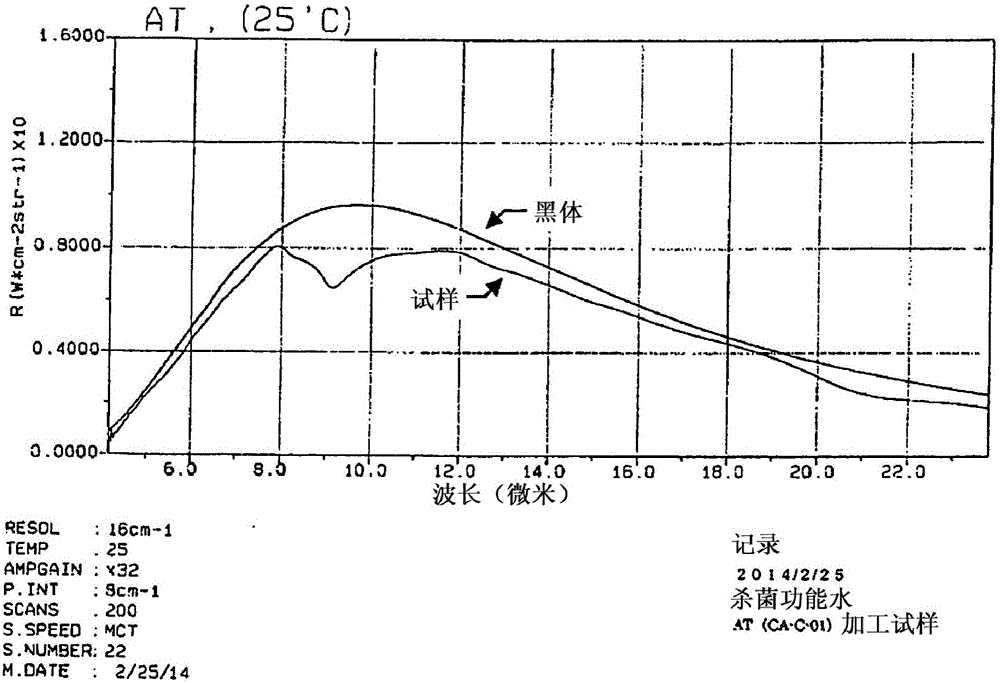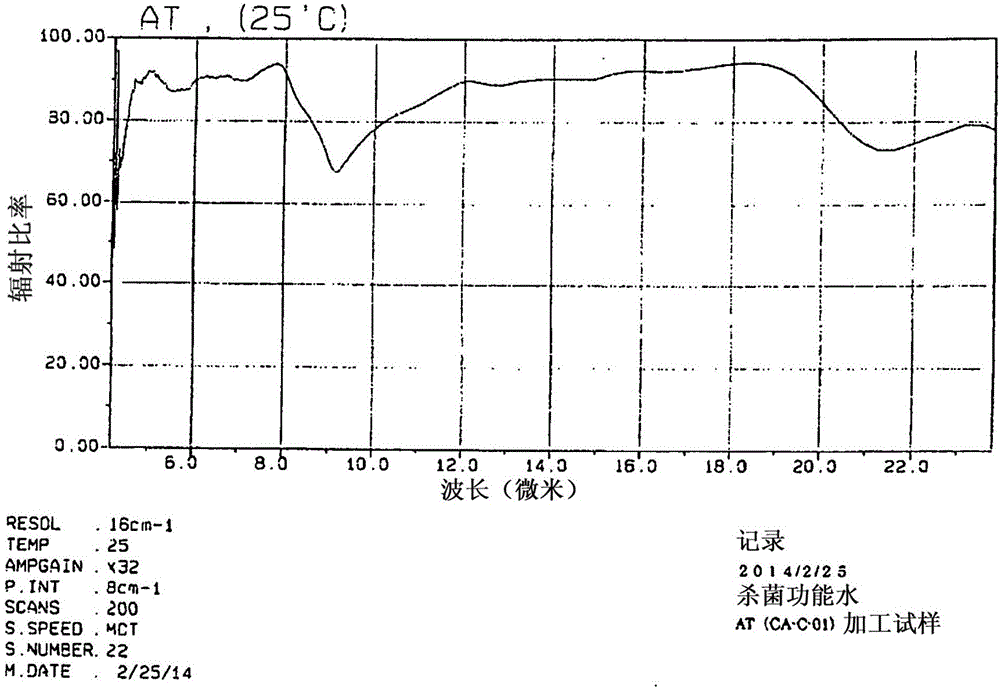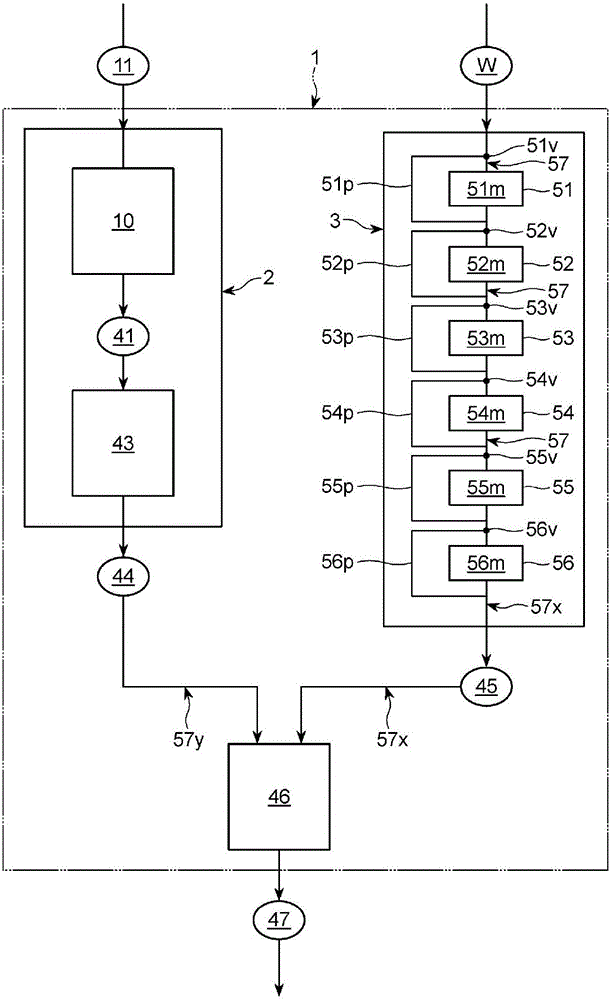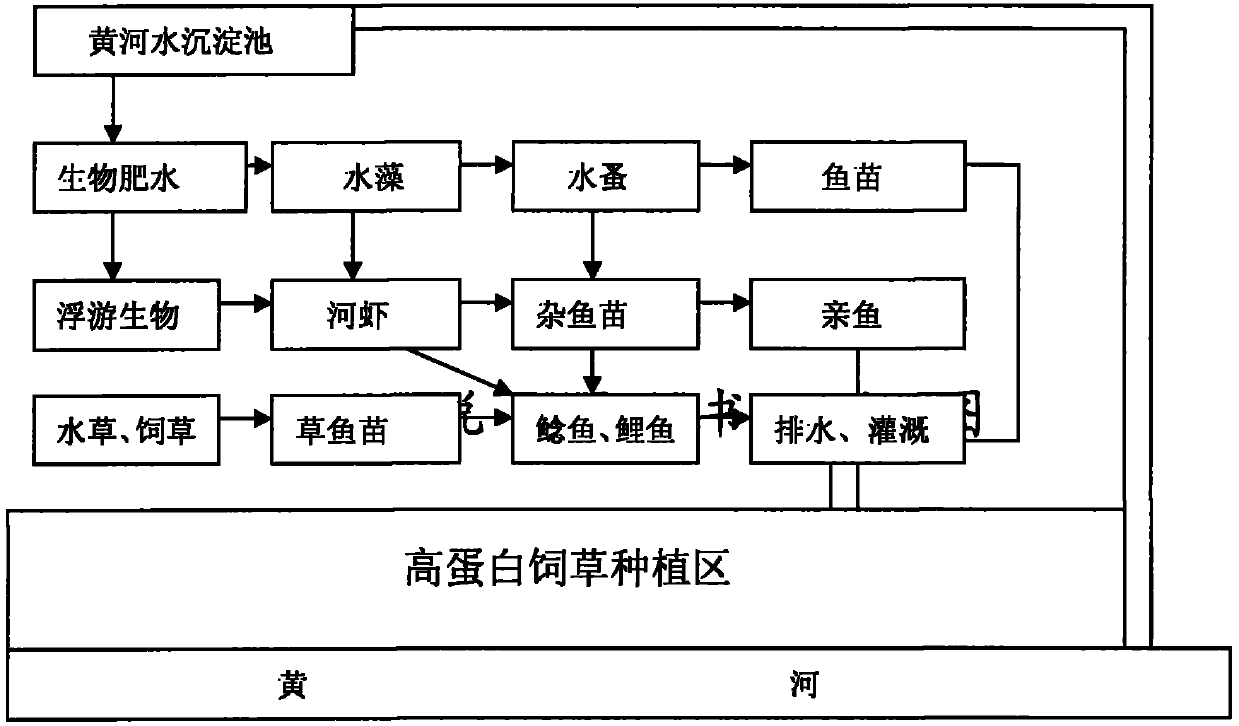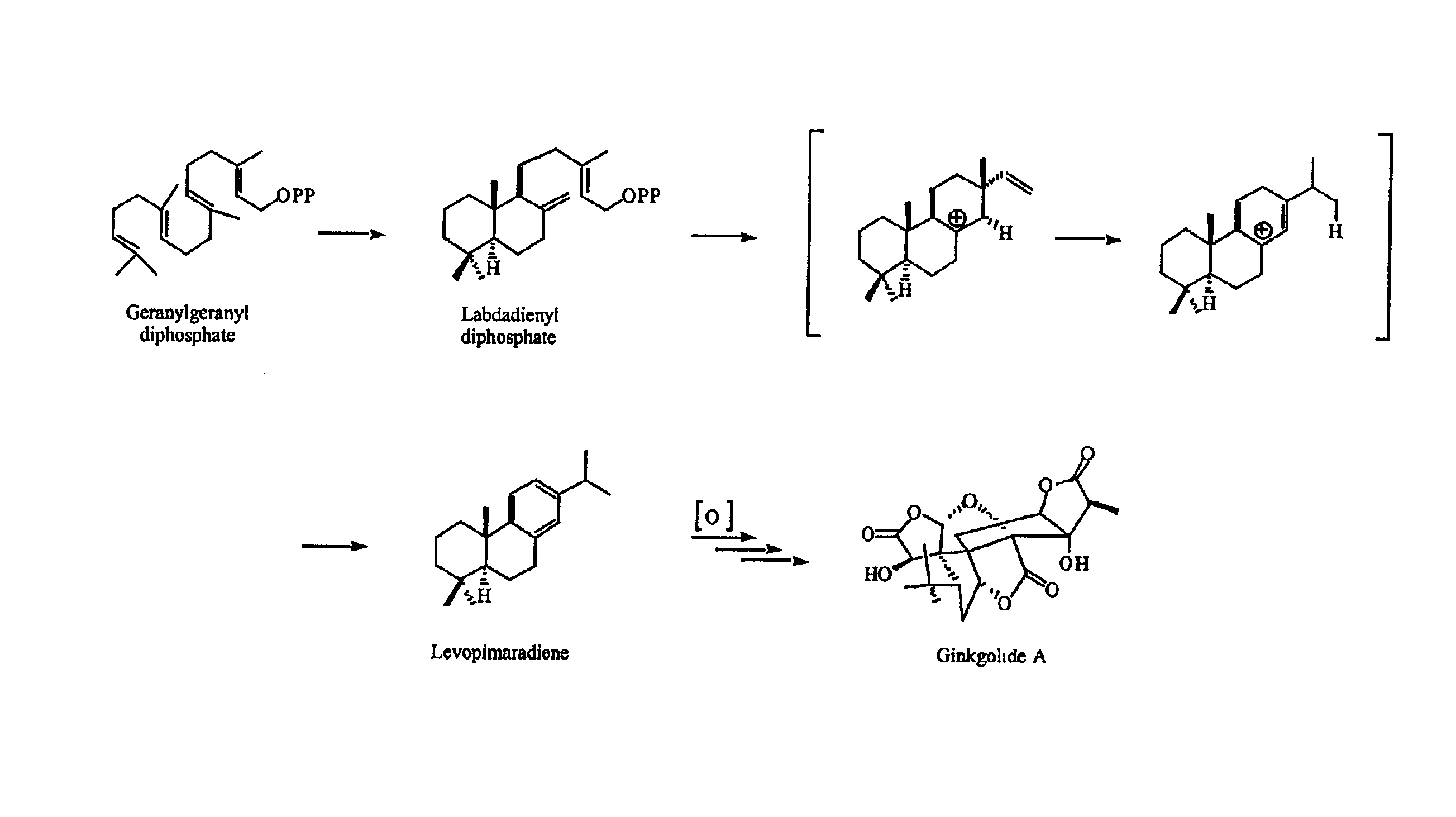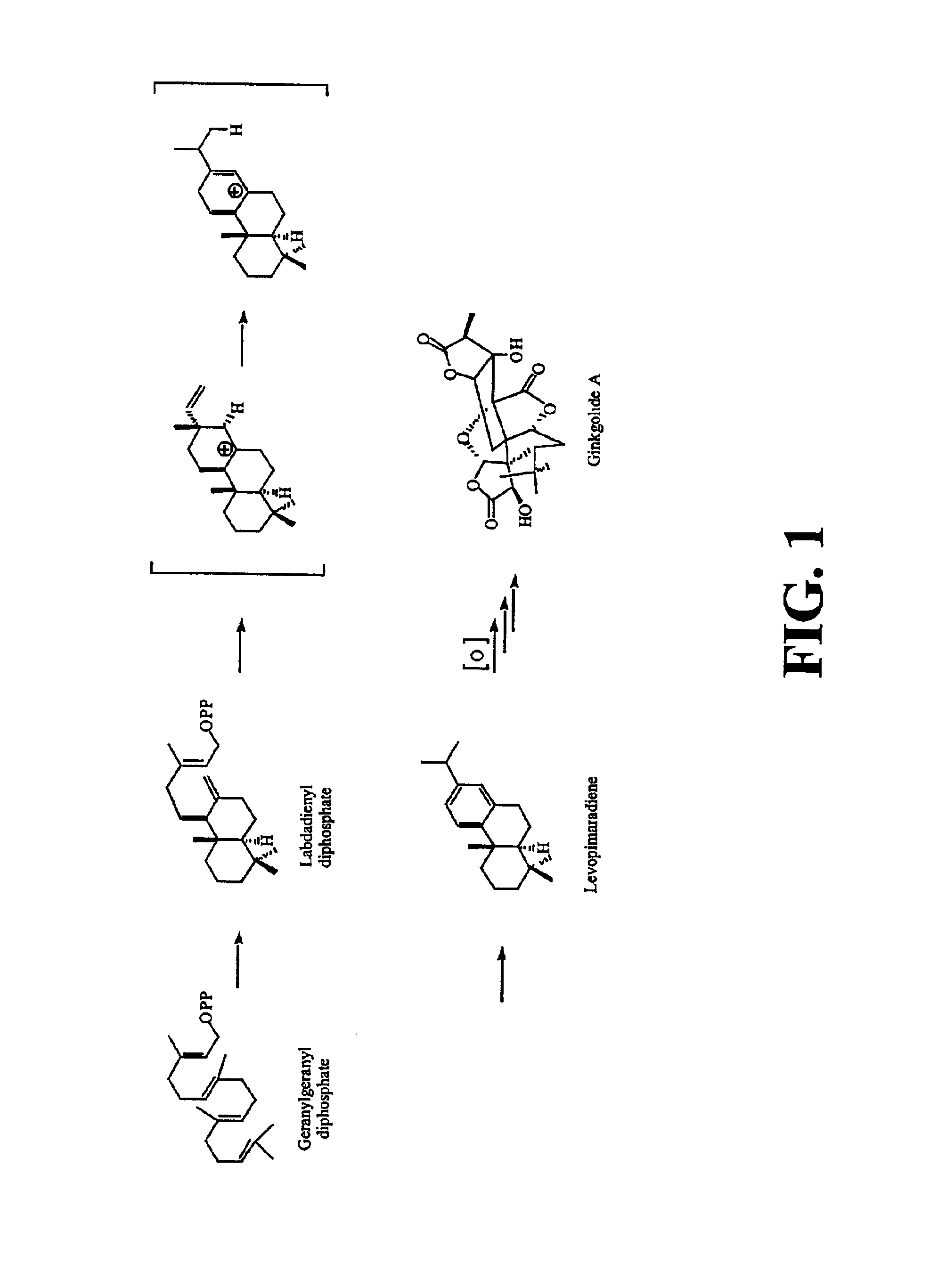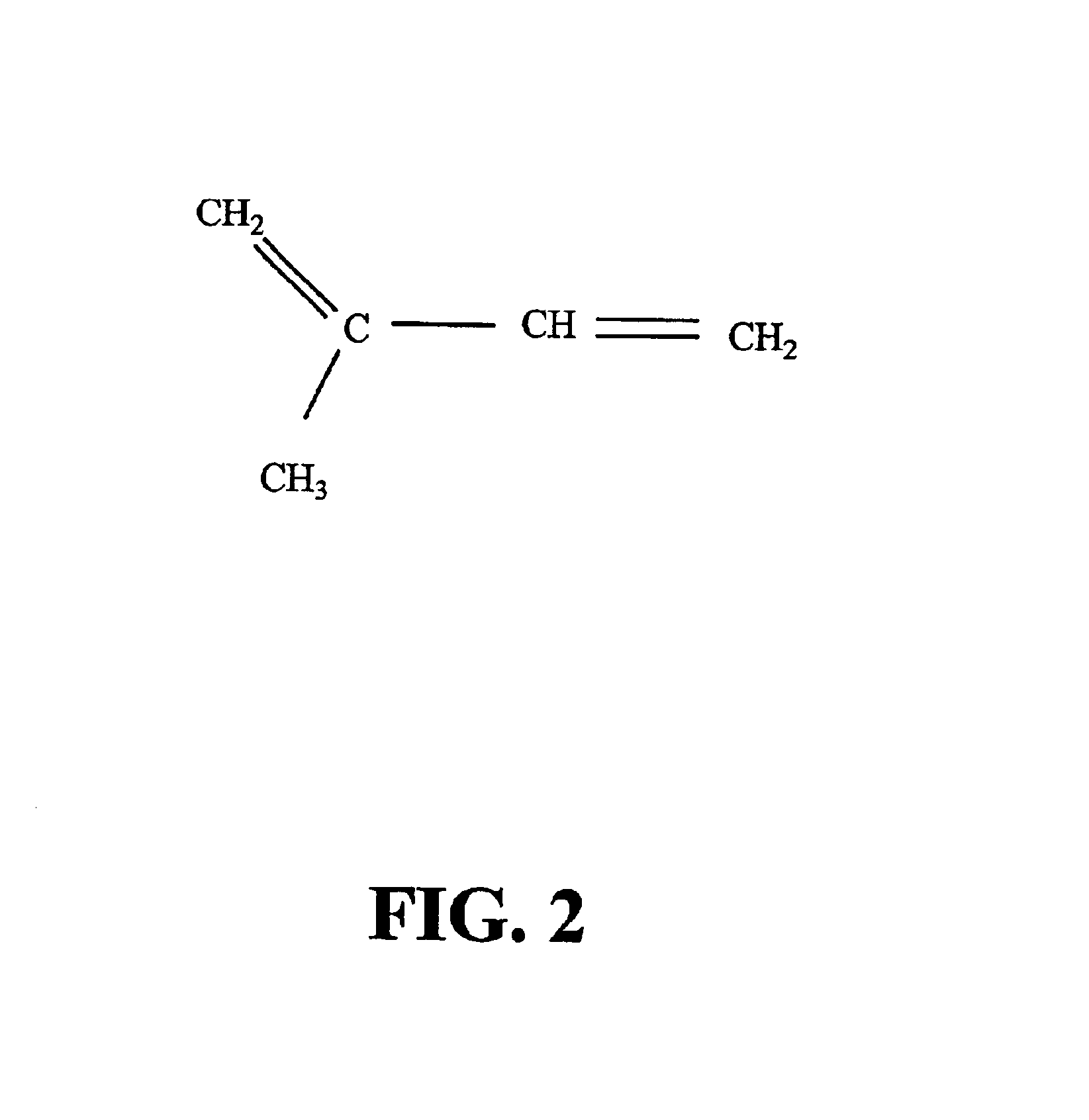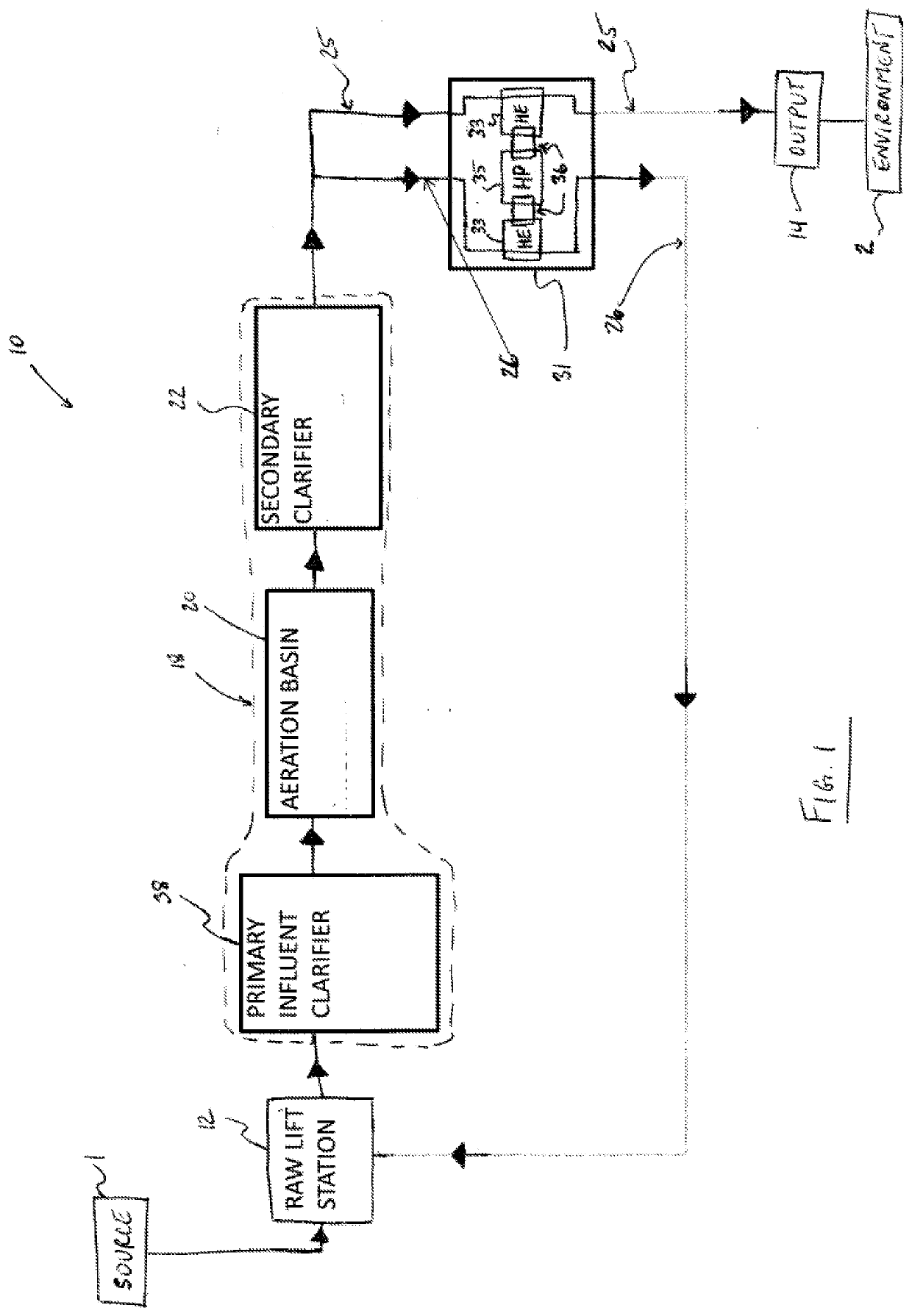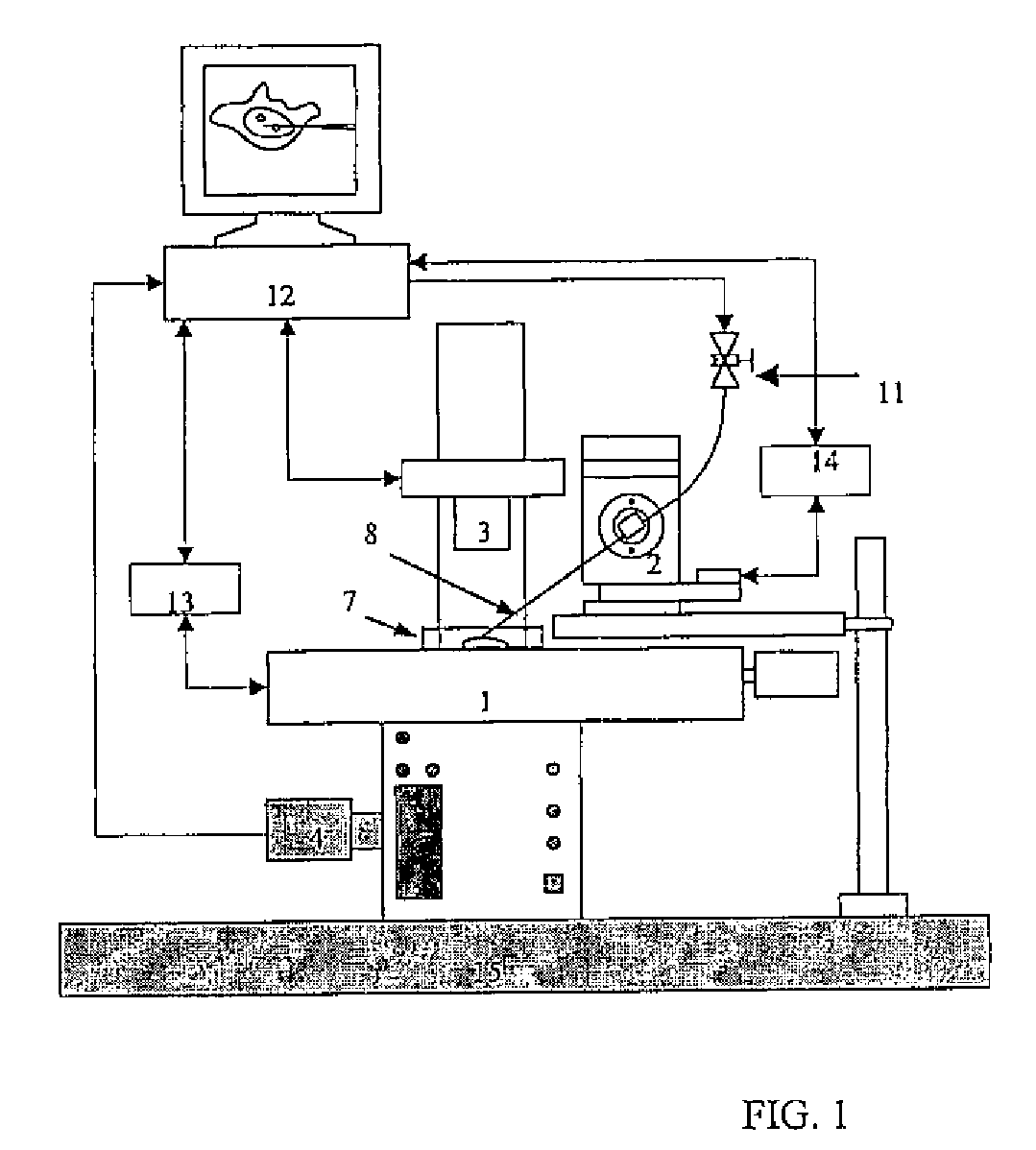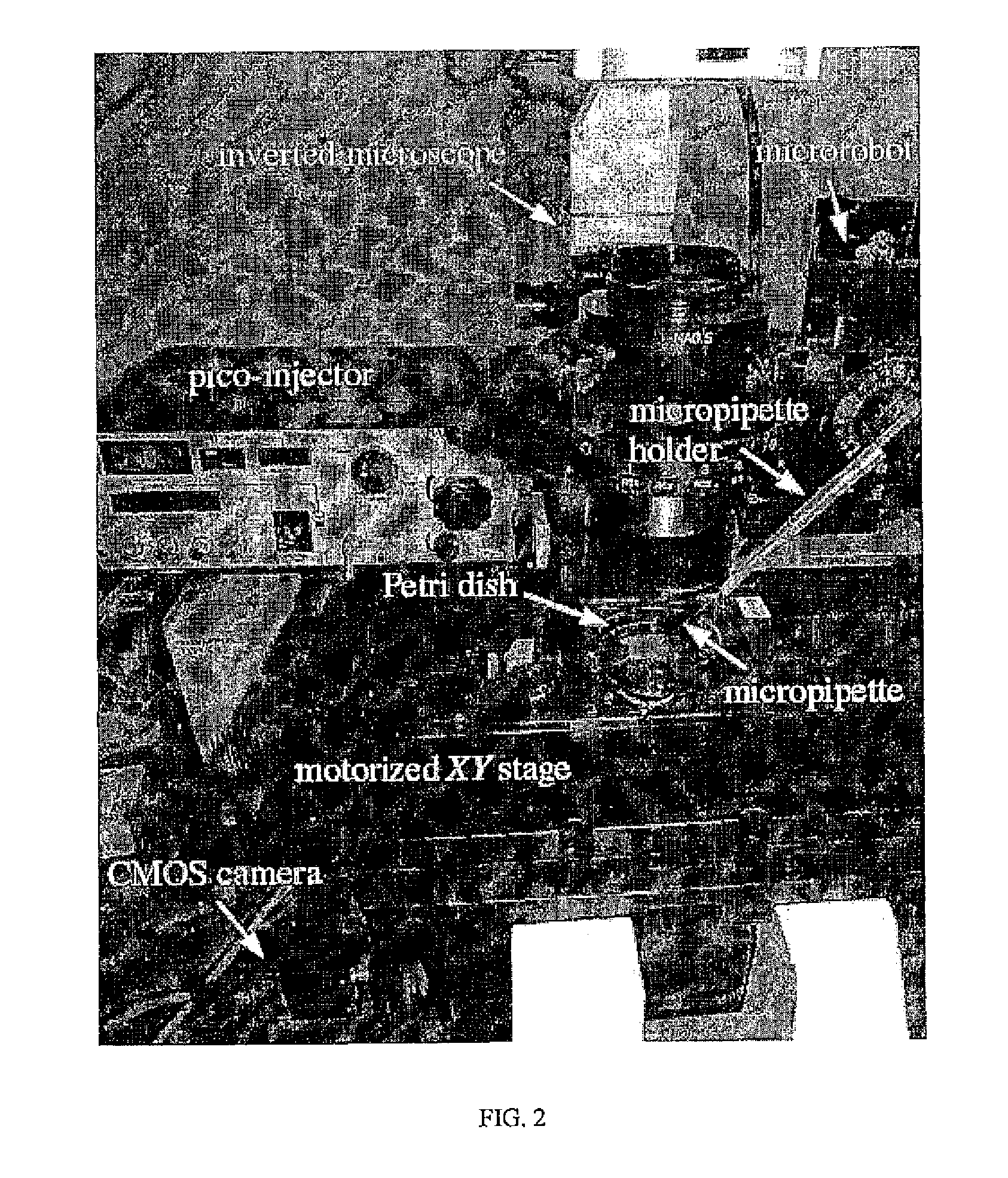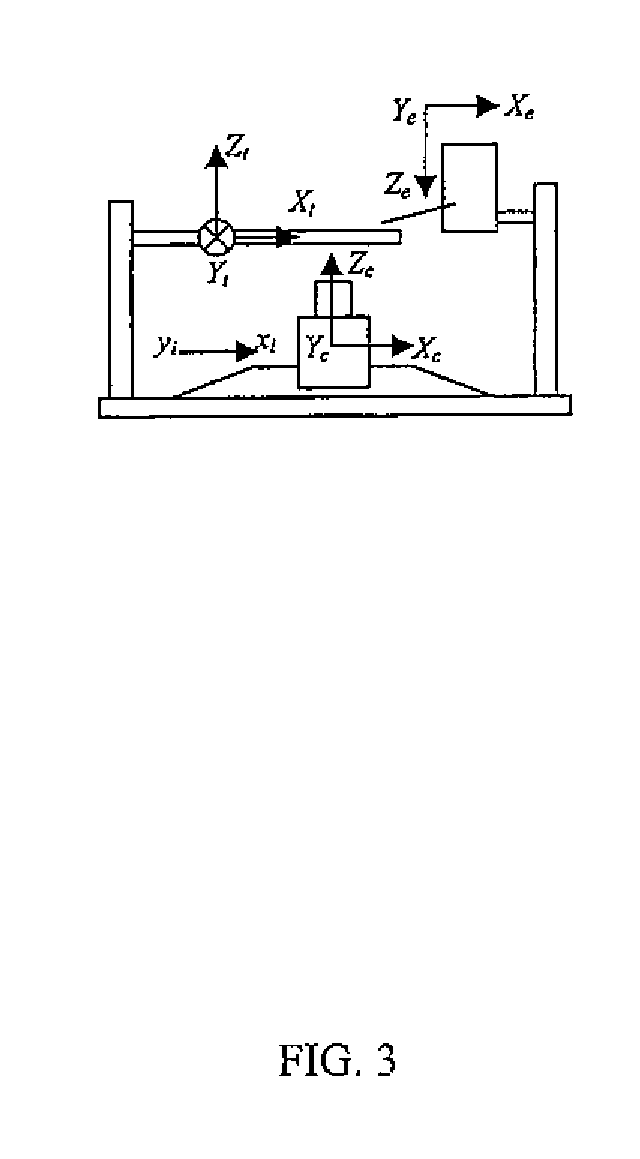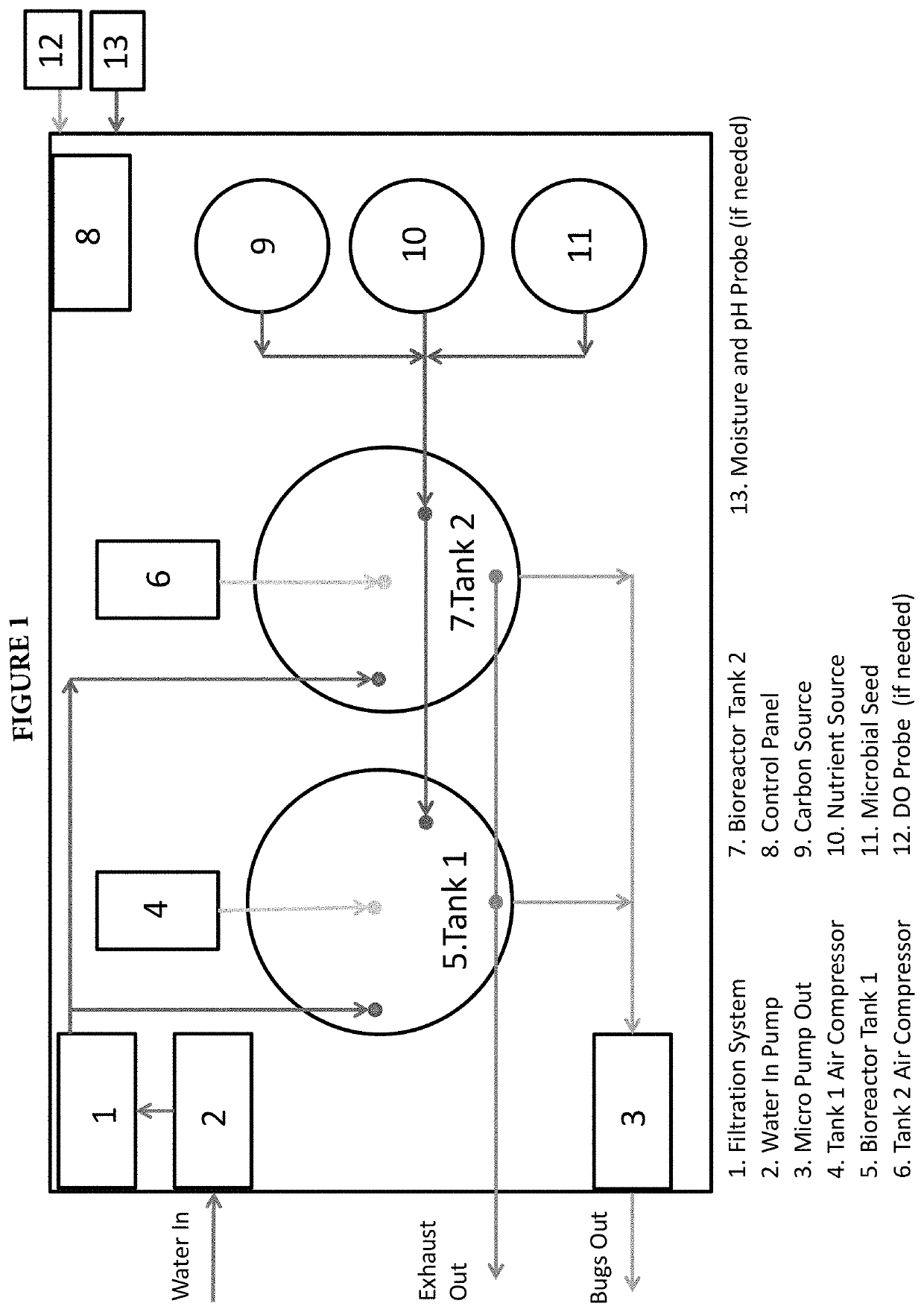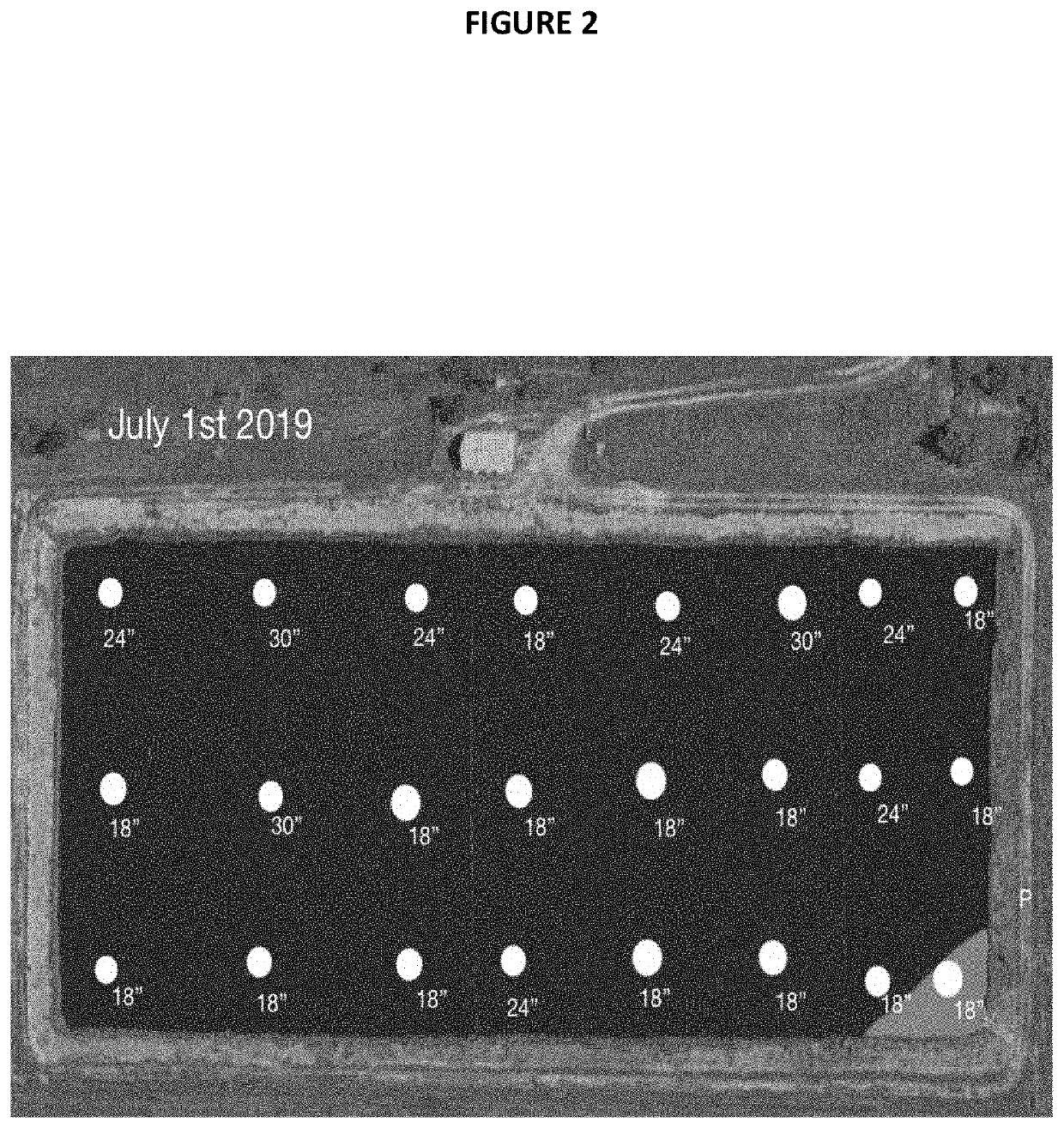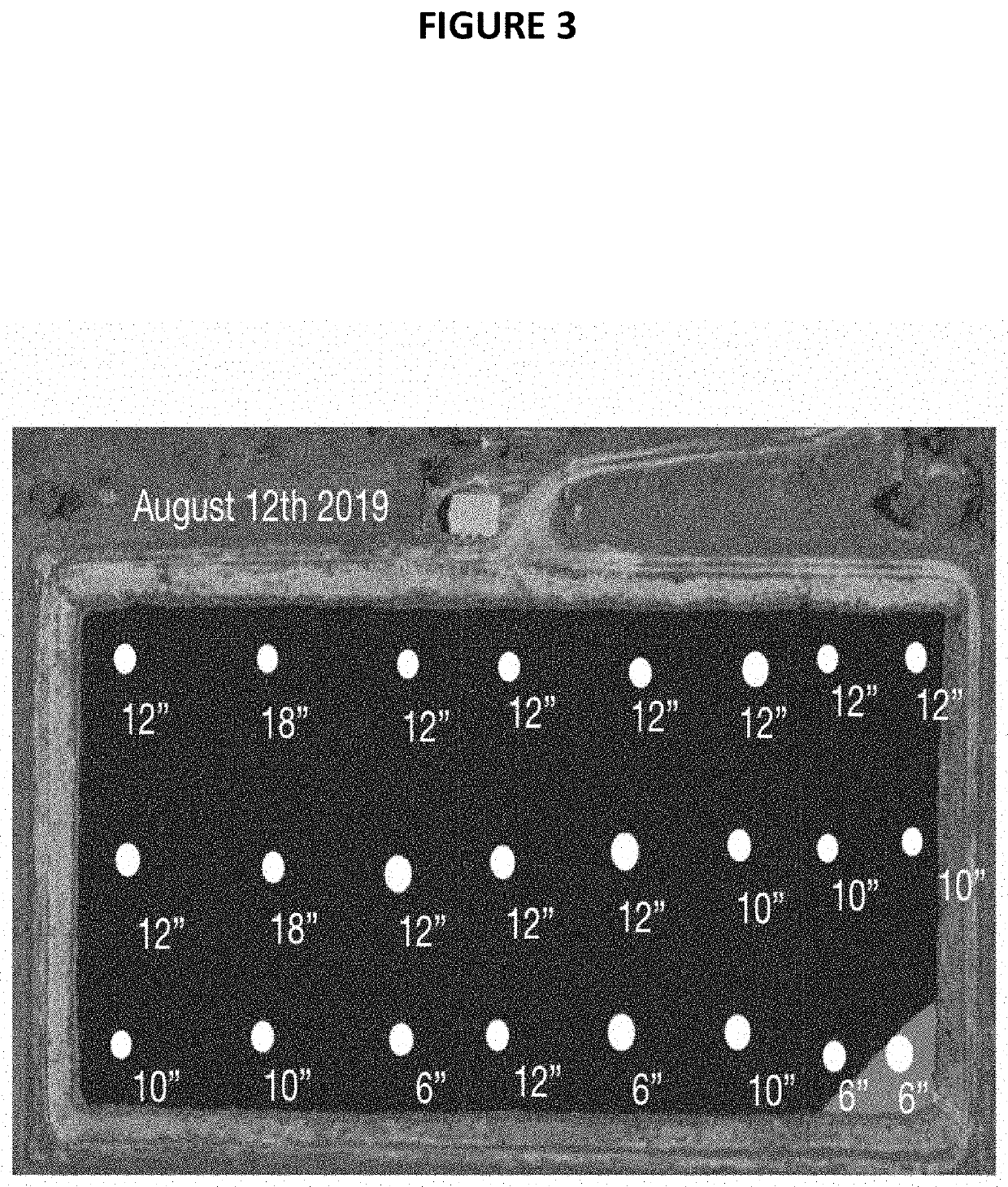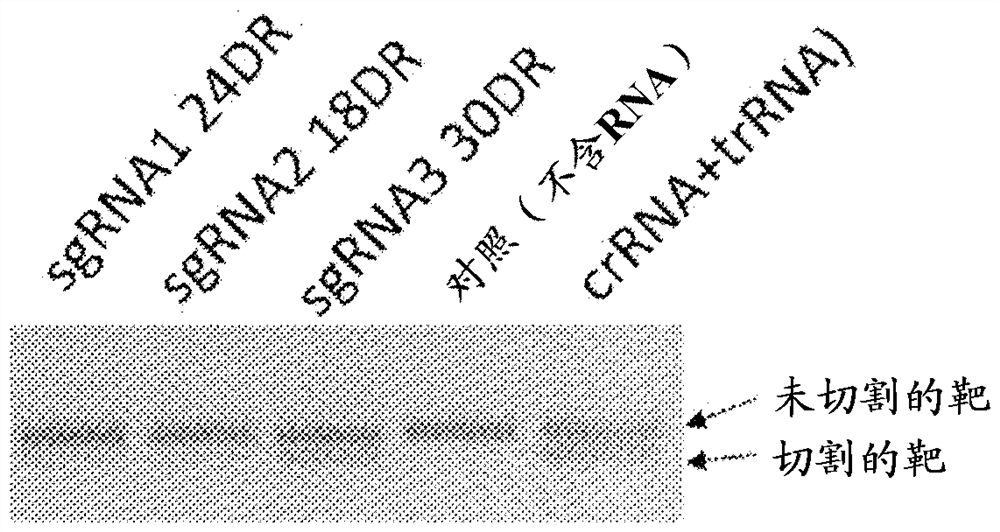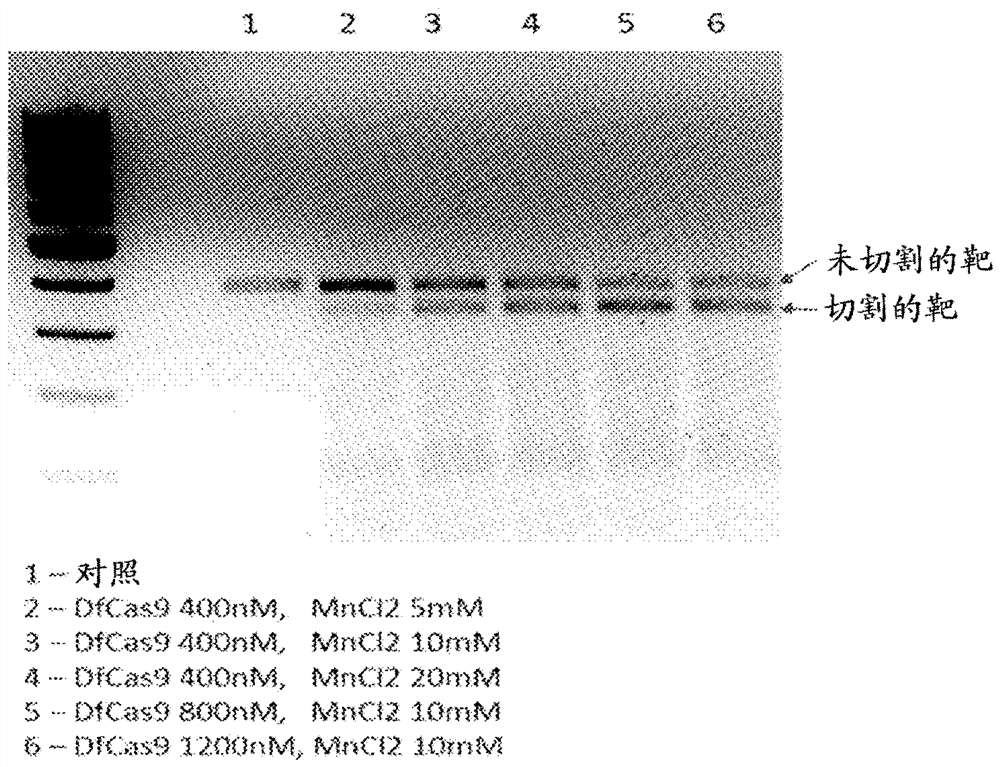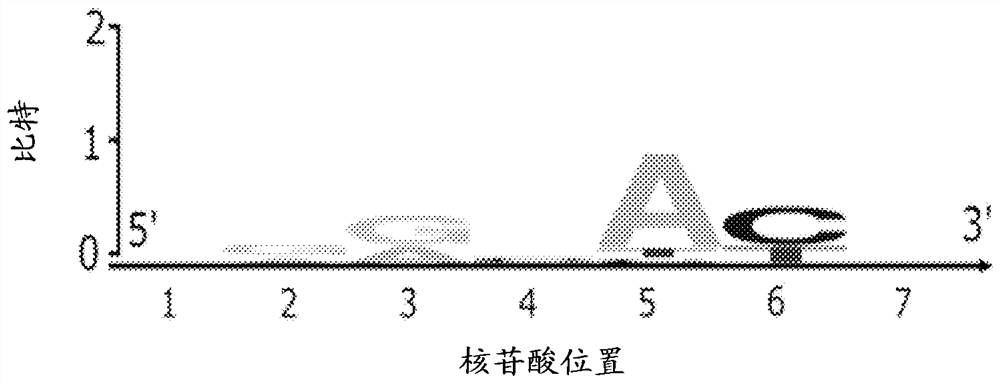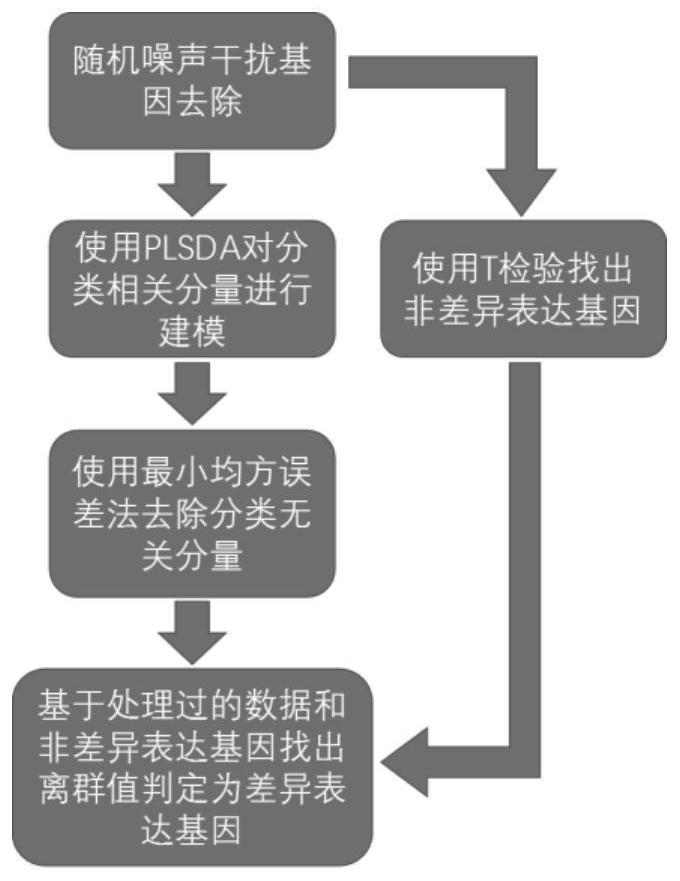Patents
Literature
30 results about "Unicellular organism" patented technology
Efficacy Topic
Property
Owner
Technical Advancement
Application Domain
Technology Topic
Technology Field Word
Patent Country/Region
Patent Type
Patent Status
Application Year
Inventor
A unicellular organism, also known as a single-celled organism, is an organism that consists of a single cell, unlike a multicellular organism that consists of multiple cells. Unicellular organisms fall into two general categories: prokaryotic organisms and eukaryotic organisms. Prokaryotes include bacteria and archaea. Many eukaryotes are multicellular, but the group includes the protozoa, unicellular algae, and unicellular fungi. Unicellular organisms are thought to be the oldest form of life, with early protocells possibly emerging 3.8–4 billion years ago.
Device and method for rapidly detecting surviving unicellular organisms in ship ballast water
InactiveCN103105352ARealize fully automatic detectionFast test resultsParticle size analysisIndividual particle analysisMain channelEngineering
The invention discloses a device and a method for rapidly detecting surviving unicellular organisms in ship ballast water. The device comprises a PDMS micro-fluidic chip and glass substrate G, wherein the PDMS micro-fluidic chip comprises a liquid storage hole A, a liquid storage hole B, a liquid storage hole C, a liquid storage hole D, a liquid storage hole E, a main channel, a first focusing channel, a second focusing channel, a detection channel, a first sorting channel and a second sorting channel, wherein the liquid storage hole A, the liquid storage hole B, the liquid storage hole C, the liquid storage hole D and the liquid storage hole E are inserted into a platinum electrode. The device has the beneficial effects that (1) full-automatic detection, sorting, counting and size determination of the surviving unicellular organisms in the ship ballast water are realized on the micro-fluidic chip, and the device is small in size and is portably and rapidly used for on-site analysis; and (2) a differential micro-fluidic chip and a signal differential amplification mechanism are adopted, and the signal to noise ratio of a detection signal can be improved, so that the detection precision is improved.
Owner:DALIAN MARITIME UNIVERSITY
Diterpene-producing unicellular organism
InactiveUS7238514B2Increase in sterol metabolic fluxReduce removalFungiBacteriaHMG-CoA reductaseGeranylgeranyl pyrophosphate
The present invention is directed to a unicellular organism system, such as a yeast, for producing geranylgeranyl pyrophosphate and a diterpene in vivo. The yeast cell preferably comprises an inducible nucleic acid sequence encoding geranylgeranyl pyrophosphate synthase, an inducible nucleic acid sequence encoding a soluble form of HMG-CoA reductase, a nucleic acid sequence of an allele that confers an increase in sterol metabolic flux and, in the diterpene-producing cell, a diterpene synthase.
Owner:RICE UNIV
Diterpene-Producing Unicellular Organism
InactiveUS20080020438A1Increase in sterol metabolic fluxReduce removalTransferasesFermentationHMG-CoA reductaseGeranylgeranyl pyrophosphate
The present invention is directed to a unicellular organism system, such as a yeast, for producing geranylgeranyl pyrophosphate and a diterpene in vivo. The yeast cell preferably comprises an inducible nucleic acid sequence encoding geranylgeranyl pyrophosphate synthase, an inducible nucleic acid sequence encoding a soluble form of HMG-CoA reductase, a nucleic acid sequence of an allele that confers an increase in sterol metabolic flux and, in the diterpene-producing cell, a diterpene synthase.
Owner:RICE UNIV
Process for producing, methods and compositions of glucuronoxylomannan as nutriceutical agent from higher basidiomycetes mushroom
InactiveUS6383799B1Decreased blood levelReduce riskOrganic active ingredientsFungiBiotechnologyTremella
The present invention describes new and distinct strains of higher Basidiomycetes mushrooms grown in submerged cultures. Specifically, the new strain of species of the genus Tremella offer superior yields of one-cell biomass and exocellular heteropolysaccharide glucuronoxylomannan, niacin and essential amino acids.
Owner:MEDMYCO
Chromosomal DNA integration method
Owner:BIO ARCHITECTURE LAB
Method of determining structural prototype data for a technical lightweight structure
ActiveUS20070112522A1Easy to operateEfficiently provideGeometric CADBiological testingUnicellular organismSoftware engineering
A method of determining structural data of a prototype for a lightweight technical structure by selecting shell architectures of natural bio-mineralized unicellular organisms in accordance with an aspect set very closely adapted to the lightweight structure to be produced and by directly copying and thereafter scaling their structural data to the prototype before optimizing the Prototype by perfect adaptation to the lightweight structure to be produced.
Owner:STIFTUNG ALFRED WEGENER INSTITUT FUER POLAR UND MEERESFORSCHUNG
Real-time monitoring system and method of physical characteristics of unicellular organisms
ActiveCN107843541ARealize positional addressing growthReal-time measurementIndividual particle analysisFull life cycleCell culture media
The invention discloses a real-time monitoring system and method of physical characteristics of unicellular organisms. The system comprises an optical projector, a PC, a photo-induction electro-deposition chip, a three-dimensional mobile platform, a signal generator, an impedance analyzer, a temperature controller, a micro pump and a camera; the optical projector is connected with the PC and projects light patterns onto the photo-induction electro-deposition chip; the photo-induction electro-deposition chip is arranged on the three-dimensional mobile platform, and the three-dimensional mobileplatform can change the position of the chip; the signal generator is connected with the chip and provides AC voltage; the impedance analyzer is connected with the chip and measures the impedance; thechip is arranged in the temperature controller and controls the continuous culture temperature of cells; the micro pump is connected with a solution inlet of the chip and provides a cell culture medium; and a microscopic tube is arranged above the chip, and the camera is connected with the microscopic tube and acquires an image in real time. By adopting the apparatus and method of the invention,the electric characteristics of adherent single cells in a full life cycle can be monitored in real time, and the location and addressing growth of the single cells can be performed.
Owner:SHANGHAI UNIV
Method for ecosystem breeding of wild the Yellow River catfish and carp
InactiveCN101401558AReduce natural qualityKeep natural qualityMicroorganismsClimate change adaptationRiver catfishCarp
The invention discloses a method for feeding wild catfish and carp living in Yellow River in ecosystem environment. The method comprises the following steps: injecting Yellow River water into common earth, crushing planted fodder grass; adding a composite micro-ecological viable bacteria preparation into the crushed fodder grass; adopting a closed anaerobic fermentation process to prepare a yeast material; scattering the yeast material once every ten days so as to provide nutrient components required by the growth of beneficial alga and plankton unicellular organisms to feed and breed daphnia, algae and float grass, and to feed wild trash fish fries and river prawns; and using Yellow River circulating water and living food to feed the wild catfish and carp. The method uses natural ecological resources to develop natural Yellow River wild fishes for breeding, forms a complete a natural food chain, and maintains natural quality of Yellow River fishes. The method is applied to both coasts of Yellow River valley, utilizes natural resources to develop wild fish ecological feeding in large scale, and provides a novel approach for developing domestic food resources.
Owner:郭跃进
Ginkgo biloba levopimaradiene synthase
The present invention is directed to nucleic acid sequences of Ginkgo biloba diterpene synthases, particularly of a levopimaradiene synthase. More specifically, the invention is directed to a cell of a unicellular organism, such as Saccharomyces cerevisiae or Escherichia coli, comprising levopimaradiene synthase for the metabolically engineered in vivo biosynthesis of a diterpene and a ginkgolide.
Owner:RICE UNIV
Method of determining structural prototype data for a light weight technical structure
ActiveUS7738691B2Easy to operateObtain dataGeometric CADCharacter and pattern recognitionUnicellular organismComputer science
A method of determining structural data of a prototype for a lightweight technical structure by selecting shell architectures of natural bio-mineralized unicellular organisms in accordance with an aspect set very closely adapted to the lightweight structure to be produced and by directly copying and thereafter scaling their structural data to the prototype before optimizing the Prototype by perfect adaptation to the lightweight structure to be produced.
Owner:STIFTUNG ALFRED WEGENER INSTITUT FUER POLAR UND MEERESFORSCHUNG
Mineral functional water, method for producing the same, and method for controlling unicellular organisms and/or viruses
Mineral functional water useful for controlling unicellular organisms and / or viruses is provided. The mineral functional water satisfies all of requirements (i), and (iii) and shows excellent controlling effects upon unicellular organisms and / or viruses. (i) In a sample wherein 15 pst·wt. or more of the mineral functional water is fixed with respect to 100 pst·wt. of a ceramic carrier, the average emissivity to black body at wavelength of 5 to 7 micrometers and wavelength of 14 to 24 micrometers (measurement temperature: 25 Centigrade) is 90% or more, (ii) pH of the mineral functional water is 12 or higher, and (iii) controlling effects against at least one of unicellular organisms and viruses are manifested.
Owner:RIKEN TECHNO SYST +1
Method for extracting pure diatom shells from marine single-cell diatom
The invention discloses a method for extracting pure diatom shells from marine unicellular diatom. The method comprises the following steps: (1) preparing algae mud; (2) treating algae mud by an acid-heat method; and (3) washing and drying. Compared with the prior art, the method has the advantages that the operation process is simple and feasible; the completeness is good, and the diatom shell treated by using the mixed acid solution of sulfuric acid and nitric acid is complete in structure and clear in pore; the cleanliness is high, organic matter and harmful solvent residues do not exist on the surfaces of the diatom shells, and the purity is high; the invention provides a simple and efficient method for extracting and separating high-purity diatom shells from marine diatom and other unicellular organisms containing the diatom shells, and further research of a factory-like large-scale diatom shell extraction and separation process is facilitated.
Owner:OCEAN UNIV OF CHINA +1
OsABCG48 gene and application thereof in improving cadmium stress resistance of unicellular organisms and plants
ActiveCN112175056AIncreased resistance to cadmium stressStress resistance does not changeFungiBacteriaBiotechnologyUnicellular organism
The invention discloses an OsABCG48 gene and an application thereof in improving cadmium stress resistance of unicellular organisms and plants. Rice OsABCG48 protein has an amino acid sequence as shown in SEQ ID NO.1 or a sequence which is obtained by substitution, deletion and / or addition of one or more amino acids and / or terminal modification for the amino acid sequence as shown in SEQ ID NO.1 and has the effect of improving cadmium stress resistance of unicellular organisms and plants. The gene for encoding the rice OsABCG48 protein is shown as SEQ ID NO.2. The OsABCG48 gene is introduced into unicellular organisms and plants, so that the OsABCG48 gene can be over-expressed in the unicellular organisms and plants, thereby improving cadmium stress resistance. The OsABCG48 gene disclosedby the invention has extremely high development potential in cultivation of new cadmium-resistant unicellular biological strains and new cadmium-resistant crop strains.
Owner:SOUTH CHINA BOTANICAL GARDEN CHINESE ACADEMY OF SCI
System and method for micromanipulating samples
ActiveUS20110027885A1Reduce throughputGood reproducibilityBioreactor/fermenter combinationsBiological substance pretreatmentsUnicellular organismMicroorganism
A system and method for micromanipulating samples are described to perform automatic, reliable, and high-throughput sample microinjection of foreign genetic materials, proteins, and other molecules, as well as drawing genetic materials, proteins, and other molecules from the sample. The system and method overcome the problems inherent in traditional manual micromanipulation that is characterized by poor reproducibility, human fatigue, and low throughput. The present invention is particularly suited for adherent cell microinjection but can be readily extended to aspiration, isolation, and electrophysiological measurements of microorganisms, unicellular organisms, or cells.
Owner:THE GOVERNINIG COUNCIL OF THE UNIV OF TORANTO
High efficient foliar fertilizer utilizing algae culture complexing and preparation method thereof
InactiveCN106588257AImprove absorption efficiencyAnimal corpse fertilisersBioloigcal waste fertilisersPotassiumEthyl acetate
The invention discloses a high efficient foliar fertilizer utilizing algae culture complexing and a preparation method thereof. The foliar fertilizer is prepared from the following raw materials: plant derived fresh feed, ethyl acetate, ethanol, diethyl aminoethyl hexanoate, chitin, green algae powder, straw ash, spirulina powder, sugar dregs, pig bone soup, ammonium molybdate, sodium selenite, soybean milk, potassium chloride, rice washing water, and a proper amount of water. Cheap organic substances are used to culture algae; algae is a unicellular organism and the ancestor of most plants in the earth and has the function of enriching trace elements; trace elements are added into the culture solution and enriched by the algae cells, the inorganic trace elements are converted into organic substances, finally the cultured algae cells are killed to expose complexed trace elements; the trace elements are used to prepare the foliar fertilizer, and the absorption efficiency of trace elements is improved.
Owner:凤台县牧碧农业发展有限公司
Terahertz super-electric water, and preparation method and application thereof
InactiveCN106865687ASimple processRealize online continuous productionBiocideWater/sewage treatment by irradiationUnicellular organismAlkaline water
The invention provides terahertz super-electric water, and a preparation method and application thereof. A specific method is adopted for preparing the terahertz super-electric water provided by the invention. The method comprises the following steps: electrifying and applying far infrared irradiation to the flowing water in which the plant raw material and the mineral substance raw material are simultaneously soaked, thereby obtaining the terahertz super-electric water. The method provided by the invention is simple in process; no complex preparation device is required; the flowing water is adopted for realizing online continuous production; and the terahertz super-electric water product can be collected from an outlet of the device. The terahertz super-electric water provided by the invention is a weak alkaline water extract, has various effects, has an obvious activating effect to the function of the human body, can not cause anaphylactic reaction, can be used for preparing external articles and internal articles in direct and / or indirect contact with the human body, can be used for killing unicellular organisms and viruses, and has an obvious effect.
Owner:李磊
Unicellular organism-based high-hydrophobicity micrometer powder material, and preparation method thereof
InactiveCN106916757ALower surface energyImprove performanceMaterial nanotechnologyFungiUnicellular organismMicro nano
The invention discloses an unicellular organism-based high-hydrophobicity micrometer powder material, and a preparation method thereof. According to the preparation method, unicellular organism cells are washed repeatedly, an activation agent is used for activation of the unicellular organism cells so as to obtain surface activated unicellular organism cells; at the same time, Fe3O4 nanoparticles are subjected to washing and modification so as to realize combination of the nanoparticles with agglutinin molecules, and obtain agglutinin molecule-modified nanoparticles; the agglutinin molecule-modified nanoparticles are combined with the surface-activated unicellular organism cells; construction of unicellular organism surface rough micro-nano structures is realized via immobilizing of the nanoparticles on the surface of the unicellular organism cells; and the surface of an obtained product is subjected to octadecylamine modification so as to reduce particle surface energy further, and obtain the unicellular organism-based high-hydrophobicity micrometer powder material.
Owner:CHANGAN UNIV
Novel compounds with dual activity
PendingUS20180296727A1Promote and encourage adherencePreventing antifoulingDental implantsAntifouling/underwater paintsUnicellular organismMulticellular organism
Owner:YISSUM RES DEV CO OF THE HEBREWUNIVERSITY OF JERUSALEM LTD
Method for obtaining protein from whey or molasses
InactiveUS20200123494A1Increase heightProtective processingMilk preparationFungiBiotechnologyFood industry
A process to ferment lactose and molasses, to obtain unicellular biomass is disclosed. The described process allows obtaining a product of high protein value which will be in the range of 50 to 90% for its application in the food industry. The process uses as a means of propagation whey of cheese or molasses, for the use by Kluyveromyces marxianus to obtain unicellular biomass and subsequently unicellular protein.
Owner:PROTEO ALIMENTARIA S A P I DE CV
Mineral functional water and method for producing same as well as method for controlling unicellular organisms and/or viruses
Provided is a mineral functional water useful for controlling unicellular organisms or viruses. The mineral functional water satisfies all of requirements (i) through (iii) and manifests an excellent controlling effect on unicellular organisms and viruses. (i) In a sample wherein 15 parts by weight or more of the mineral functional water is fixed with respect to 100 parts by weight of a ceramic carrier, the average radiation ratio to black body at a wavelength of 5 to 7 [mu]m and wavelength of 14 to 24 [mu]m (measurement temperature: 25 DEG C) is 90% or higher, (ii) pH of the mineral functional water is 12 or higher, and (iii) a controlling effect is displayed against at least one of unicellular organisms and viruses.
Owner:RIKEN TECHNO SYST +1
Method for ecosystem breeding of wild the Yellow River catfish and carp
InactiveCN101401558BReduce natural qualityKeep natural qualityMicroorganismsClimate change adaptationRiver catfishCarp
The invention discloses a method for feeding wild catfish and carp living in Yellow River in ecosystem environment. The method comprises the following steps: injecting Yellow River water into common earth, crushing planted fodder grass; adding a composite micro-ecological viable bacteria preparation into the crushed fodder grass; adopting a closed anaerobic fermentation process to prepare a yeastmaterial; scattering the yeast material once every ten days so as to provide nutrient components required by the growth of beneficial alga and plankton unicellular organisms to feed and breed daphnia, algae and float grass, and to feed wild trash fish fries and river prawns; and using Yellow River circulating water and living food to feed the wild catfish and carp. The method uses natural ecological resources to develop natural Yellow River wild fishes for breeding, forms a complete a natural food chain, and maintains natural quality of Yellow River fishes. The method is applied to both coasts of Yellow River valley, utilizes natural resources to develop wild fish ecological feeding in large scale, and provides a novel approach for developing domestic food resources.
Owner:郭跃进
Ginkgo biloba levopimaradiene synthase
The present invention is directed to nucleic acid sequences of Ginkgo biloba diterpene synthases, particularly of a levopimaradiene synthase. More specifically, the invention is directed to a cell of a unicellular organism, such as Saccharomyces cerevisiae or Escherichia coli, comprising levopimaradiene synthase for the metabolically engineered in vivo biosynthesis of a diterpene and a ginkgolide.
Owner:RICE UNIV
Wastewater treatment plant and related method with biological treatment process and heat transfer means
PendingUS20220356092A1Increase temperatureSimple processBiological treatment regulationSpecific water treatment objectivesUnicellular organismWater flow
A wastewater treatment plant and related method comprise a treatment stage including a biological-process substage configured for growing unicellular organisms adapted to reduce contaminants in the wastewater which are dissolved, including at least one of organic matter and nitrogenous matter, by digestion thereof, and which are adapted to floc after digestion and a floc-removal substage downstream from the biological-process substage, relative to the flow of wastewater, and configured for substantially removing the unicellular organisms that have flocked. The treatment stage is configured to form majority and minority flows of treated wastewater, and the minority flow is configured to be recycled upstream of the biological-process treatment substage. The plant includes a heat transfer assembly configured for transferring heat from the majority flow of treated wastewater to the minority flow thereof to increase temperature of wastewater to be treated.
Owner:SINCLAIR ROBERT
A real-time monitoring system and method for single cell biophysical properties
ActiveCN107843541BRealize positional addressing growthReal-time measurementIndividual particle analysisFull life cycleCell culture media
The invention discloses a real-time monitoring system and method for single cell biophysical characteristics. The system includes: an optical projector, a PC, a light-induced electrodeposition chip, a three-dimensional mobile platform, a signal generator, an impedance analyzer, a temperature controller, a micro-pump and a camera; the optical projector is connected to the PC and the light pattern is Projected onto the light-induced electrodeposition chip; the light-induced electrodeposition chip is located on a three-dimensional moving platform, and the three-dimensional moving platform can change the position of the chip; the signal generator is connected to the chip to provide AC voltage; the impedance analyzer is connected to the chip to measure impedance; Place the chip in a temperature controller to control the temperature of continuous cell culture; the micropump is connected to the solution inlet of the chip to provide cell culture medium; the microtube is located above the chip, and the camera is connected to the microtube to collect images in real time. The device or method of the present invention can be used to conduct real-time monitoring of the electrical characteristics of the entire life cycle of adherent single cells and the positioning and addressable growth of single cells.
Owner:SHANGHAI UNIV
Vision based method for micromanipulating biological samples
ActiveUS8846379B2Good reproducibilityBioreactor/fermenter combinationsBiological substance pretreatmentsUnicellular organismGenetic Materials
A system and method for micromanipulating samples are described to perform automatic, reliable, and high-throughput sample microinjection of foreign genetic materials, proteins, and other molecules, as well as drawing genetic materials, proteins, and other molecules from the sample. The system and method overcome the problems inherent in traditional manual micromanipulation that is characterized by poor reproducibility, human fatigue, and low throughput. The present invention is particularly suited for adherent cell microinjection but can be readily extended to aspiration, isolation, and electrophysiological measurements of microorganisms, unicellular organisms, or cells.
Owner:THE GOVERNING COUNCIL OF THE UNIV OF TORONTO
Single-cell bio-based highly hydrophobic micron powder material and preparation method thereof
InactiveCN106916757BLower surface energyImprove performanceMaterial nanotechnologyFungiUnicellular organismAgglutinin
Owner:CHANGAN UNIV
Alternate Method to Induce Biological Treatment into Contaminated Areas
PendingUS20210371313A1Good curative effectEasy to useWater treatment parameter controlTreatment using aerobic processesUnicellular organismMicroorganism
This invention relates to apparatus, methods and applications for treating wastewater, and more particularly to a technique of biological processes that integrates lowering the levels of effluent pollutants and reducing accumulated sludge volume from wastewater. This invention further relates to apparatus and methods for using a blend of non-pathogenic microbes, spores, unicellular organisms, and enzymes on-site at a wastewater treatment facility to rapidly, ecologically, and cost-effectively solve numerous contaminant issues common in wastewater.
Owner:MIHLHAUSER BOBBY +1
Dna-cutting agent
PendingCN113614247AIncreased versatilityHydrolasesMicrobiological testing/measurementUnicellular organismMulticellular organism
The present invention describes a novel bacterial nuclease of a CRISPR-Cas9 system from the bacteria Defluviimonas sp. 20V17, as well as the use of said nuclease for creating strictly specific two-strand cuts in a DNA molecule. The present nuclease possesses unusual properties and can be used as an instrument for introducing changes at strictly specified places in a genomic DNA sequence of single-celled and multi-celled organisms. The invention thus increases the universality of accessible CRISPR-Cas9 systems, which makes it possible to use Cas9 nuclease from various organisms to cut genomic or plasmid DNA in a large number of specific sites and under various conditions.
Owner:BIOCAD
Comprehensive nutrition pet food
PendingUS20200205442A1Increase productionImprove complicationsAnimal feeding stuffAccessory food factorsBiotechnologyUnicellular organism
A comprehensive nutrition pet food that satisfies a nutritional food standard for a dog or a cat, the comprehensive nutrition pet including a unicellular organism ingredient containing astaxanthin and being free of meals, in which a content of the astaxanthin is 0.0012% to 0.0080% by mass, relative to a total amount of the comprehensive nutrition pet food, and an a* value of the comprehensive nutrition pet food in an L*a*b* color space is 8.0 to 20.
Owner:UNI CHARM CORP
RNA-seq differential expression gene determination method and application
PendingCN114023385AAddressing the lack of uniform standardsNo human intervention requiredHybridisationInstrumentsUnicellular organismMinimum mean square error
The invention discloses a RNA-seq differential expression gene determination method and application, and relates to the technical field of unicellular biology. The determination method comprises the steps that random noise interference genes are removed, differential detection is conducted on each gene through t-test to find out non-differential expression genes to serve as negative control, modeling is conducted on classification correlation components through PLS, a minimum mean square error method is used to remove classification irrelevant components, an outlier is found out based on the processed data and a non-differential expression gene, and a differential expression gene is deteremined. The determination method is applied to comparison of differences of cell expression profile characteristics under different conditions. According to the invention, the selection of the judgment standard depends on a data-driven adaptive algorithm, and the judgment standard can be automatically adjusted according to different data without human intervention, so that the human intervention error is reduced.
Owner:浙江百麦生物科技有限公司
Features
- R&D
- Intellectual Property
- Life Sciences
- Materials
- Tech Scout
Why Patsnap Eureka
- Unparalleled Data Quality
- Higher Quality Content
- 60% Fewer Hallucinations
Social media
Patsnap Eureka Blog
Learn More Browse by: Latest US Patents, China's latest patents, Technical Efficacy Thesaurus, Application Domain, Technology Topic, Popular Technical Reports.
© 2025 PatSnap. All rights reserved.Legal|Privacy policy|Modern Slavery Act Transparency Statement|Sitemap|About US| Contact US: help@patsnap.com
